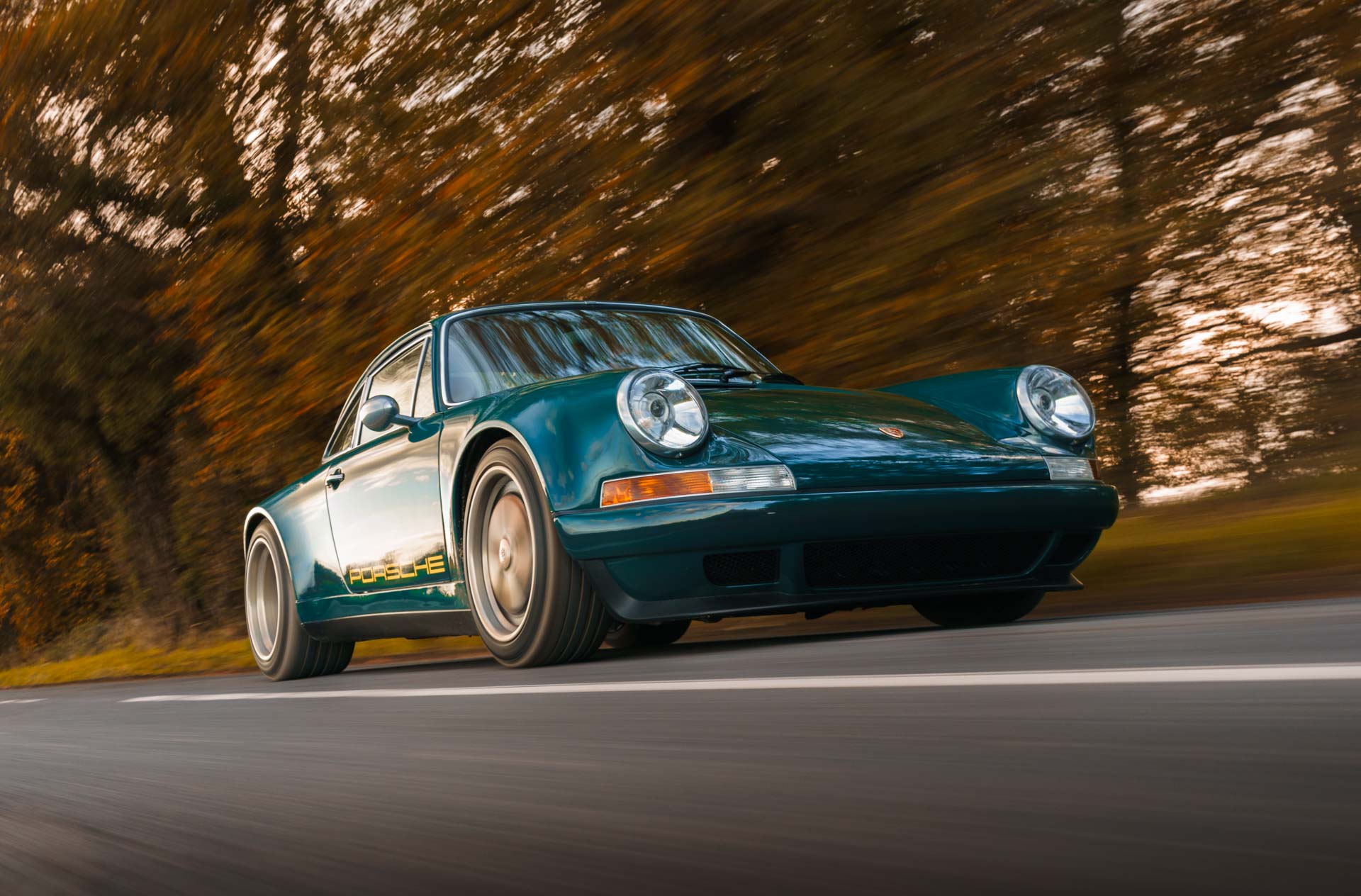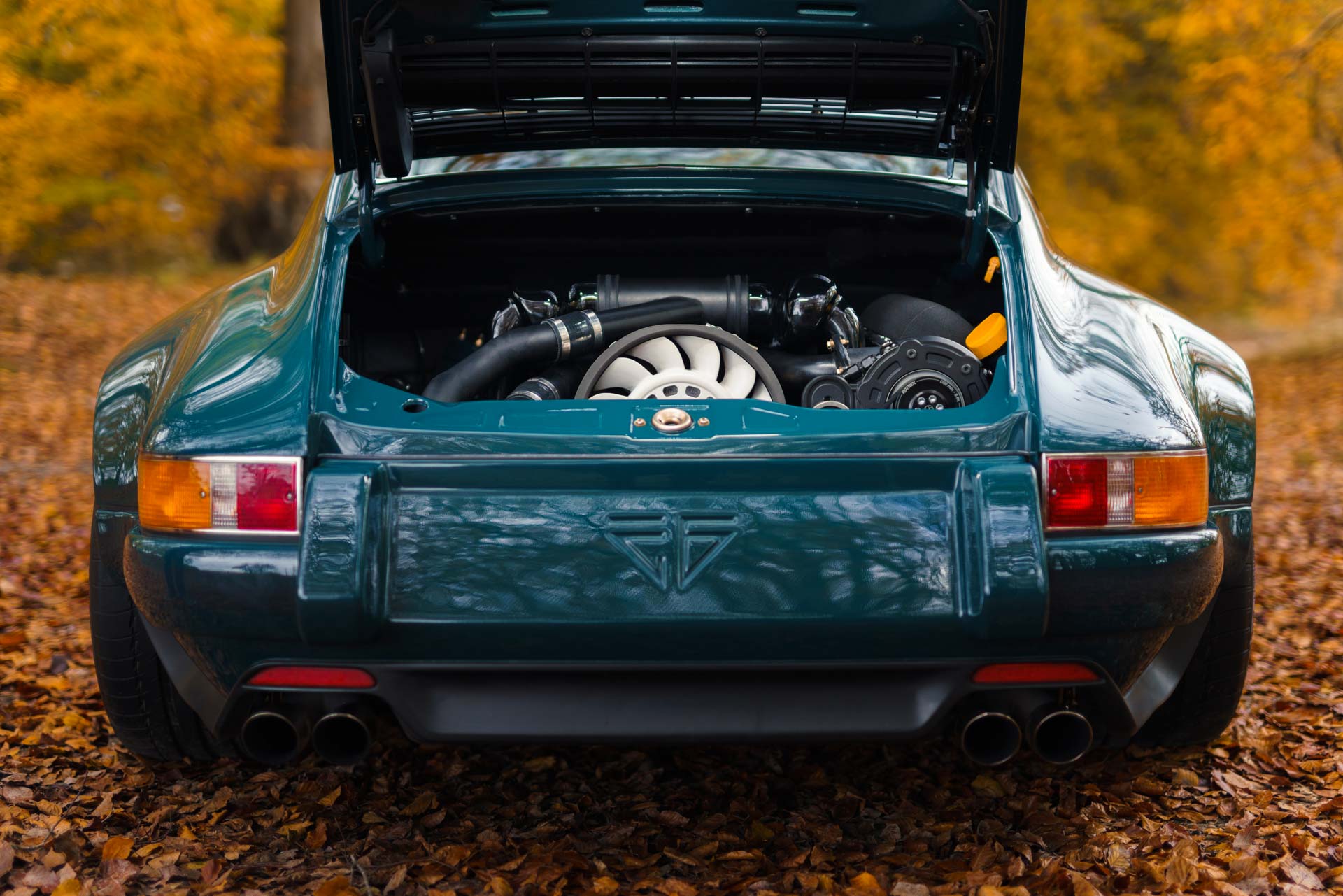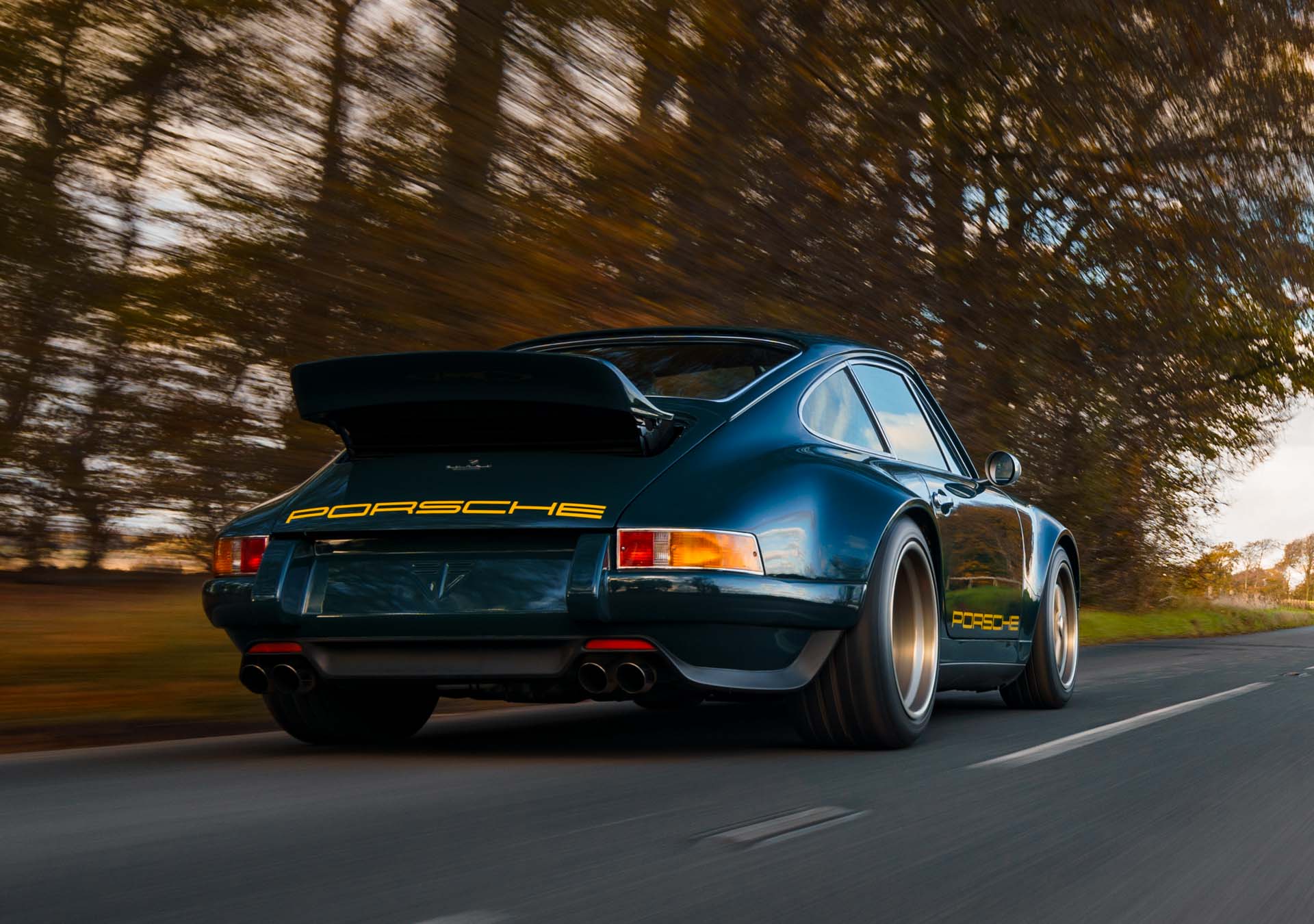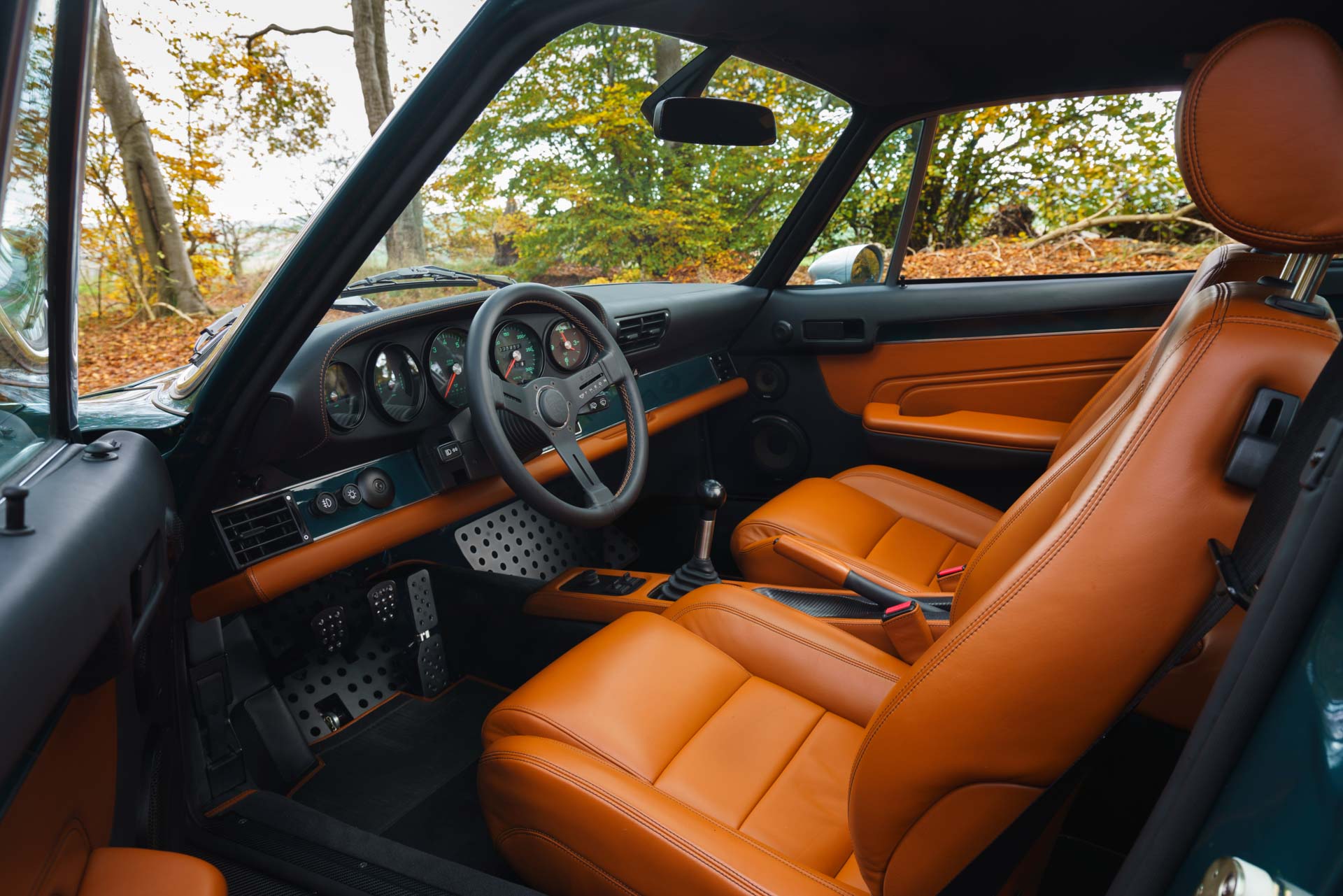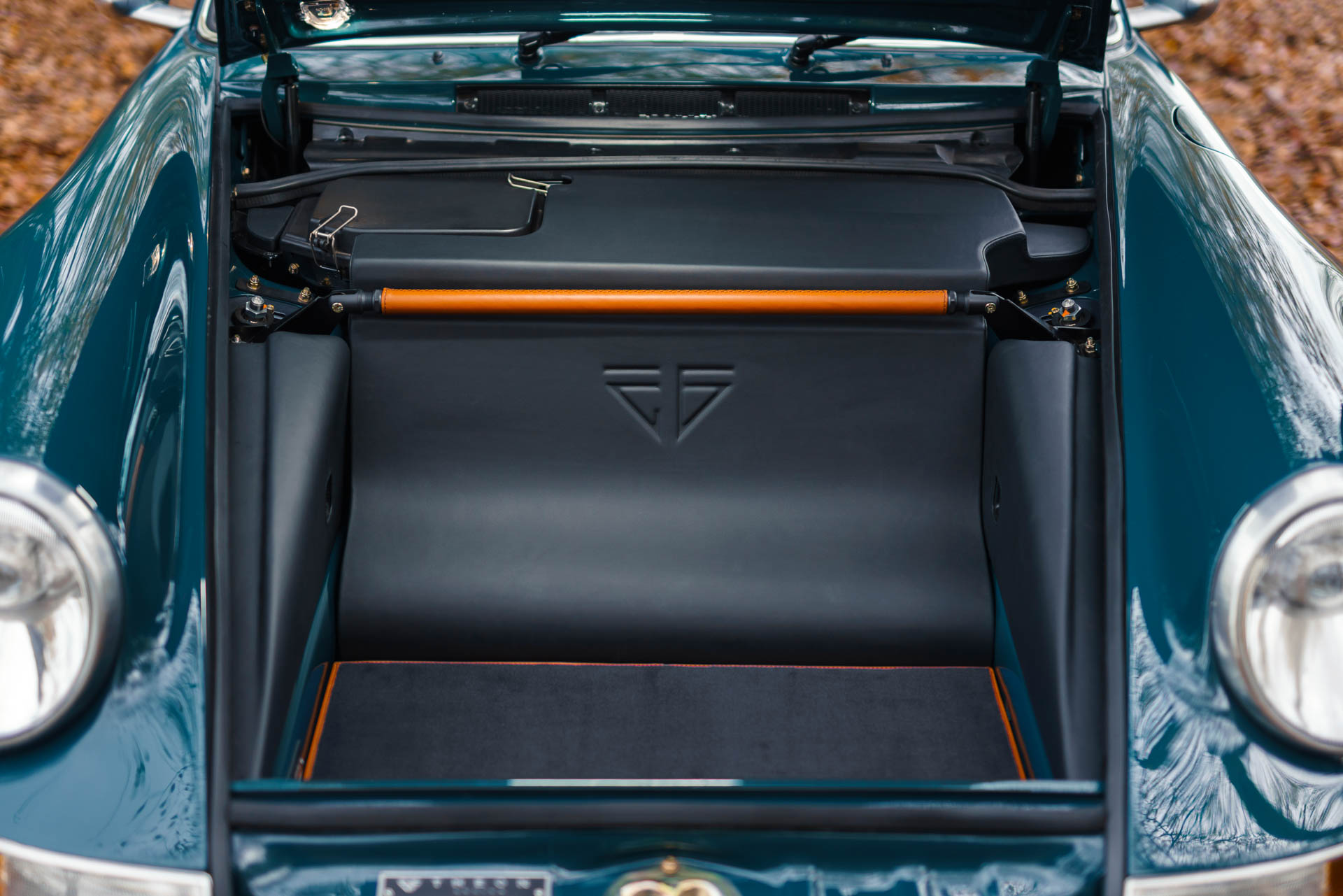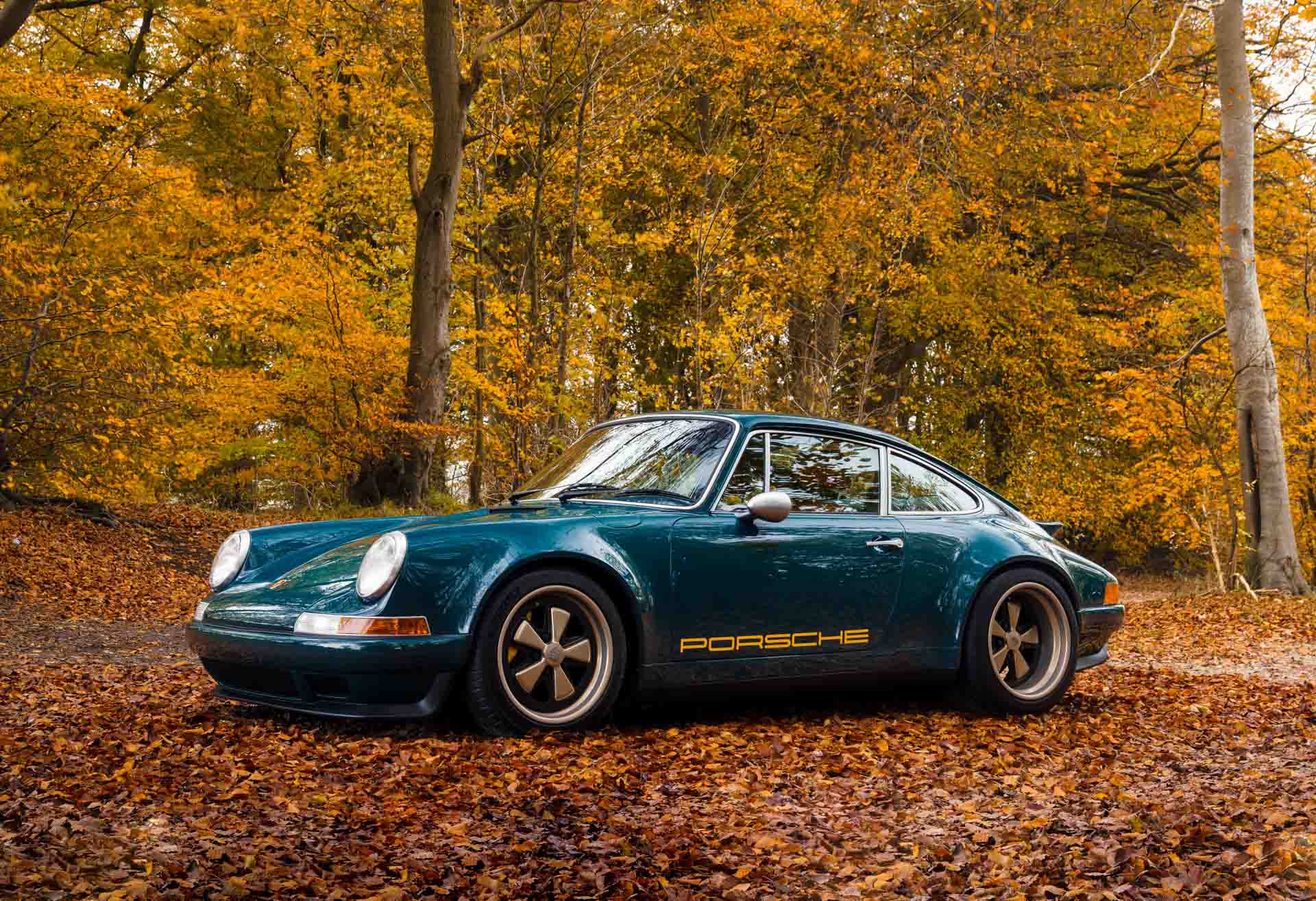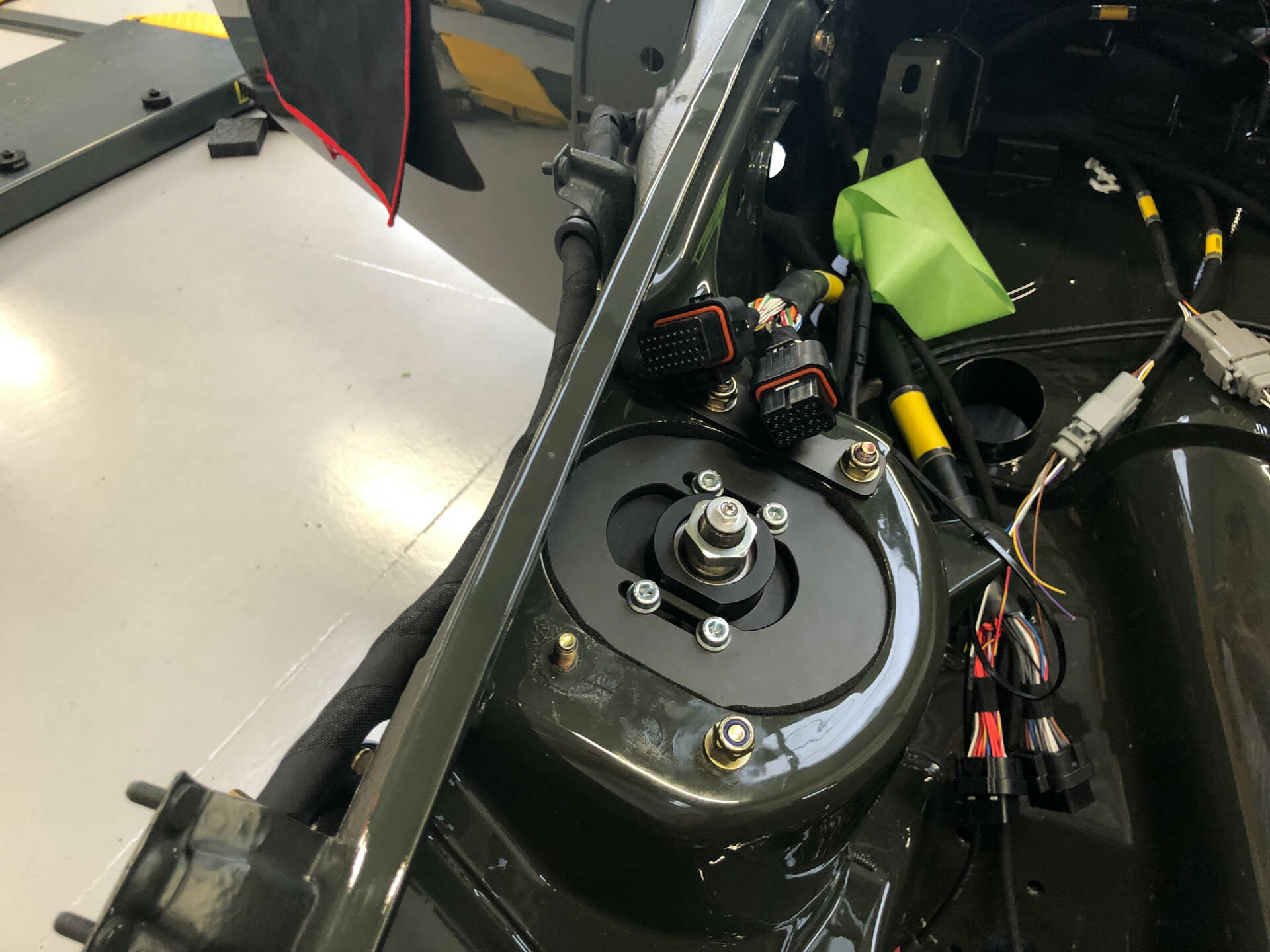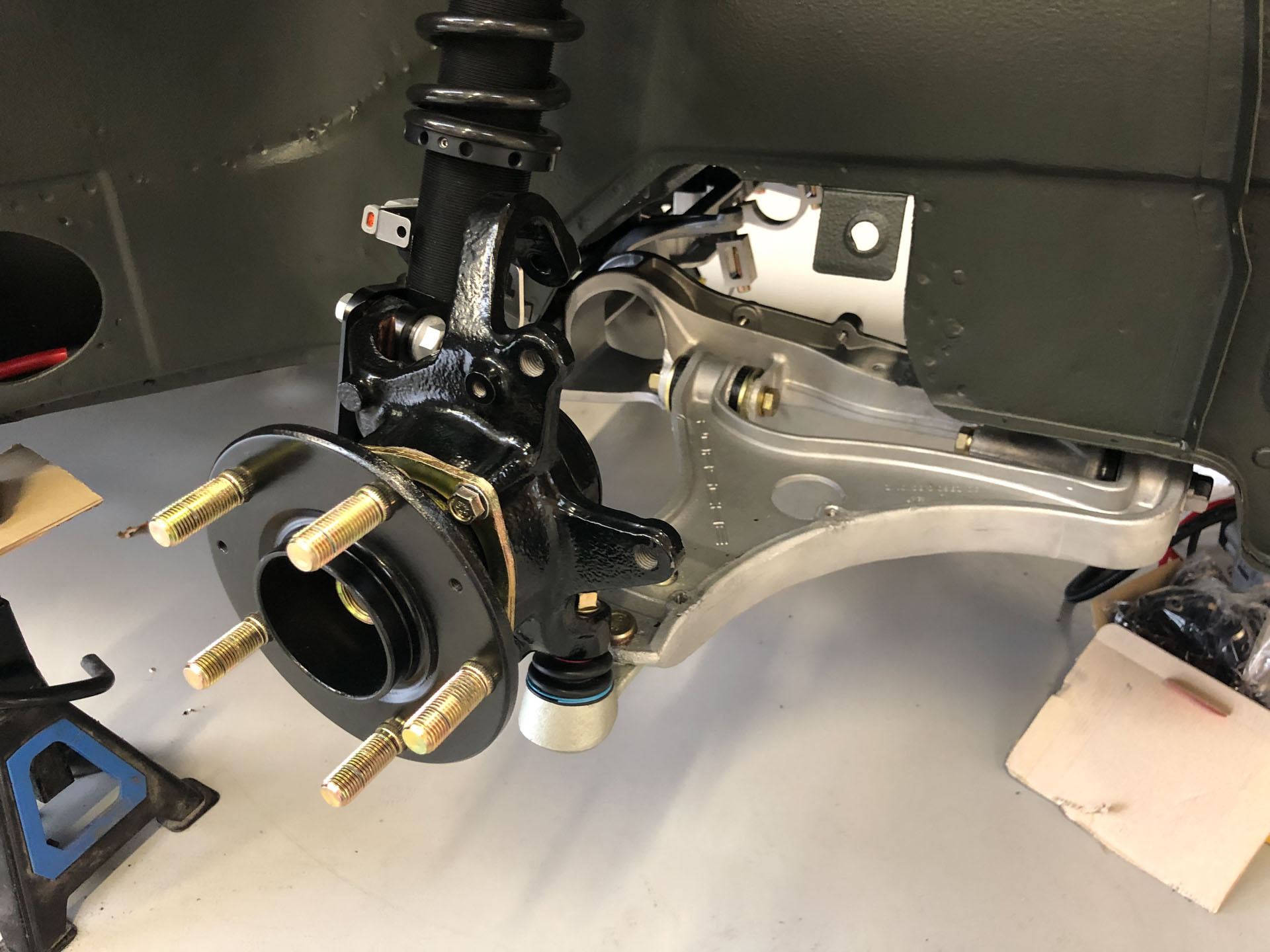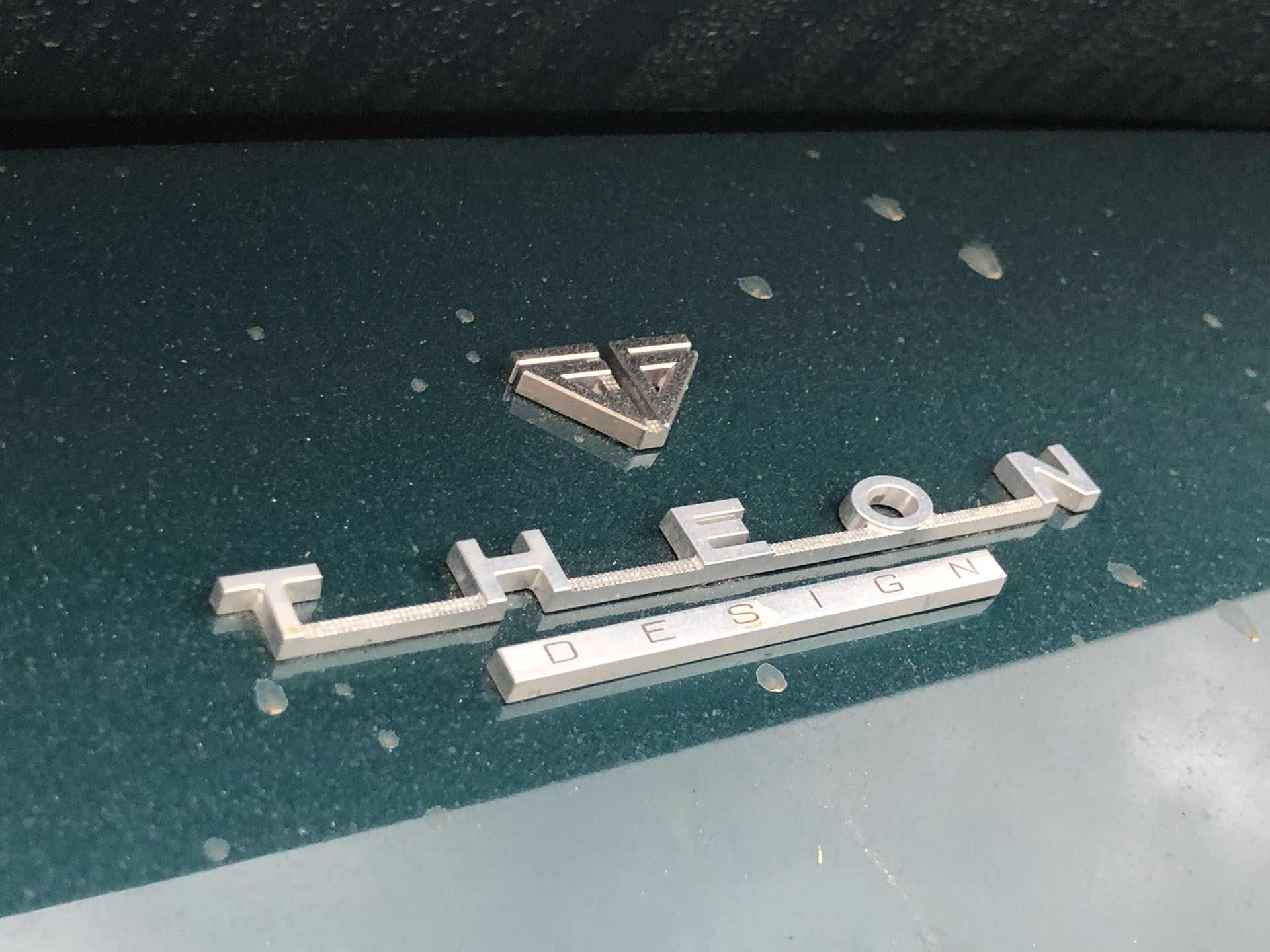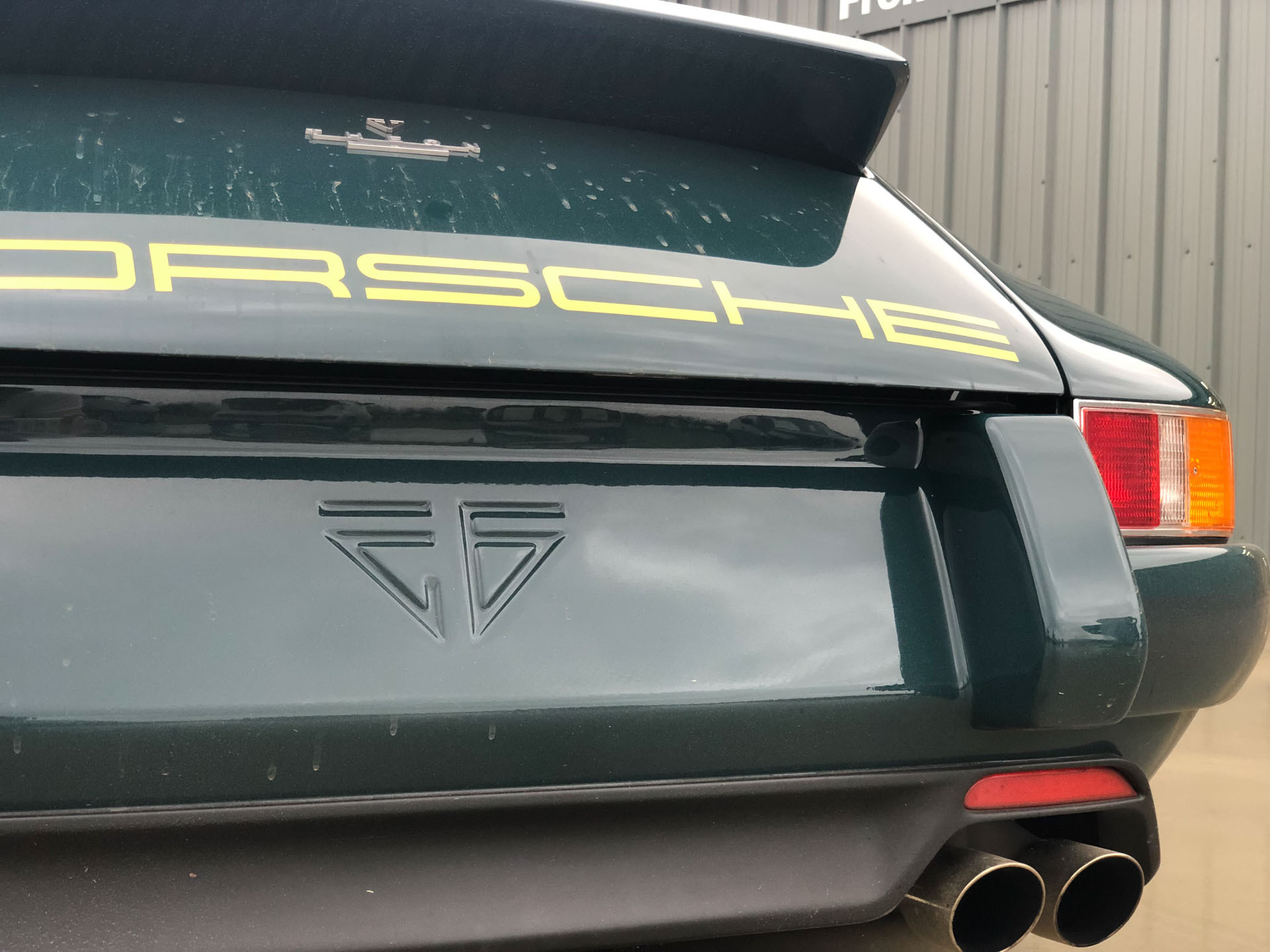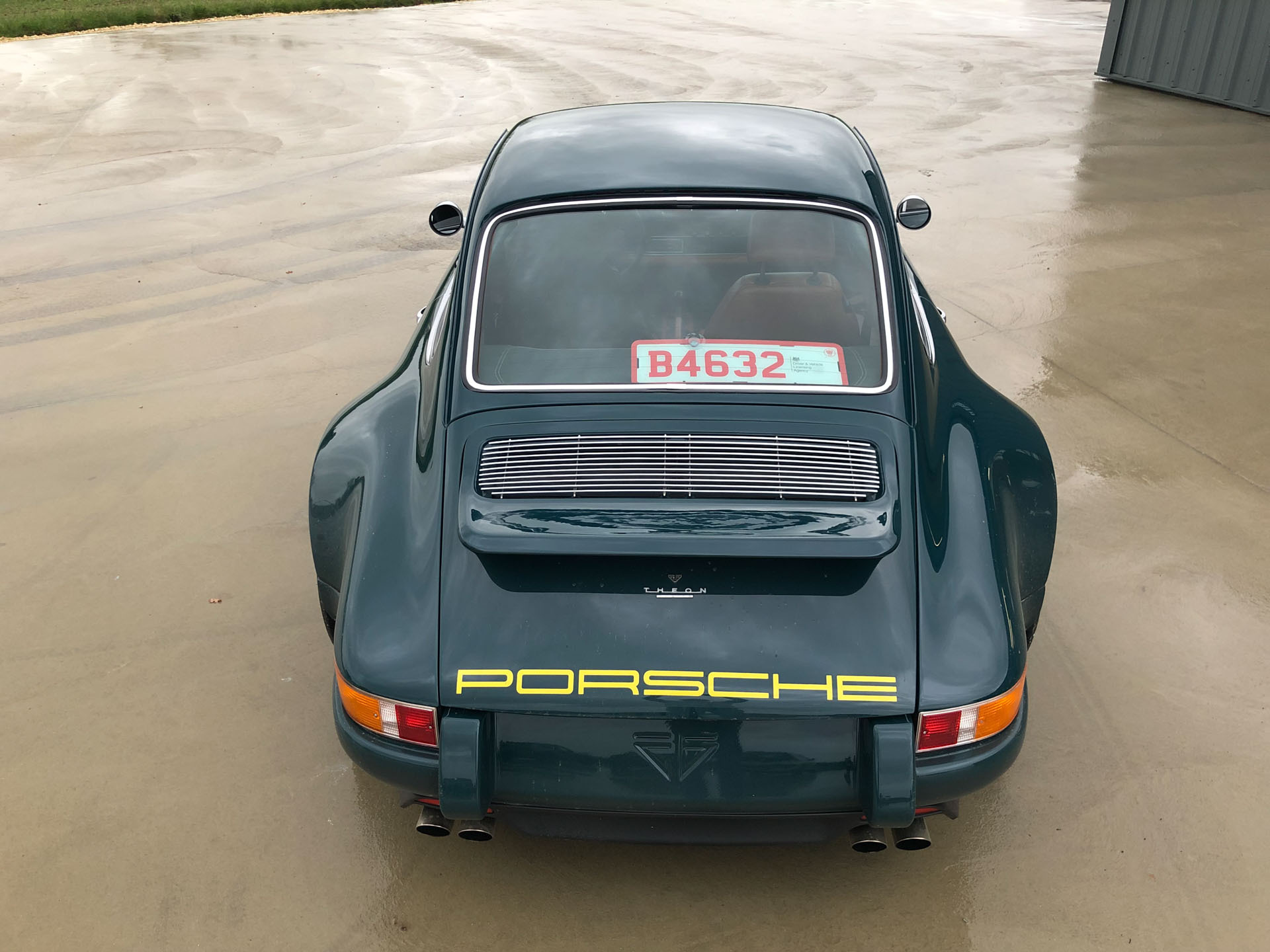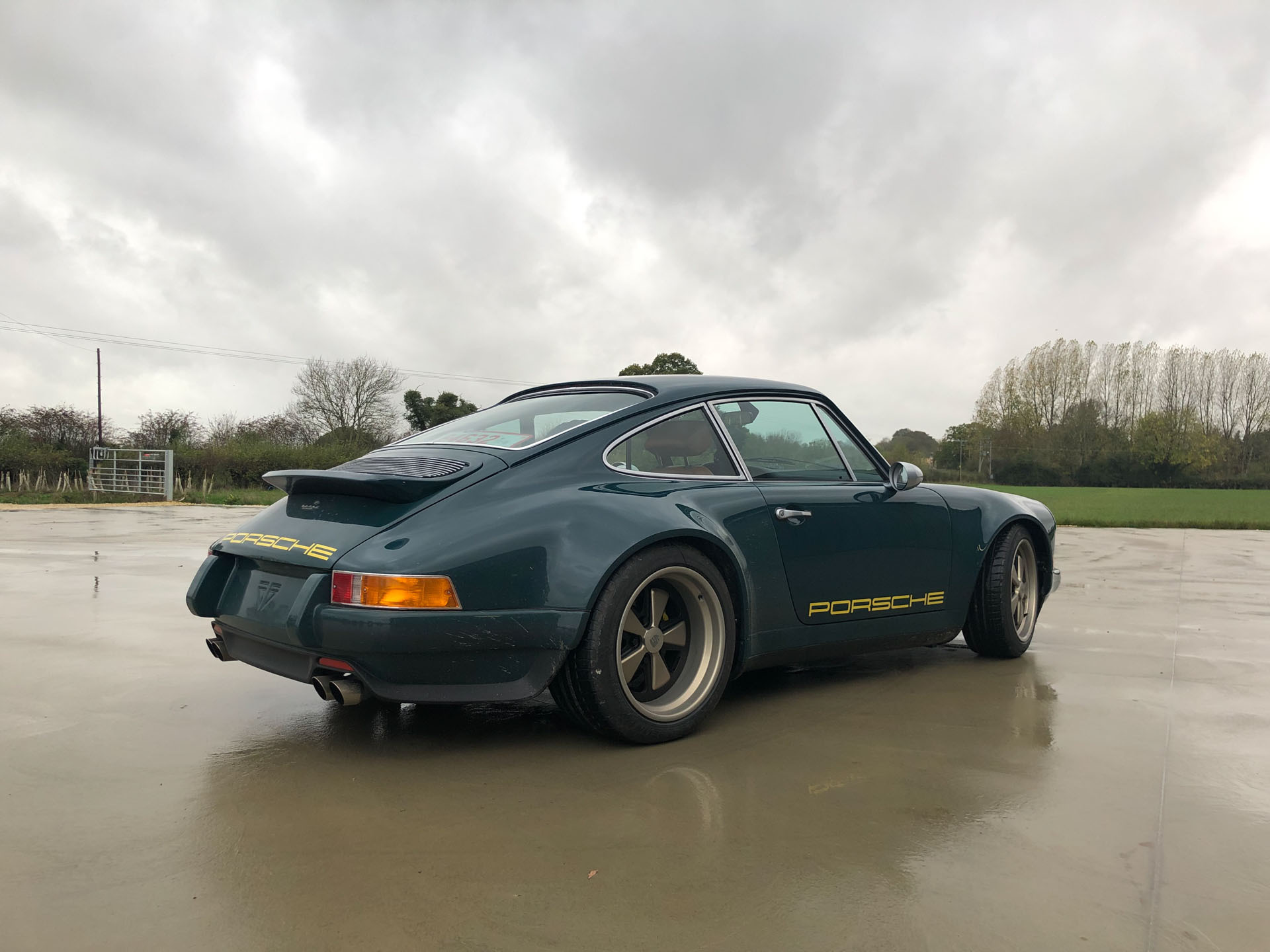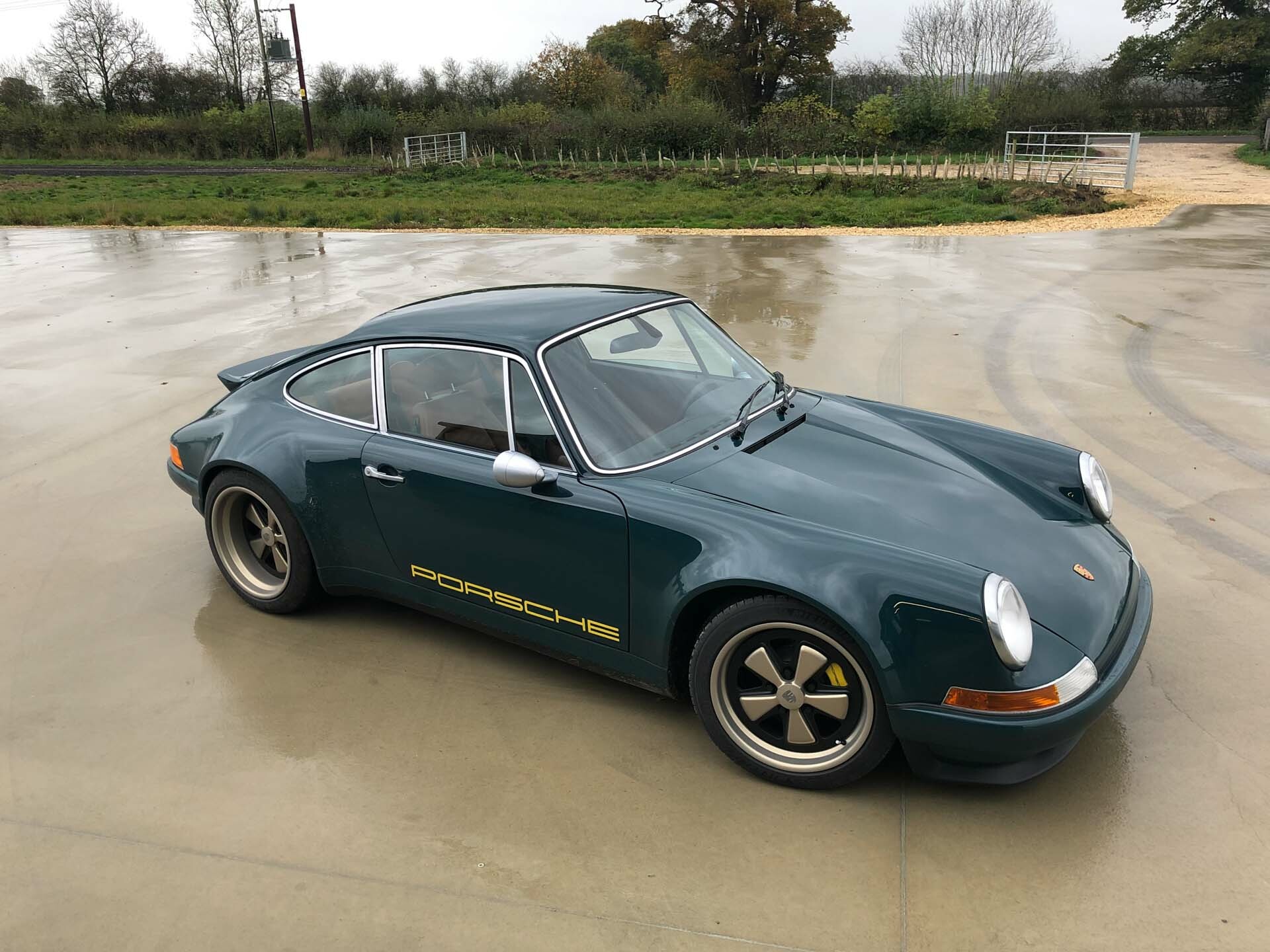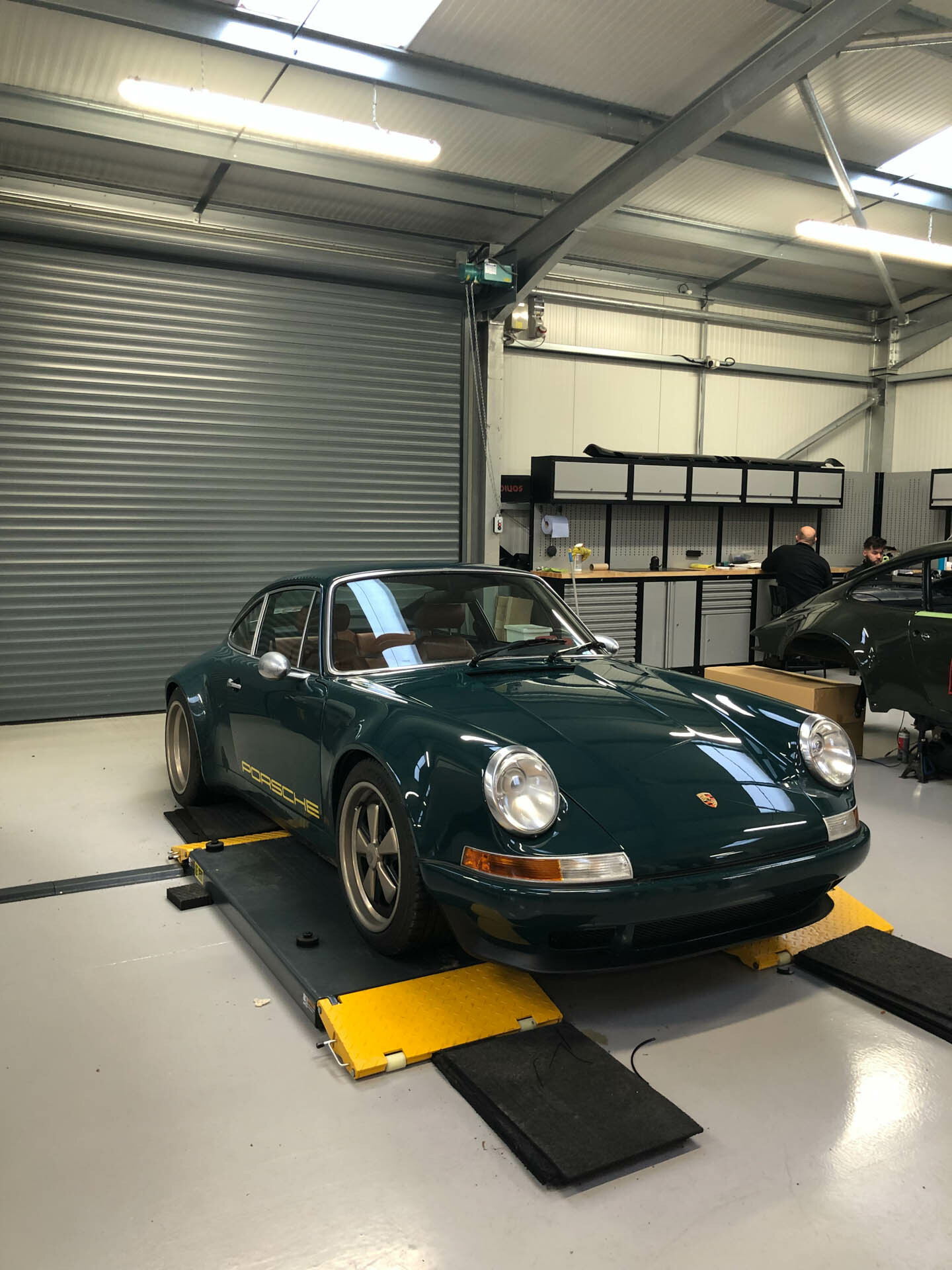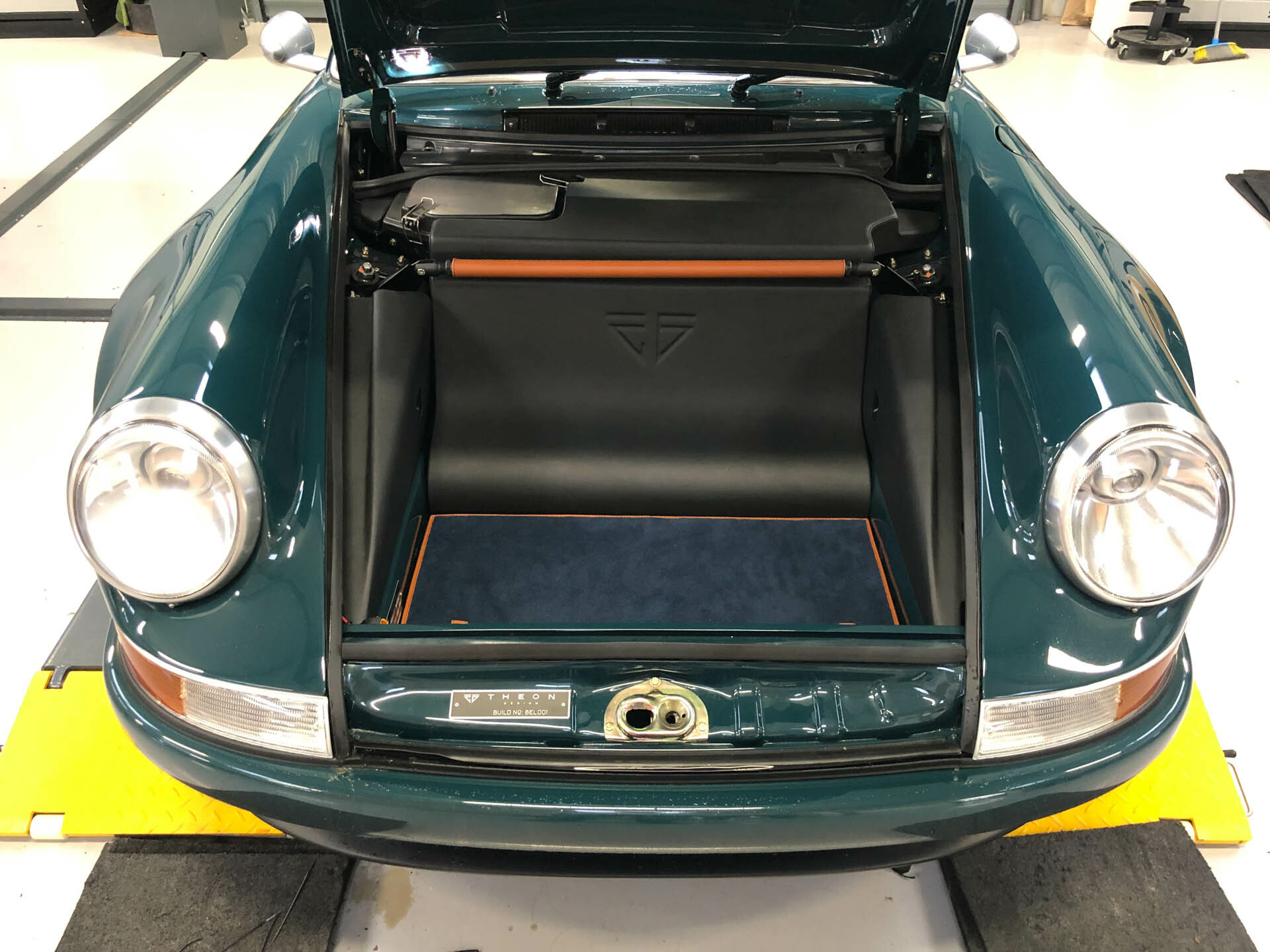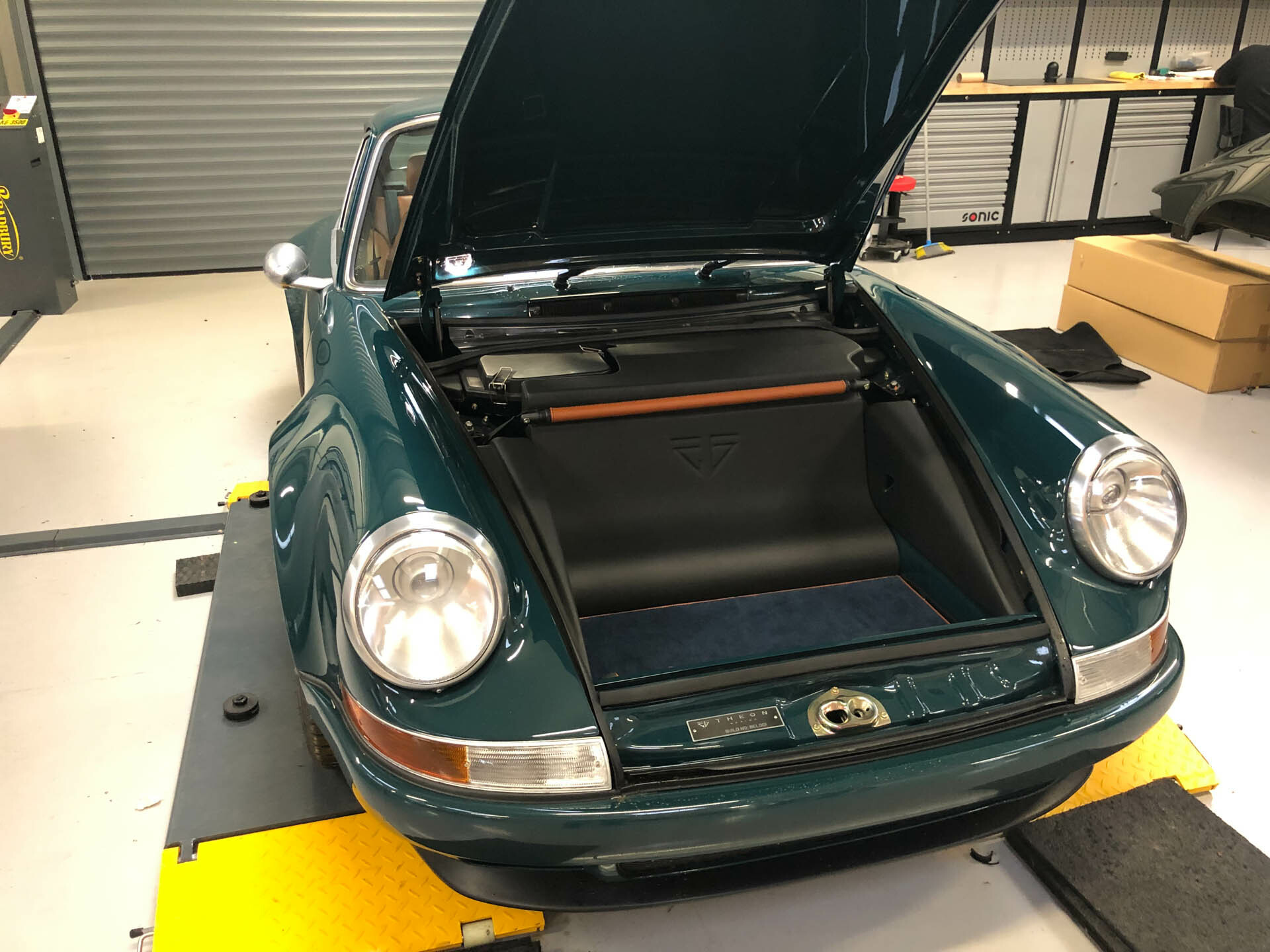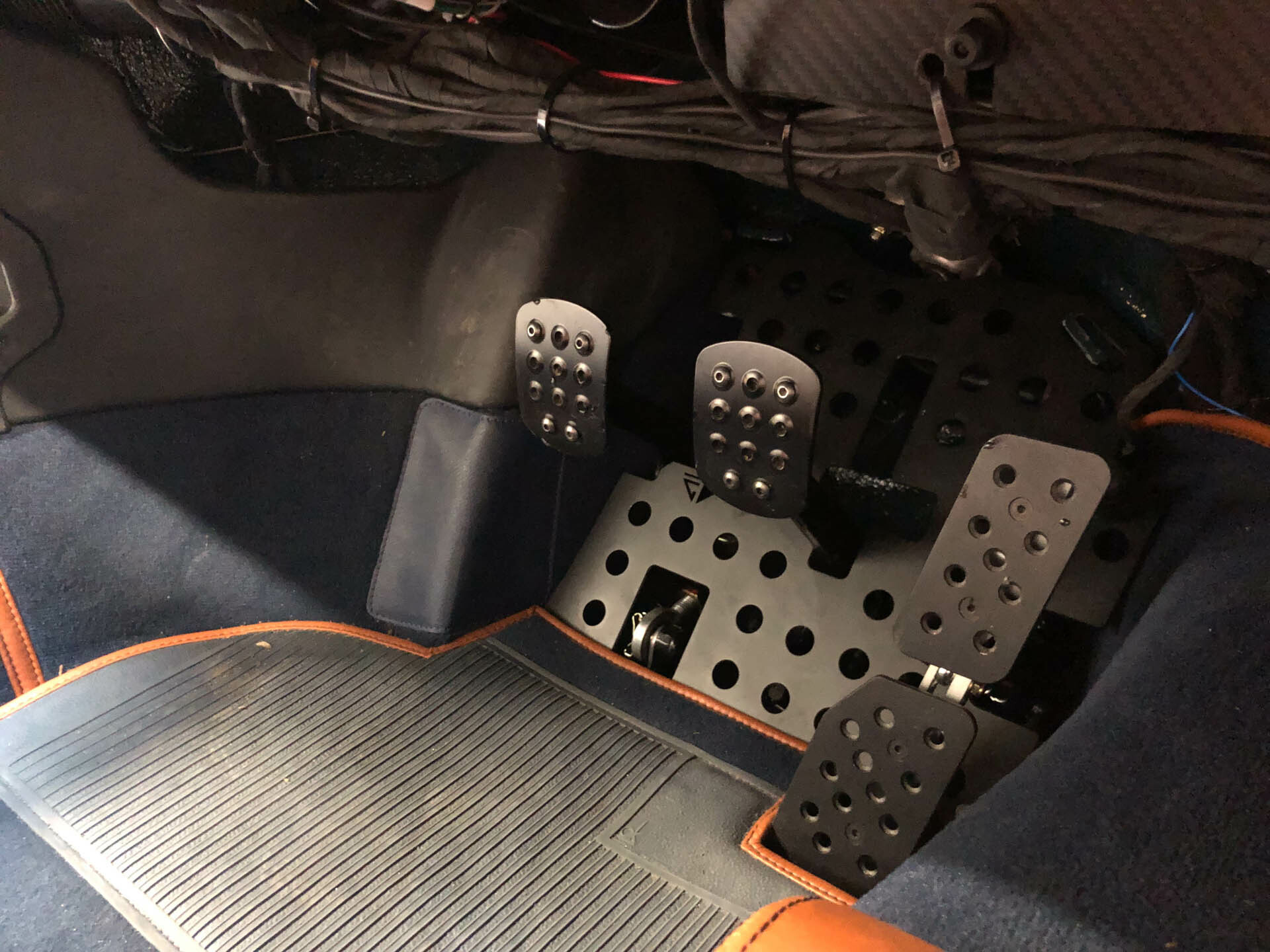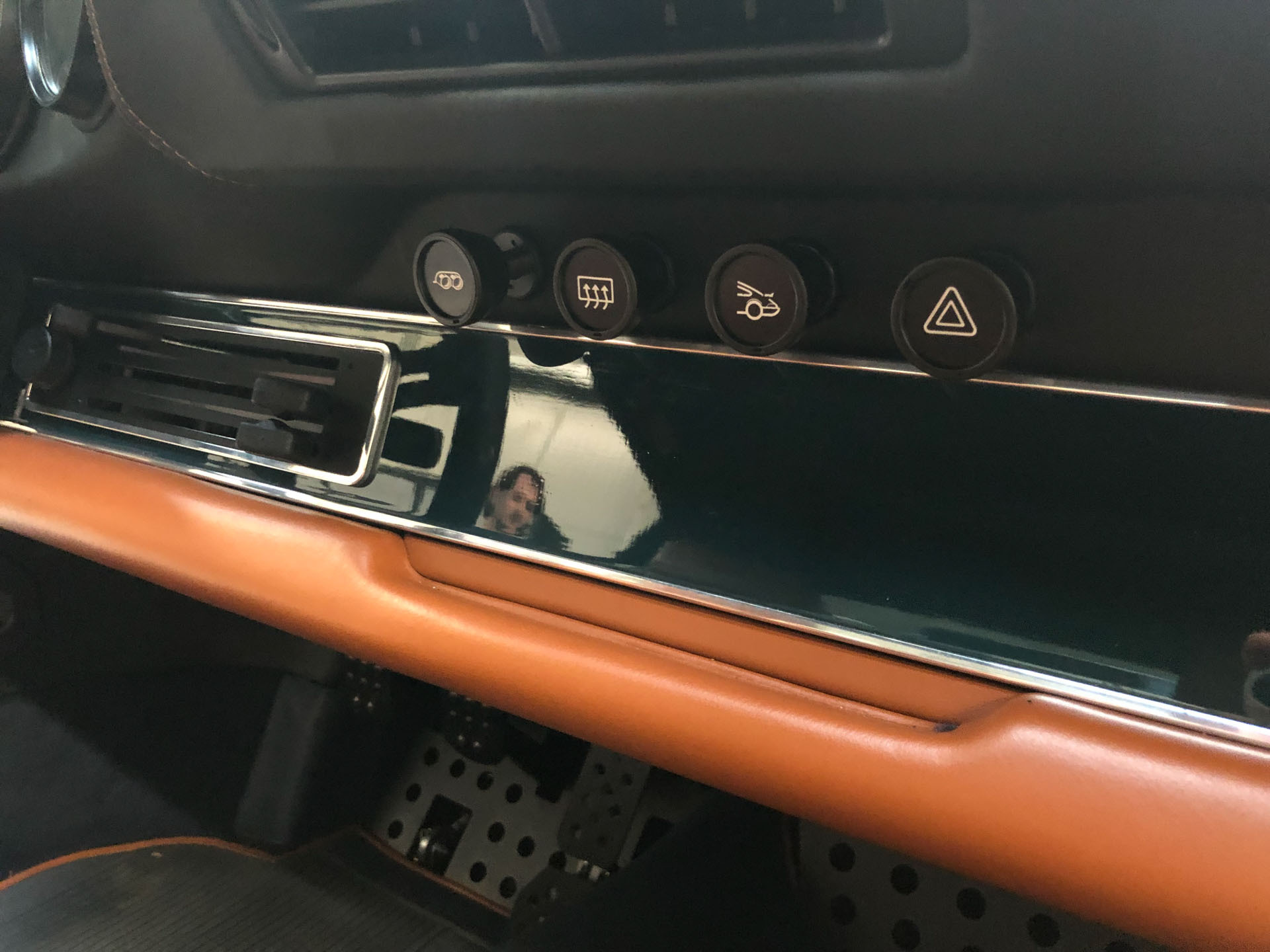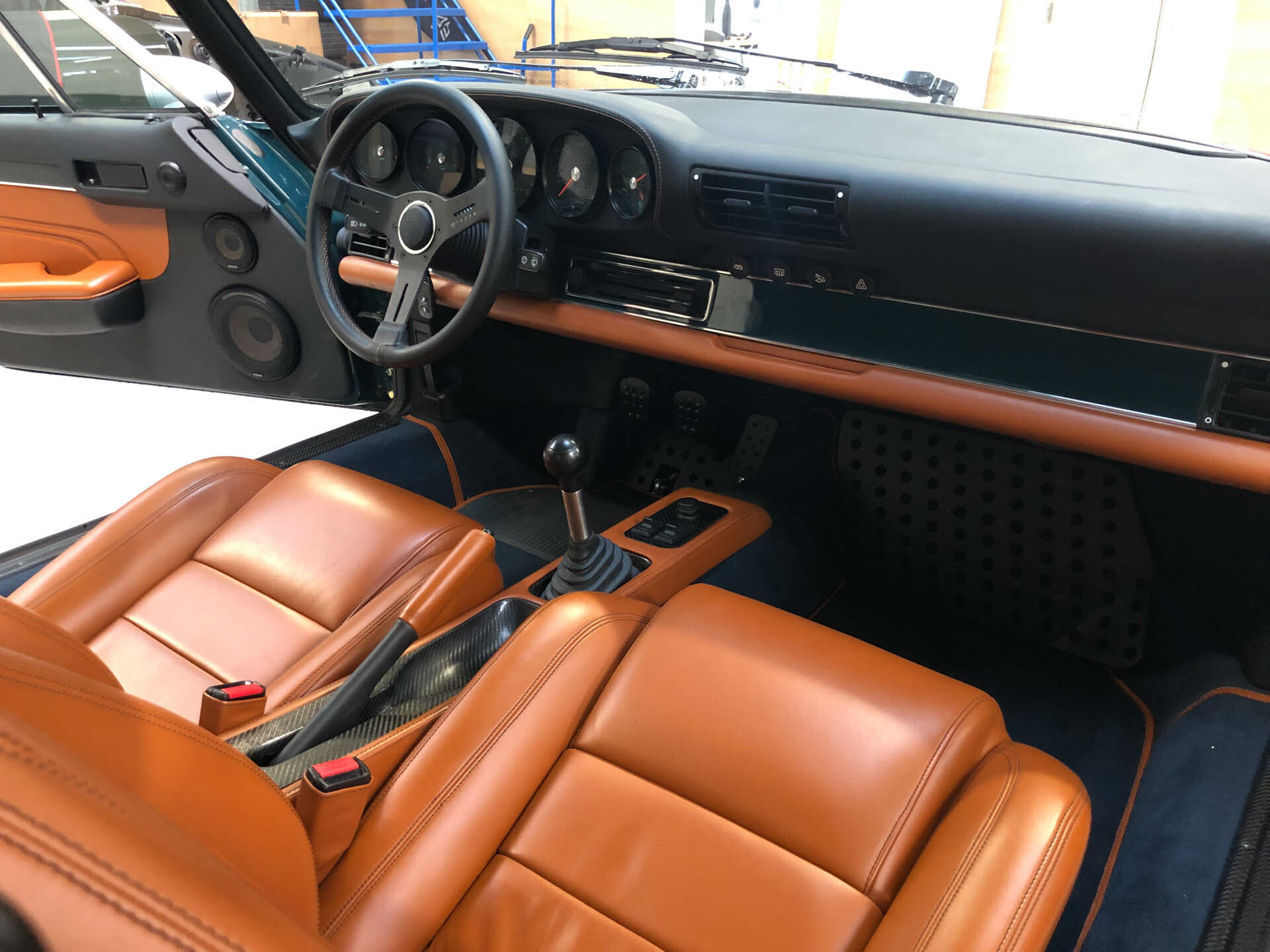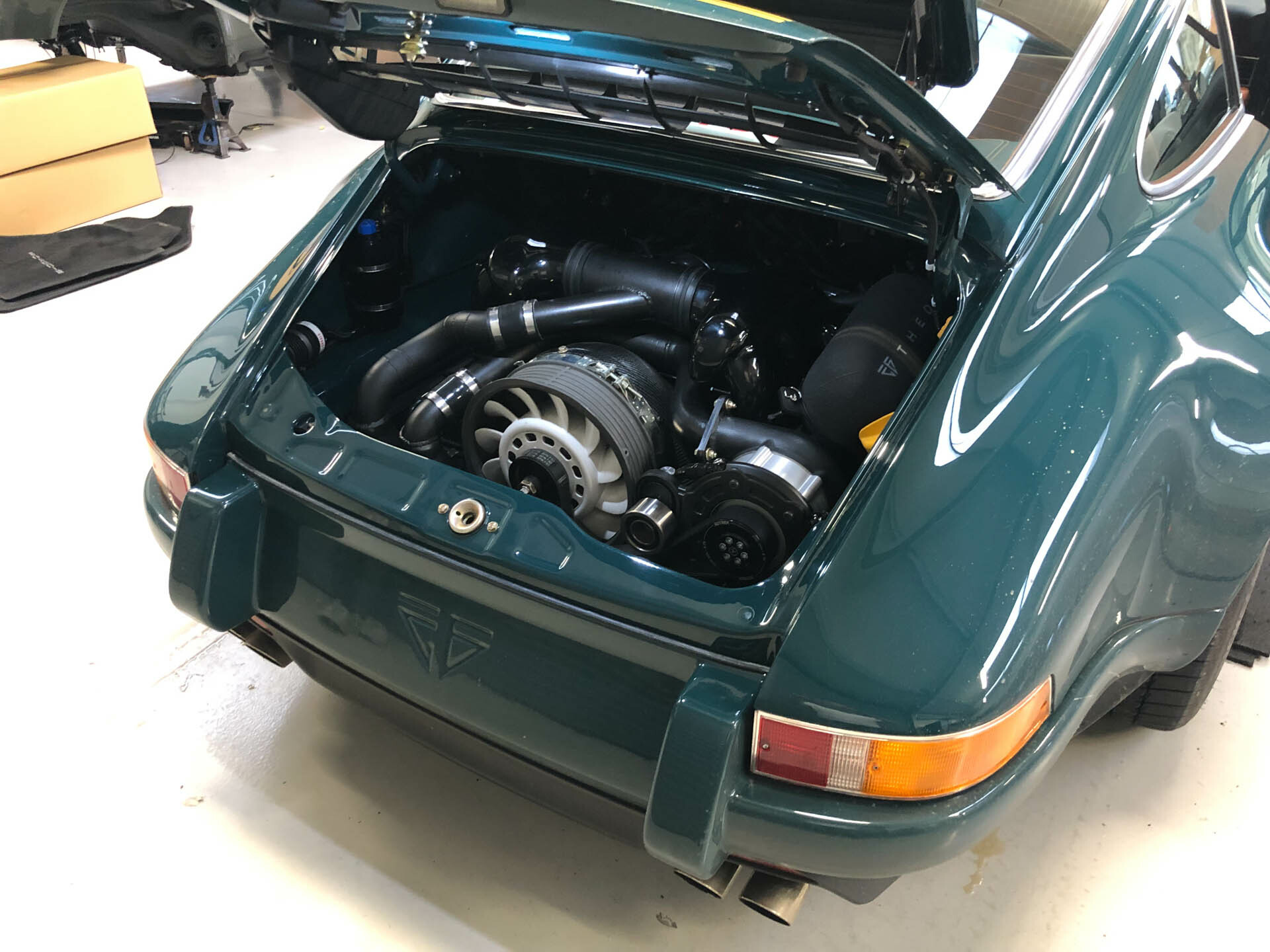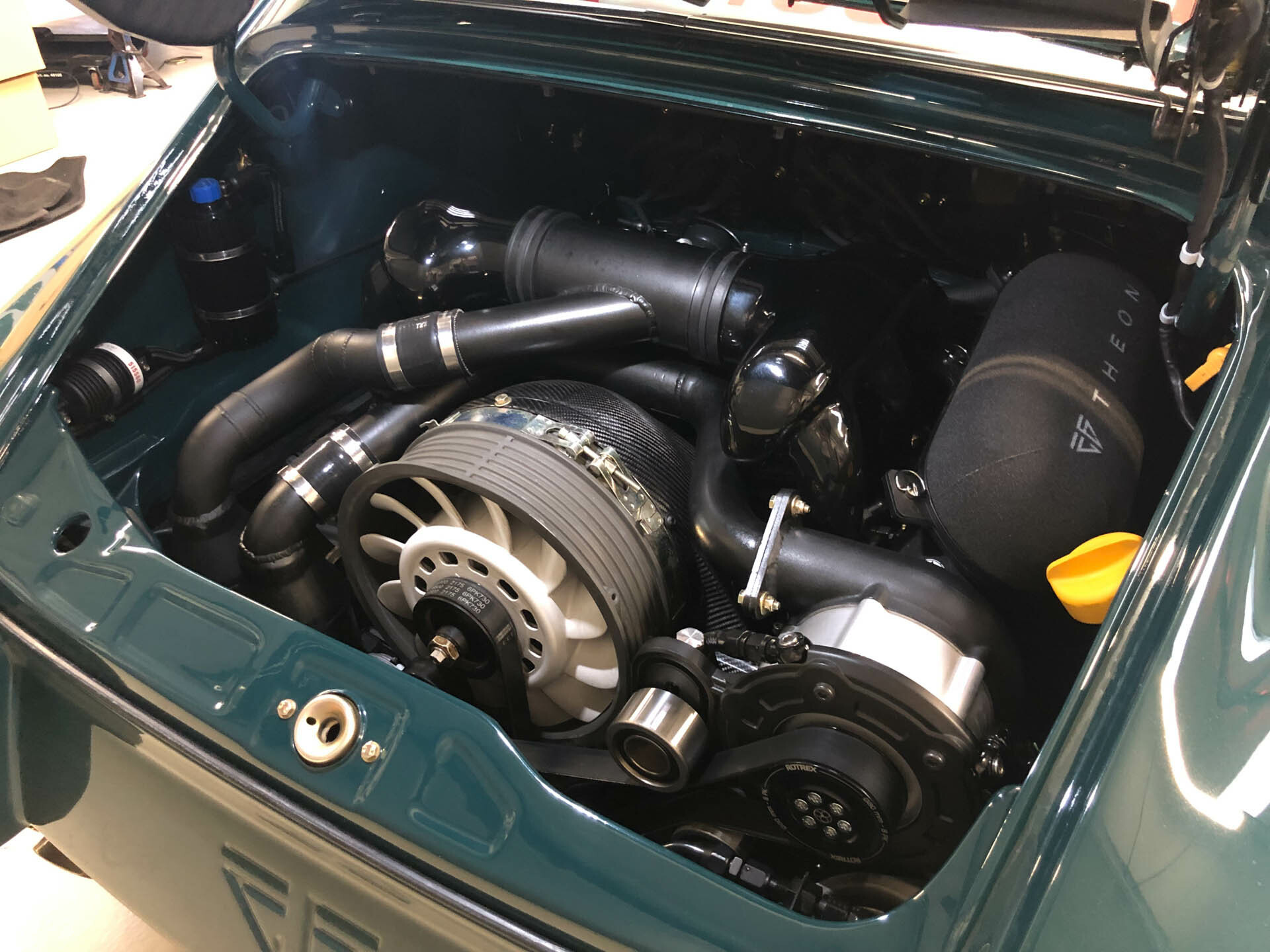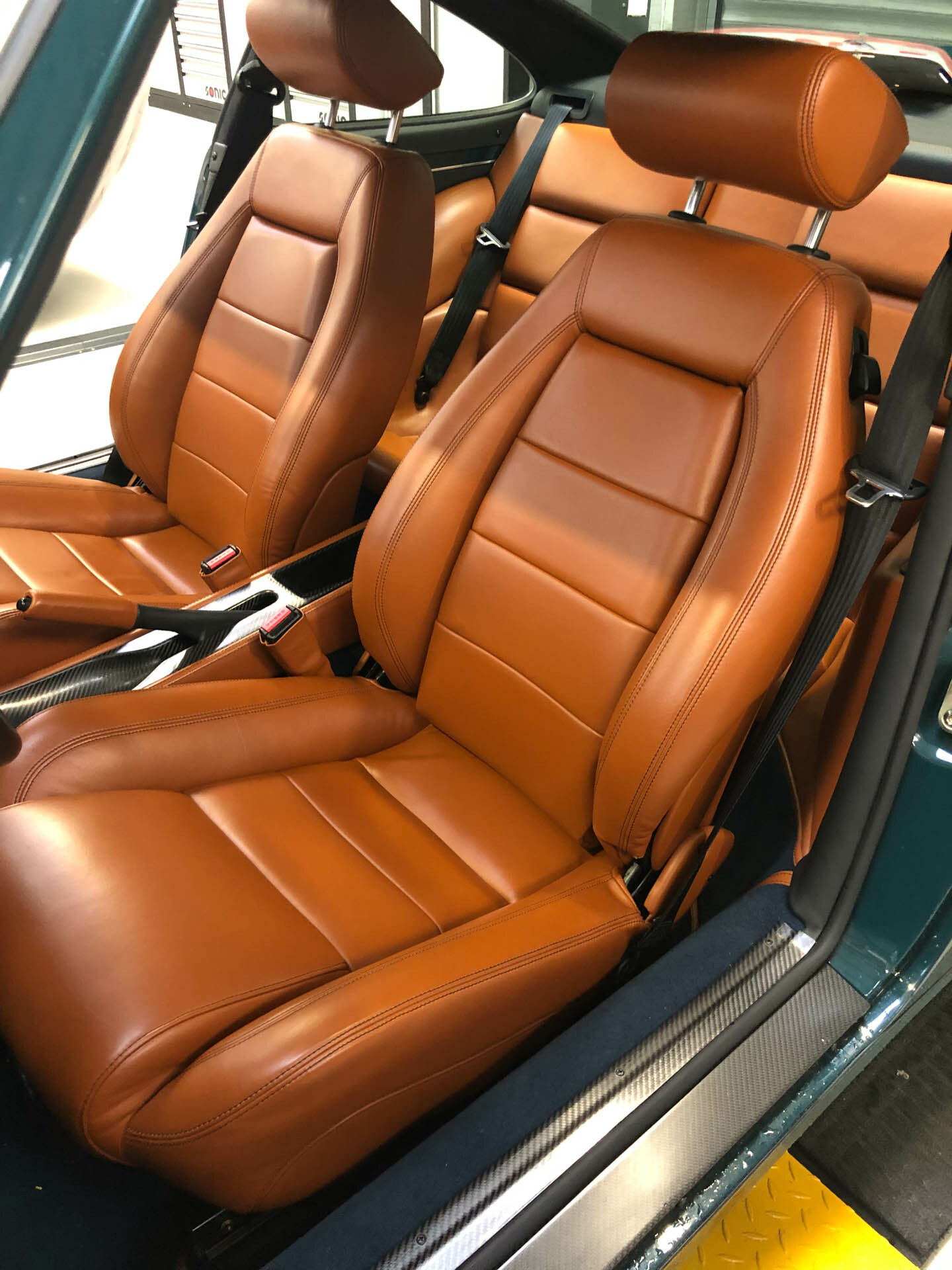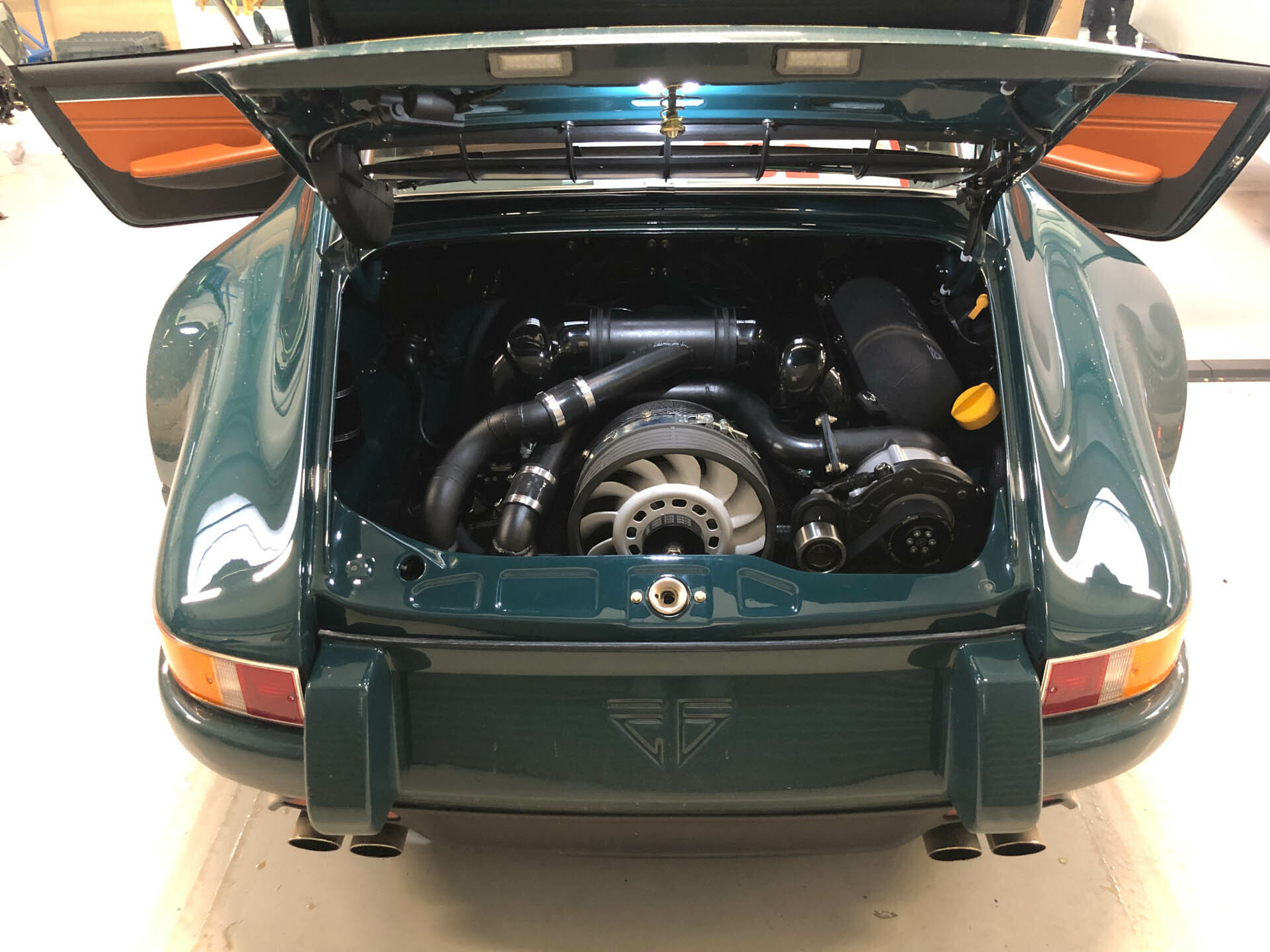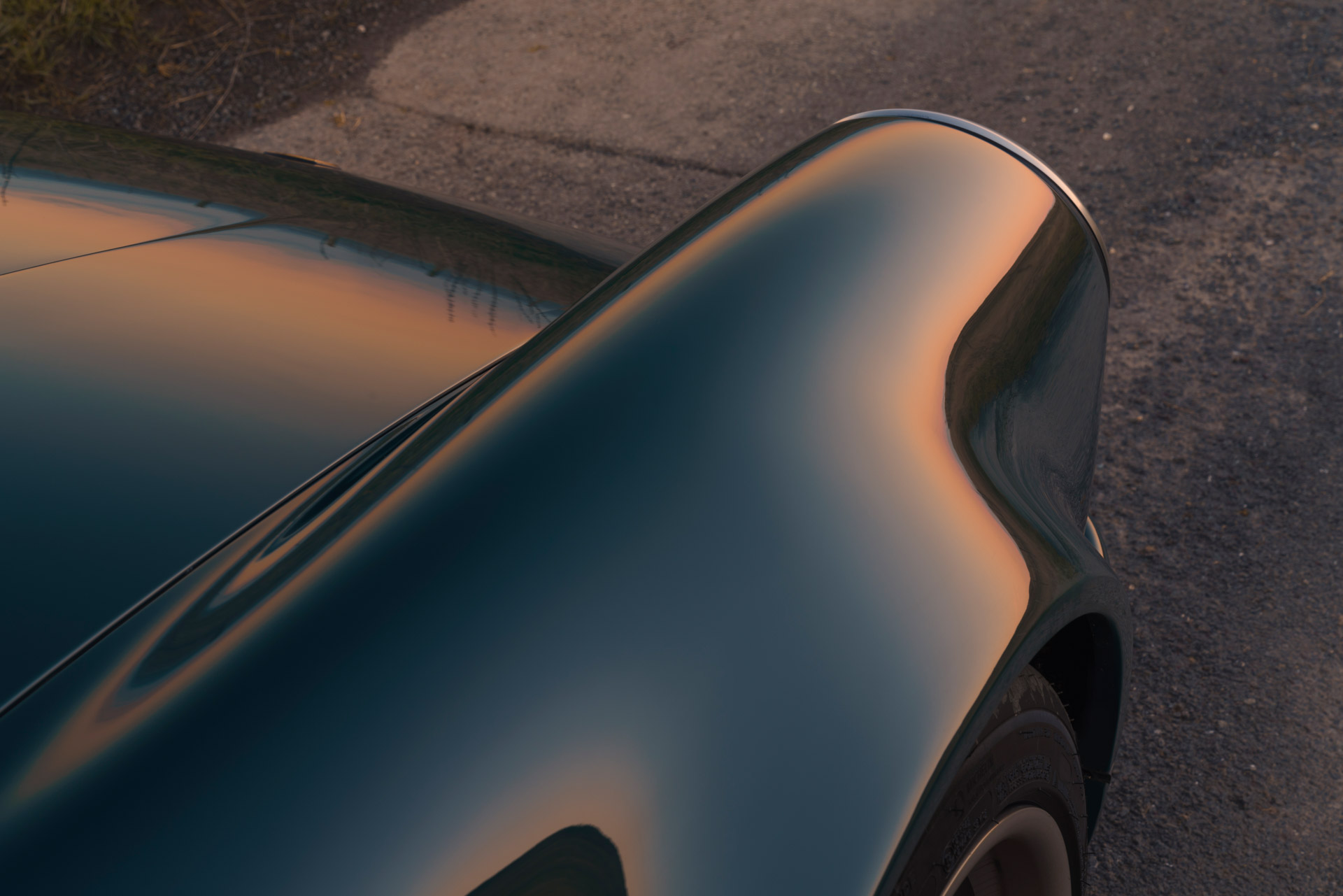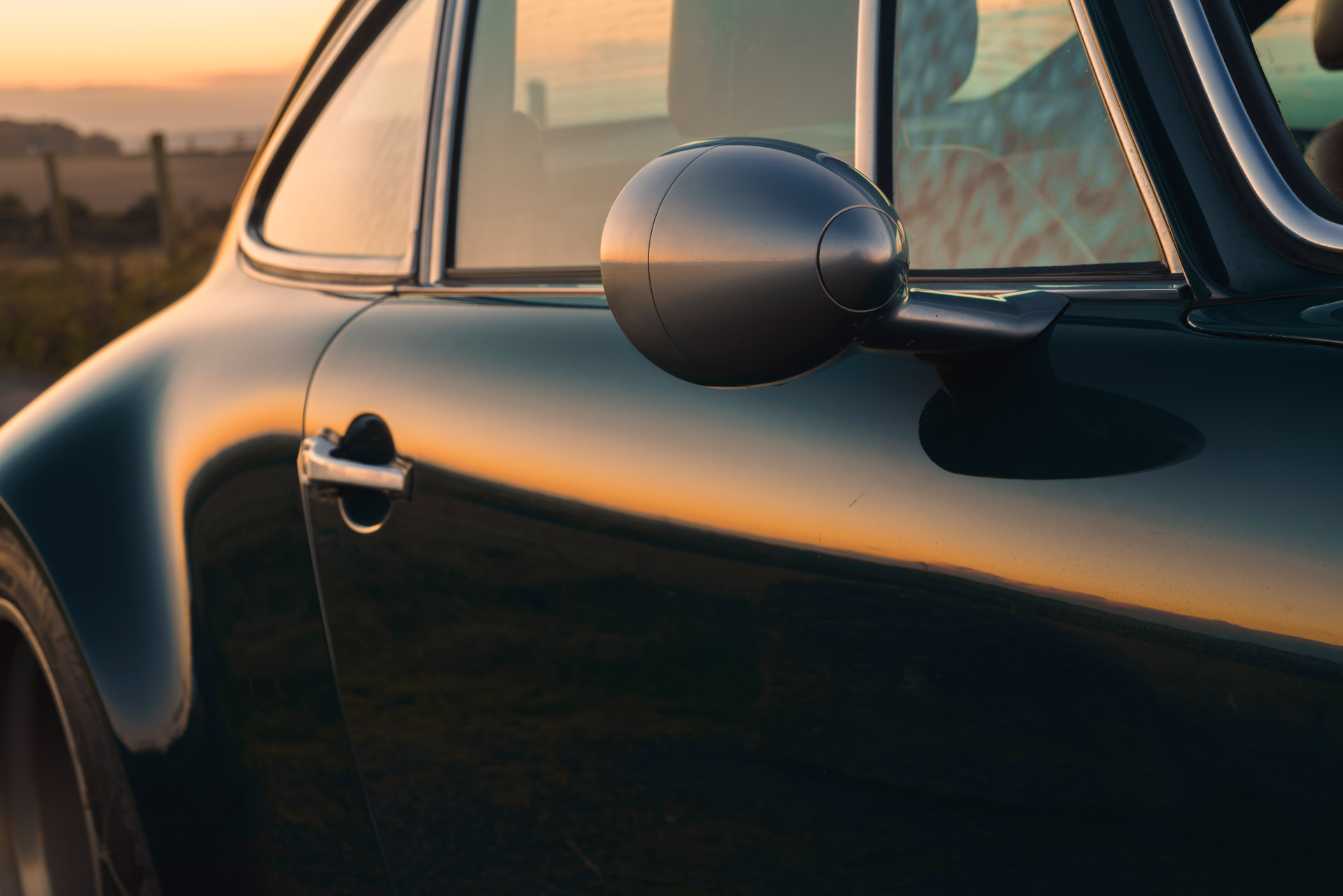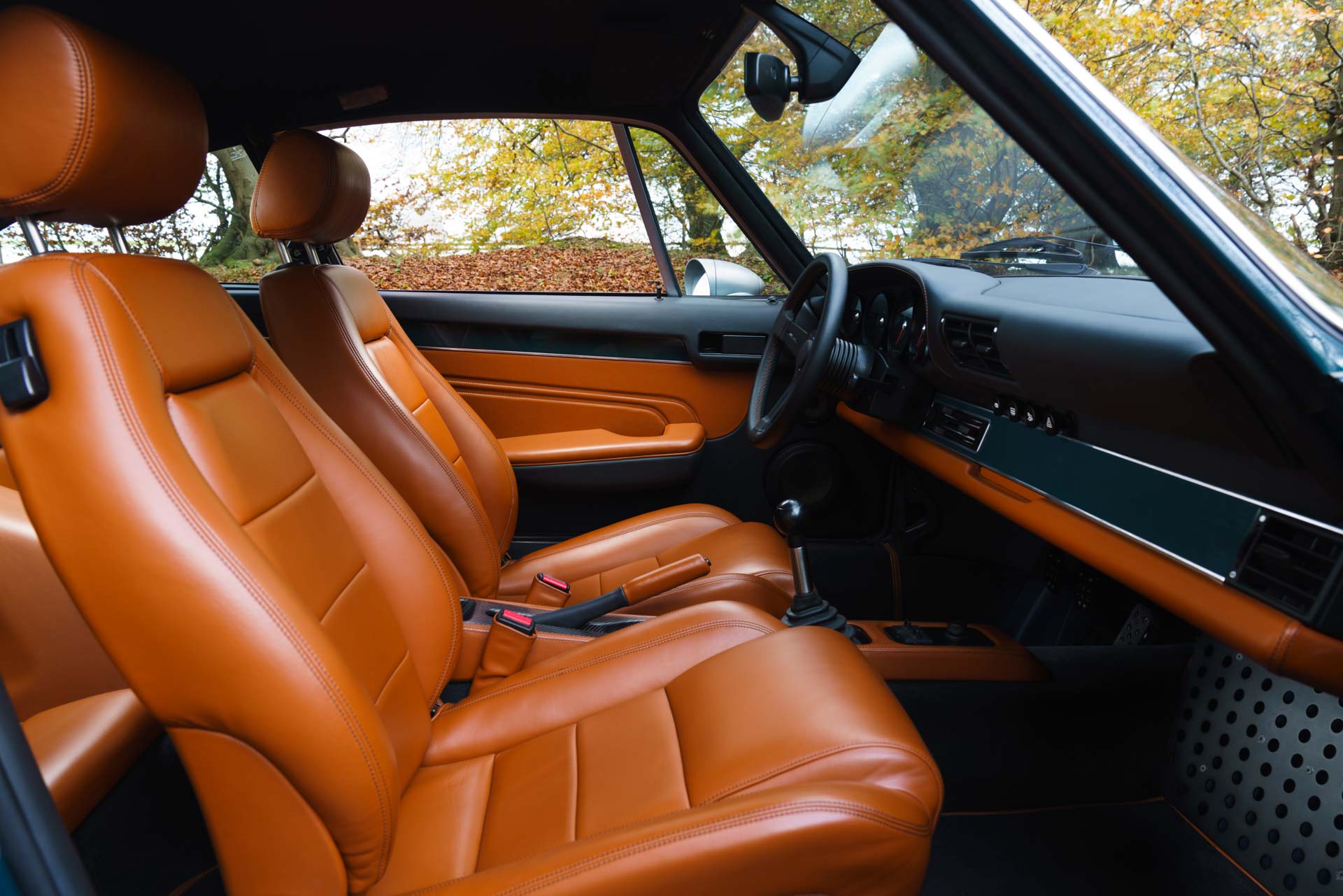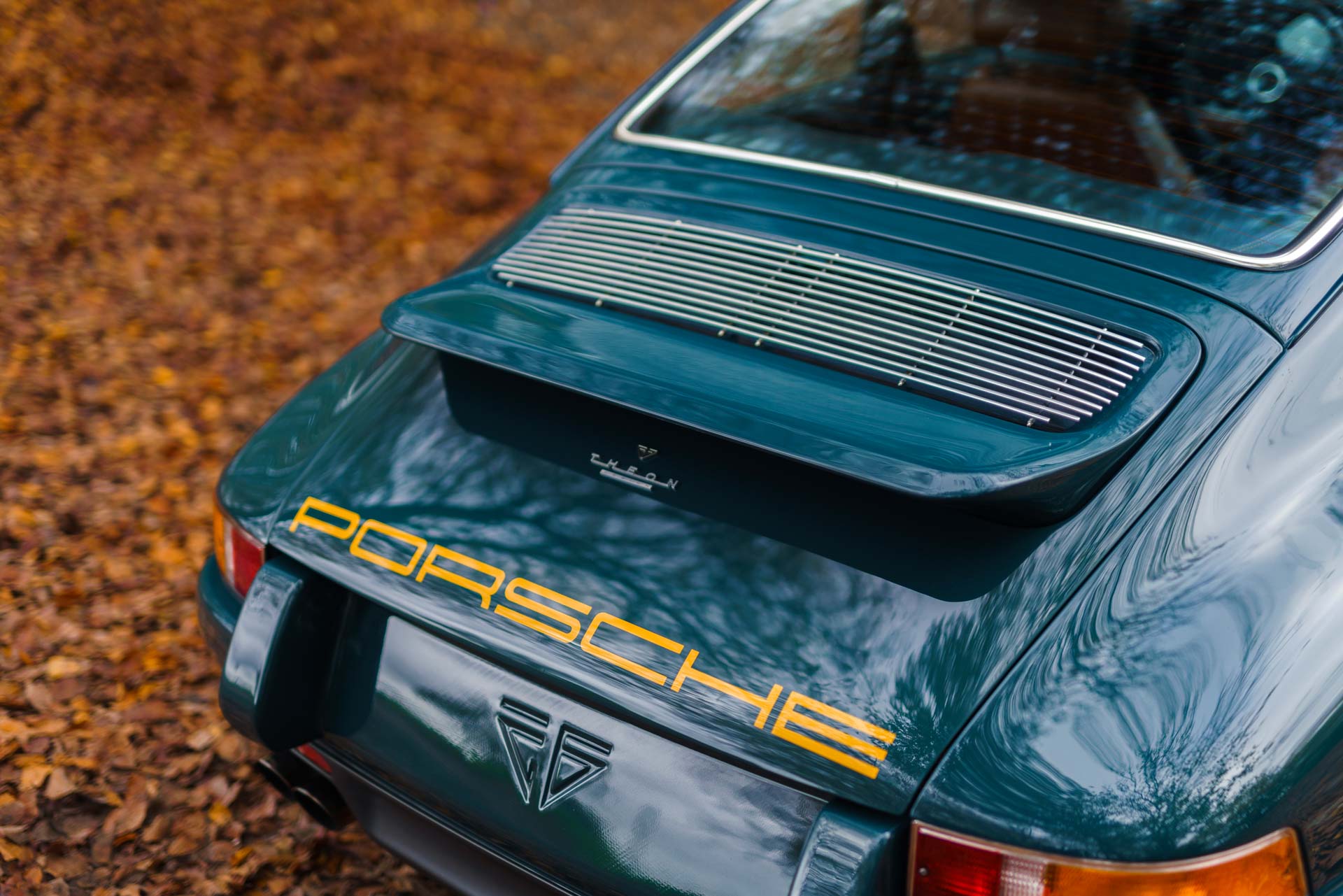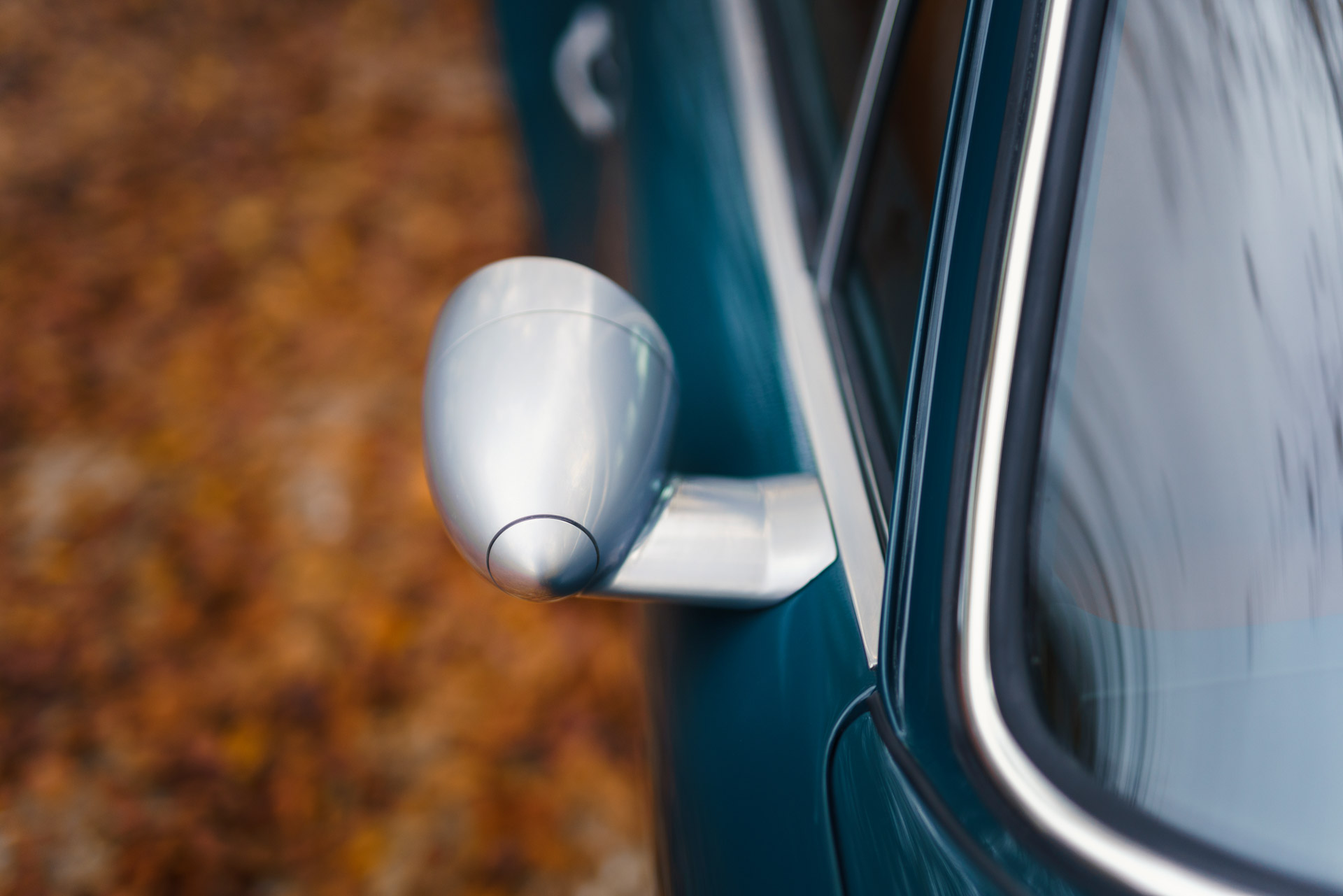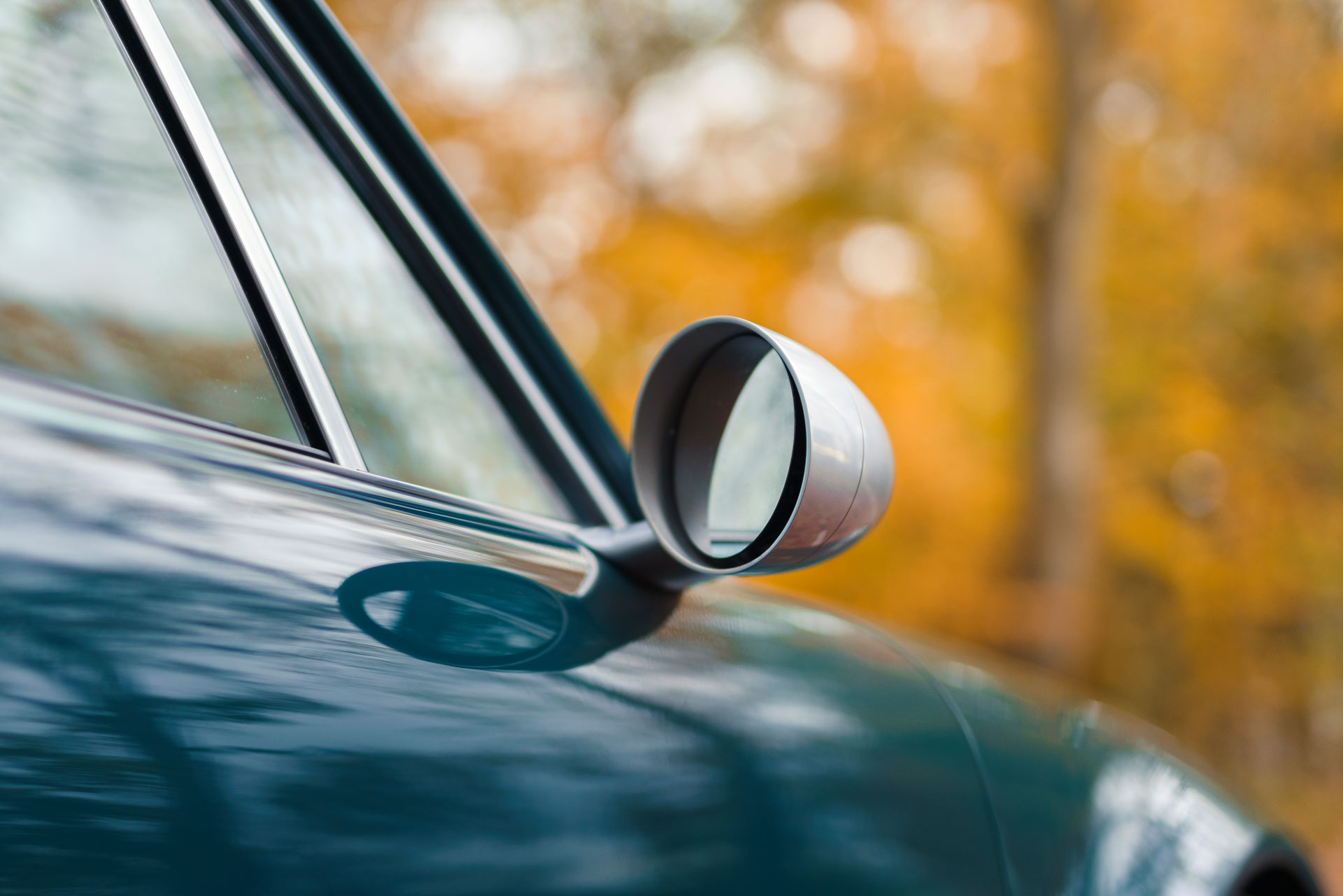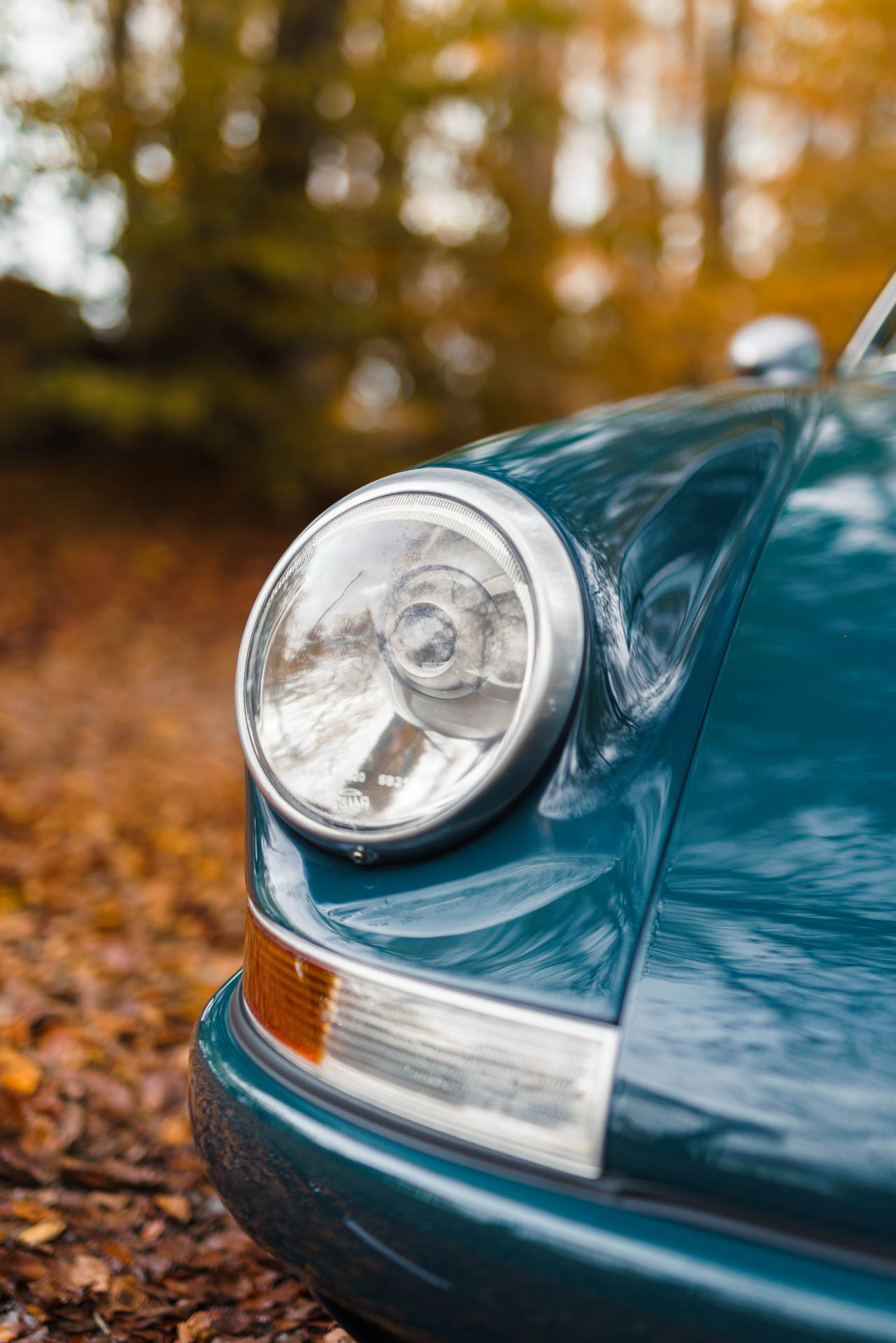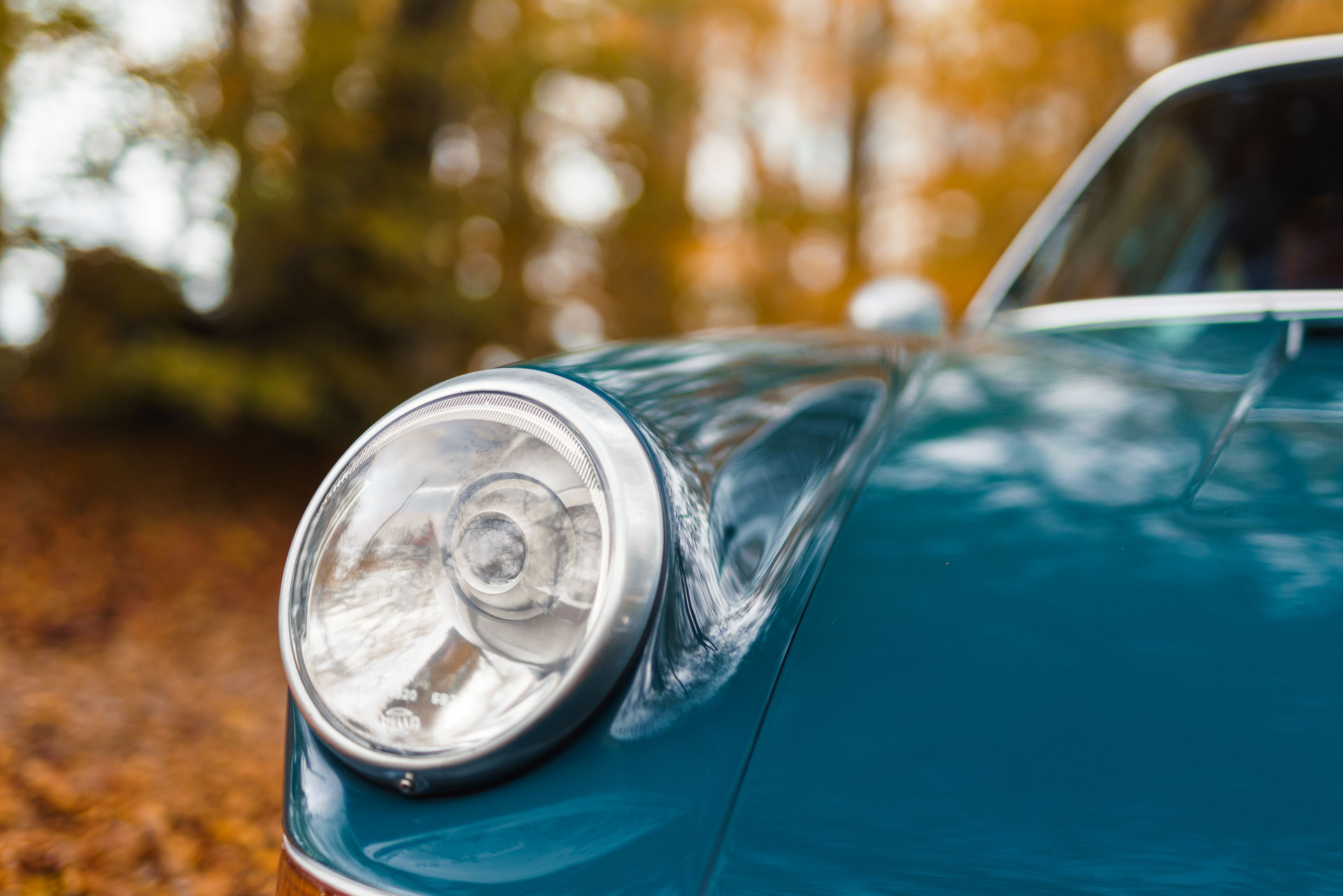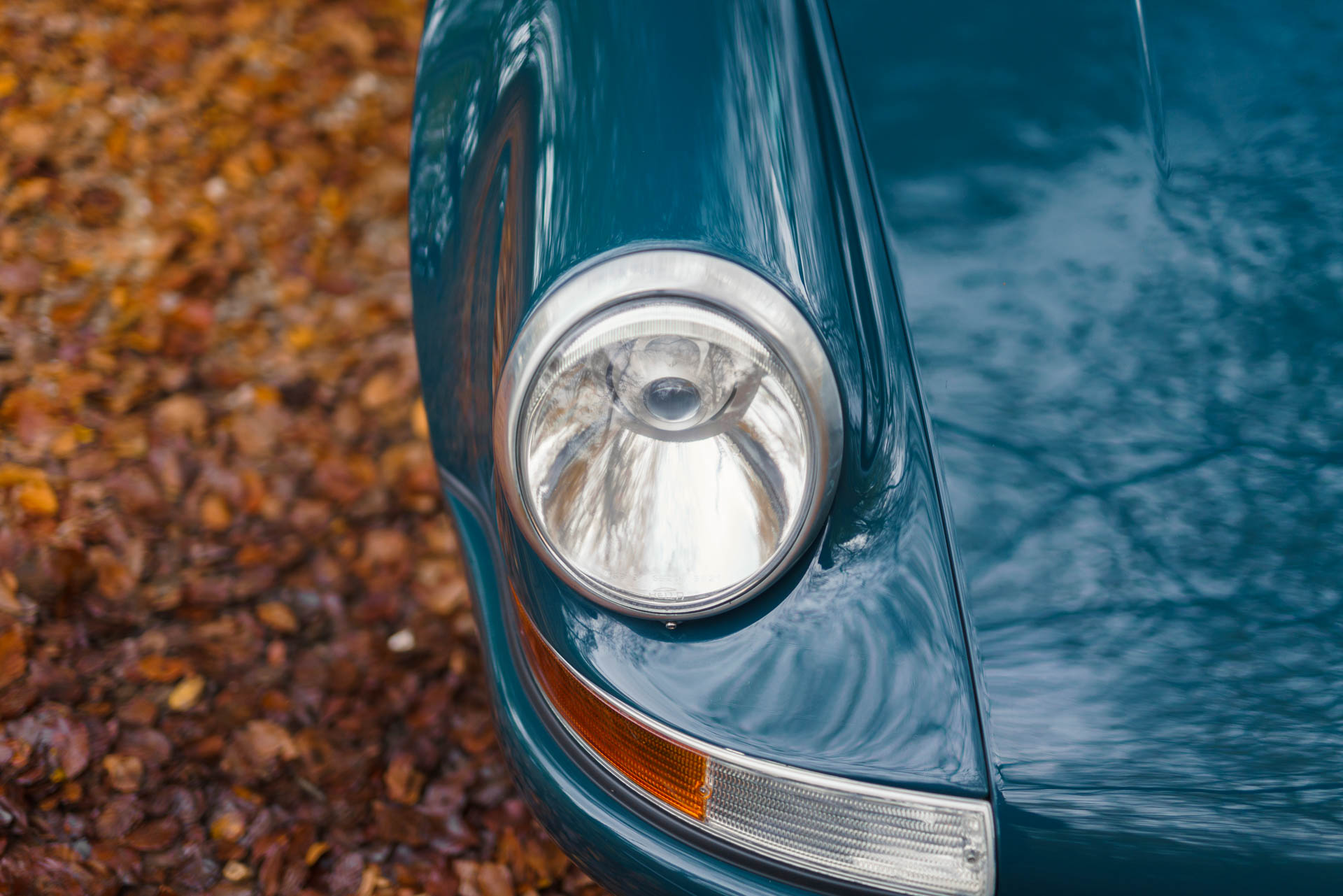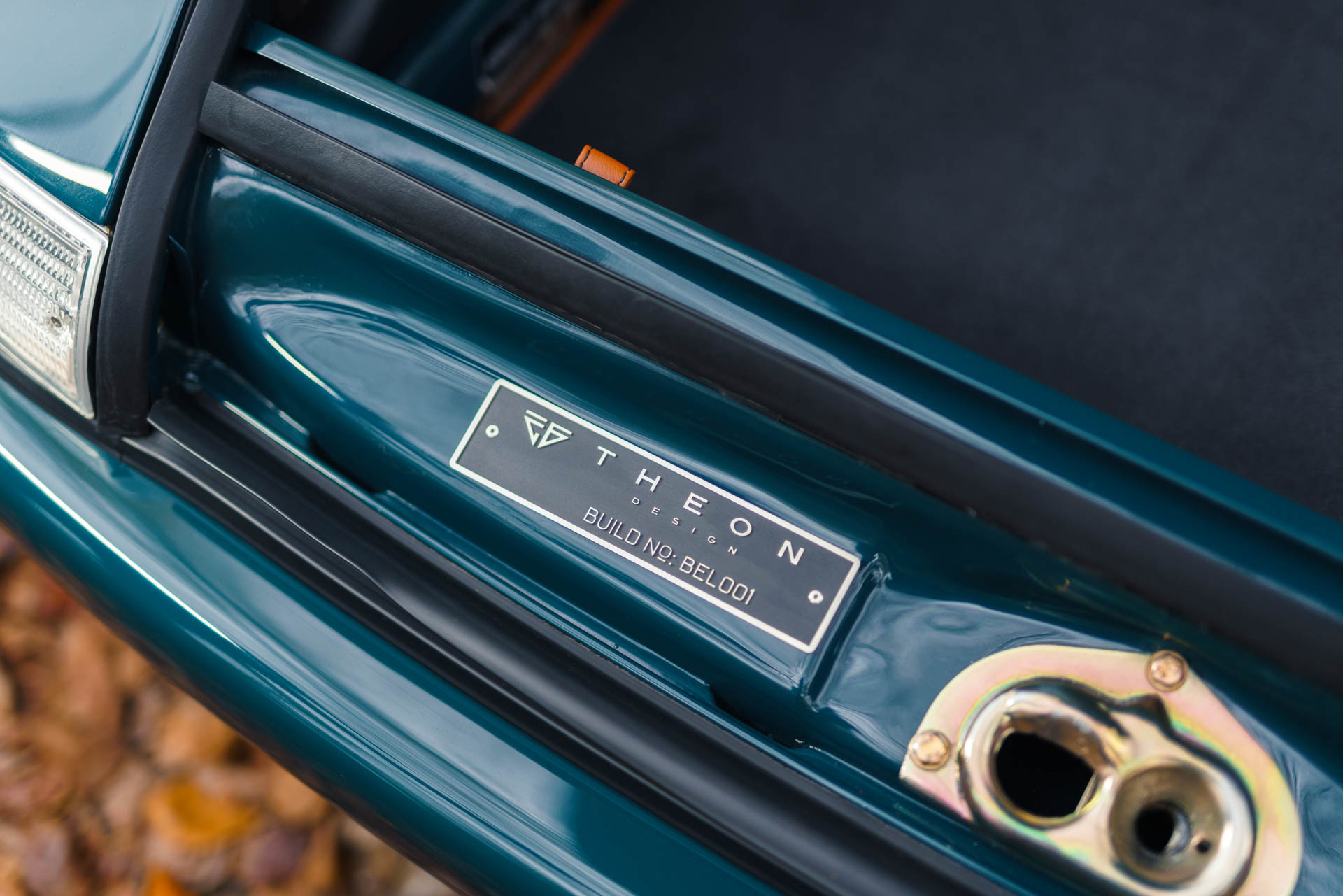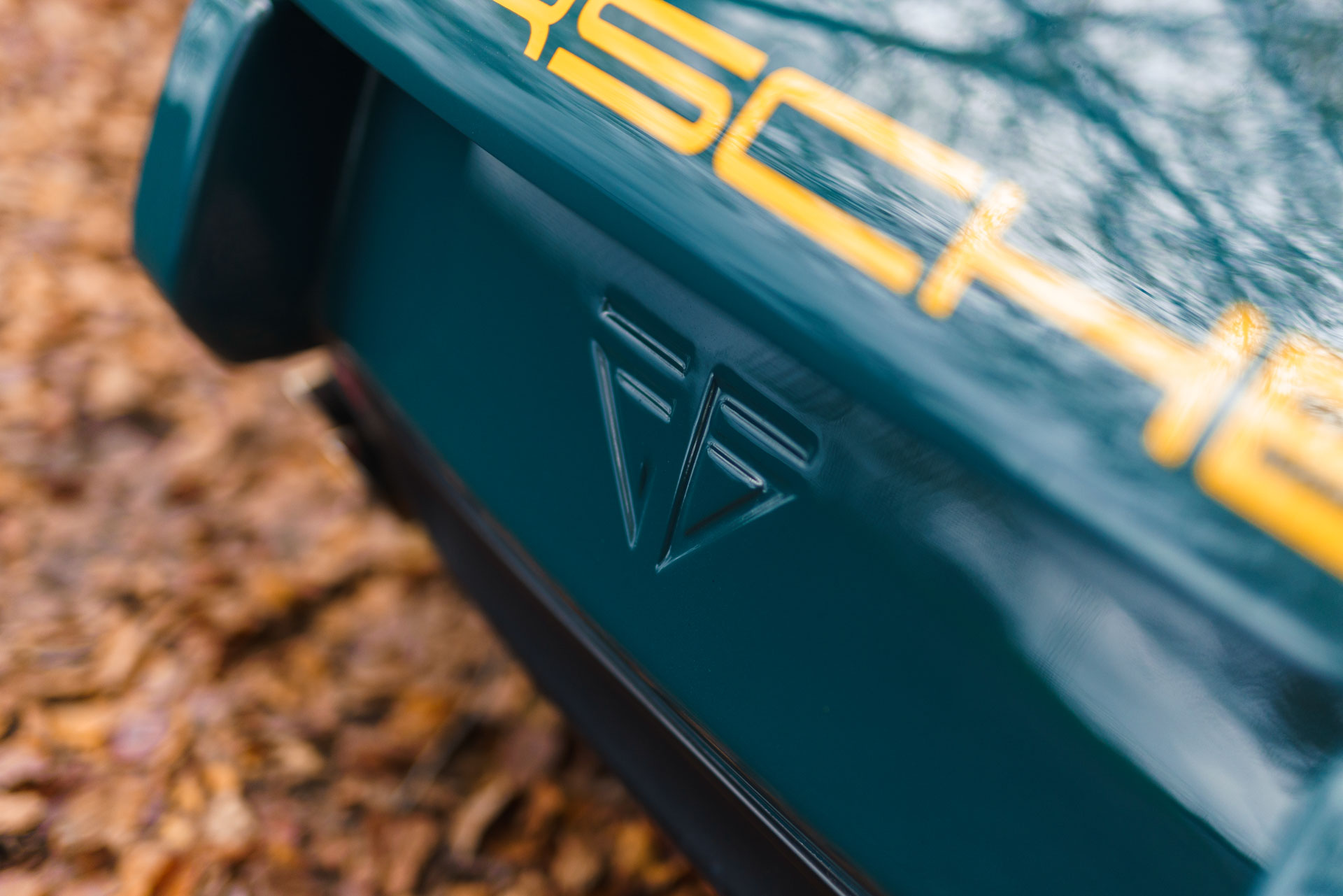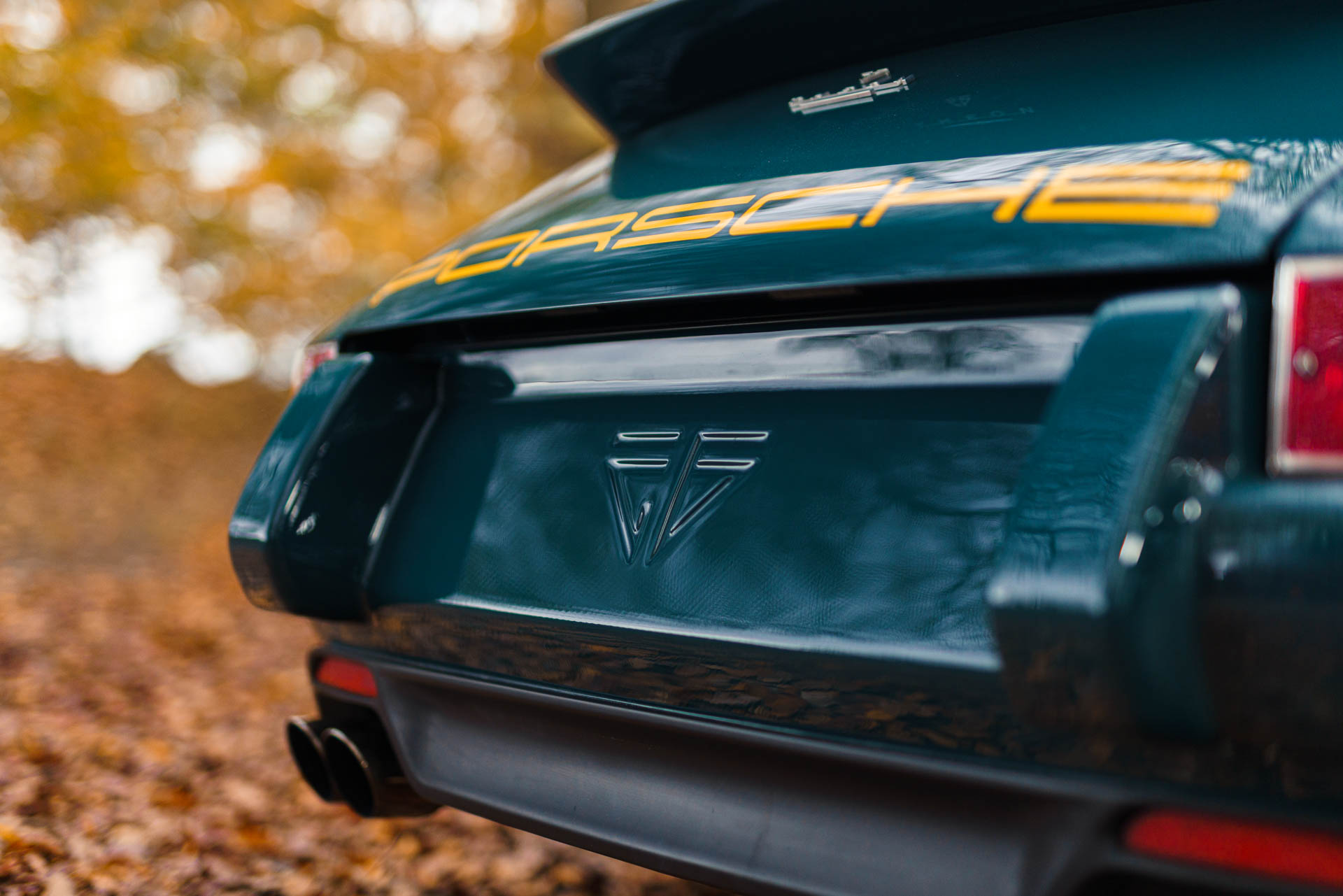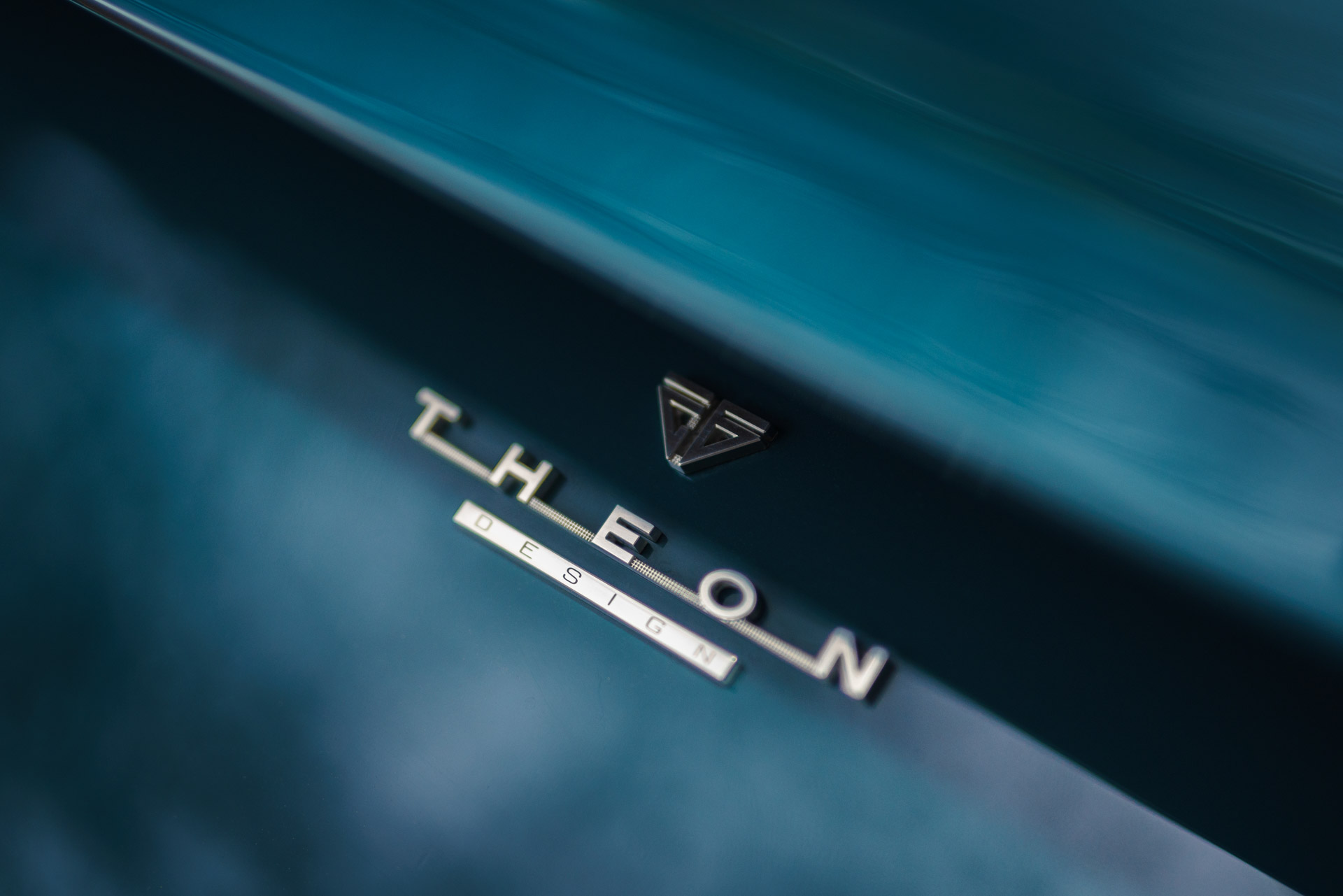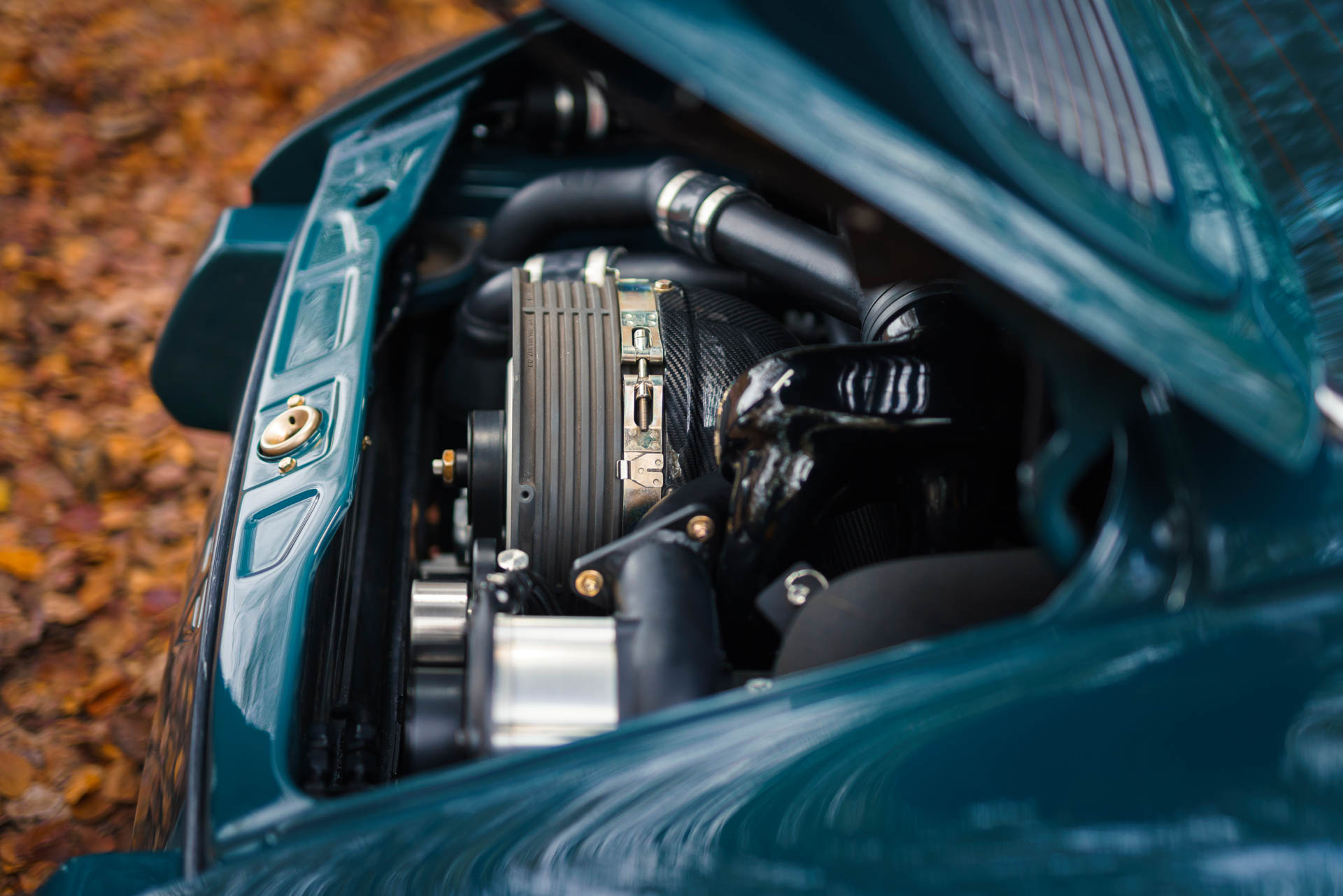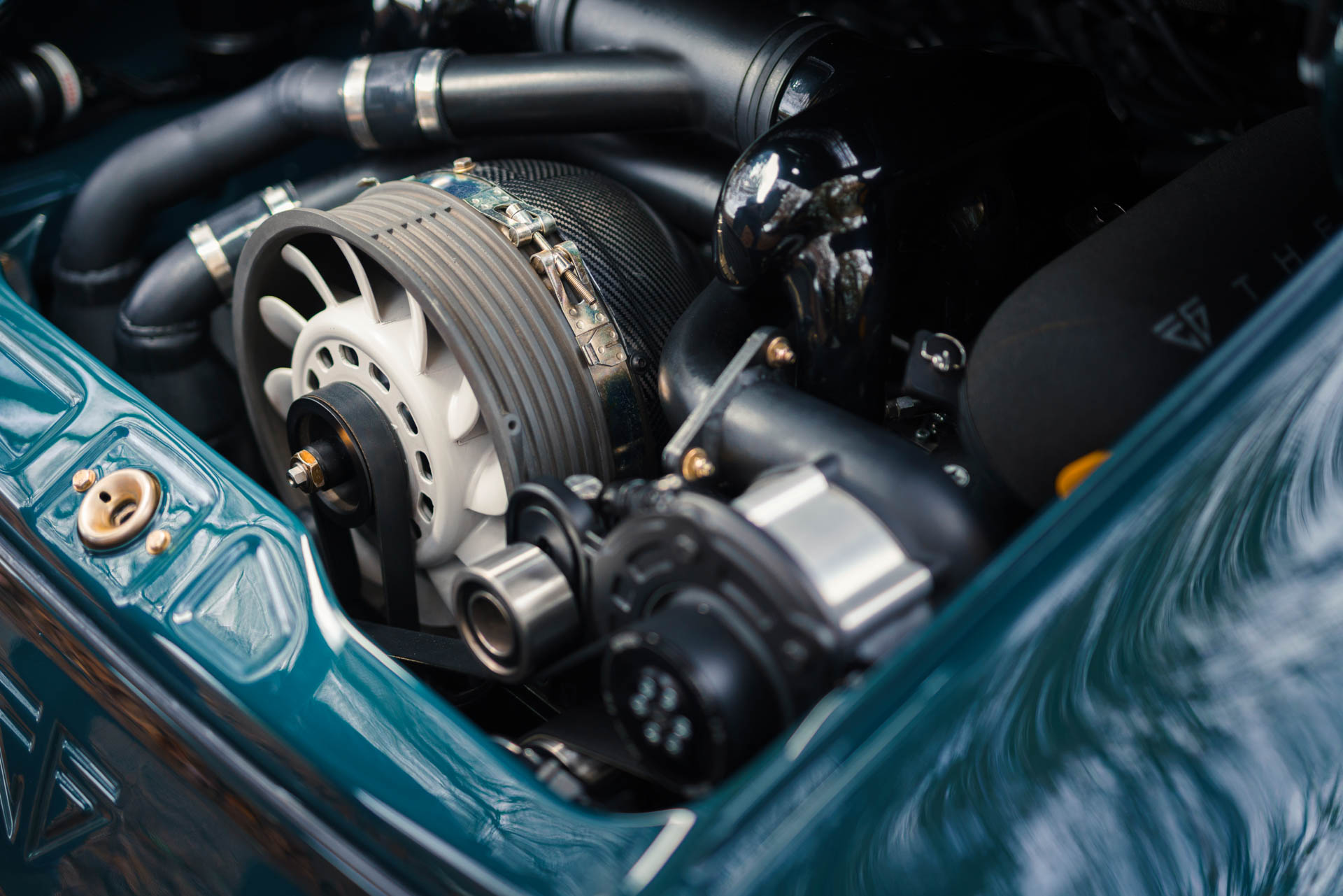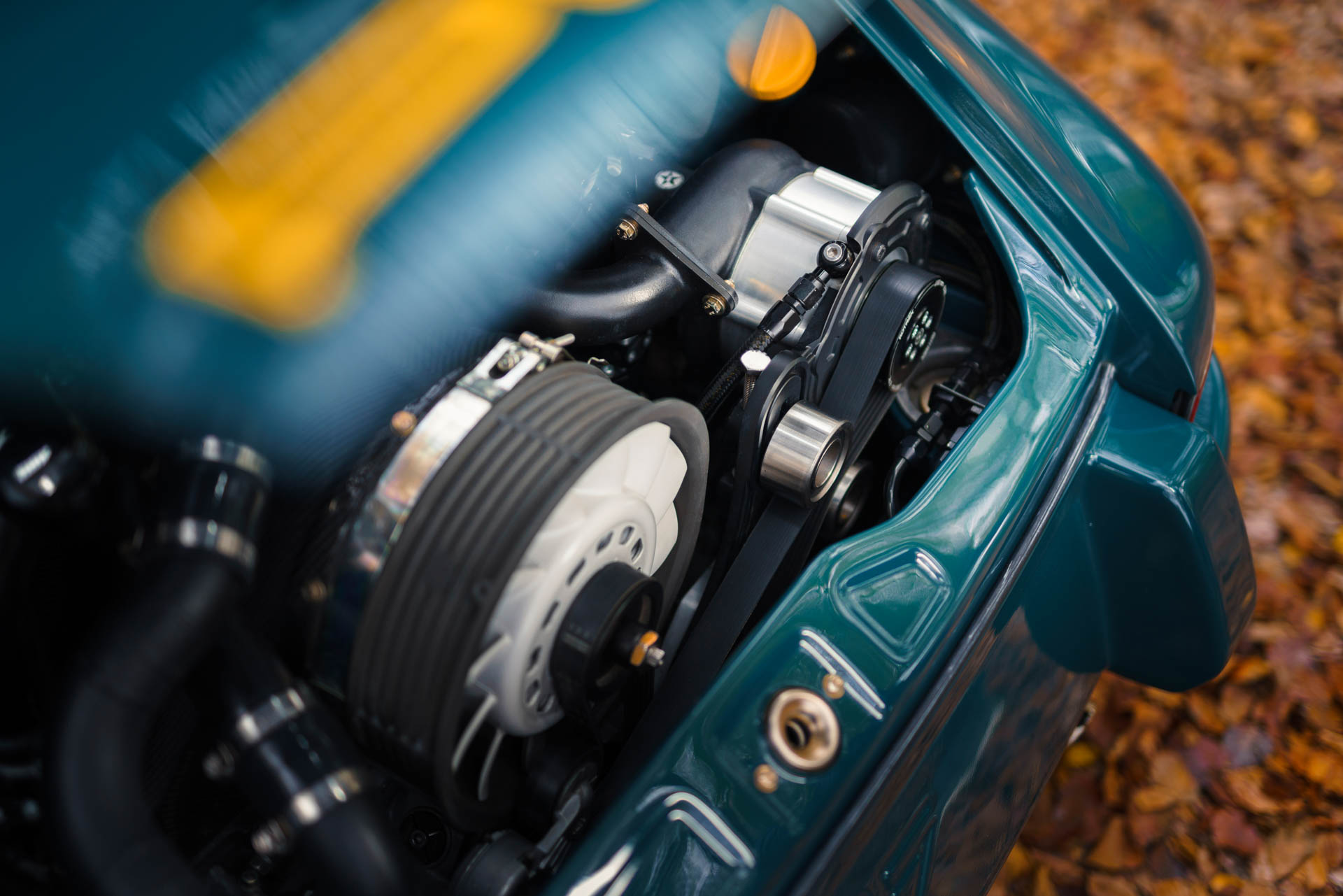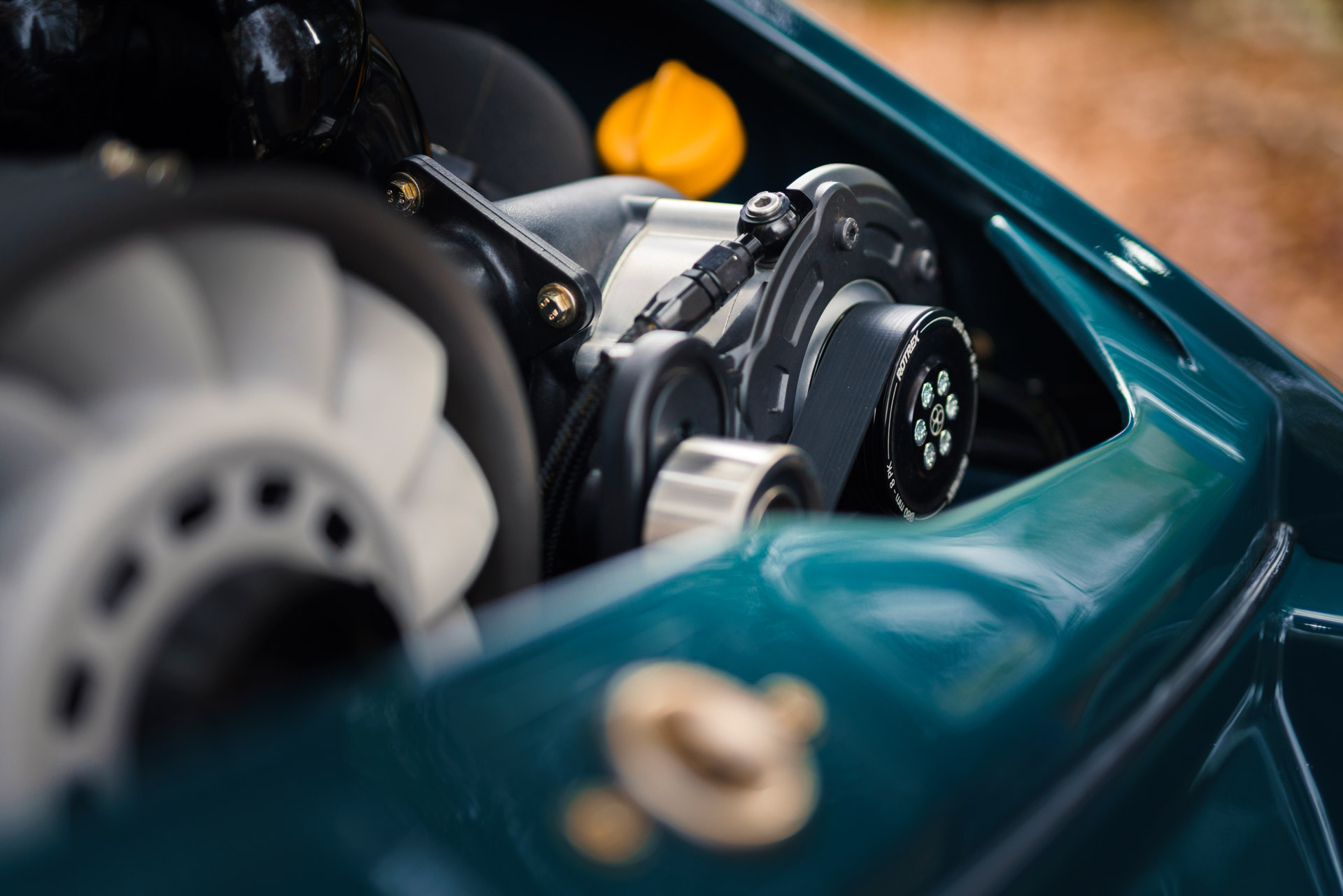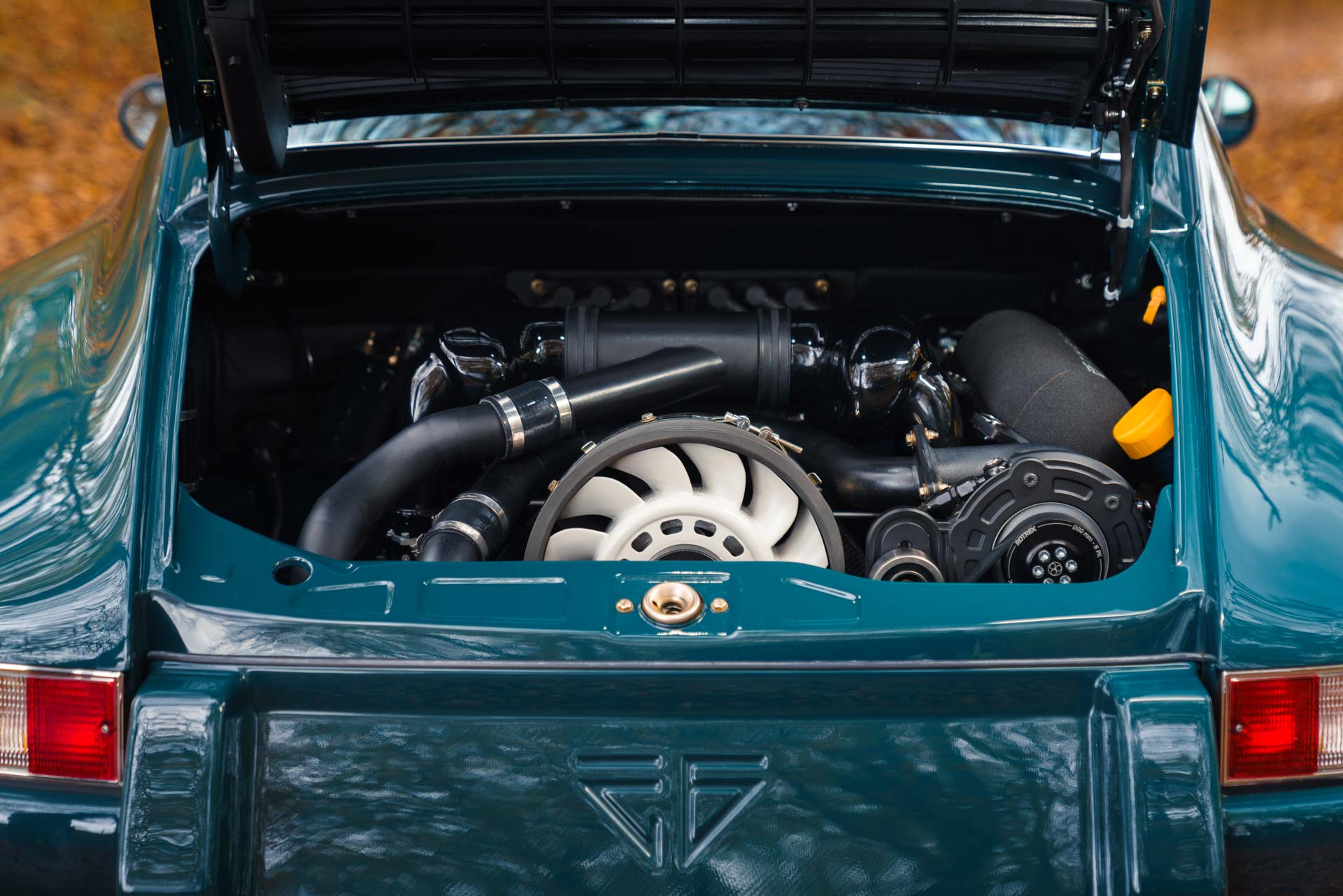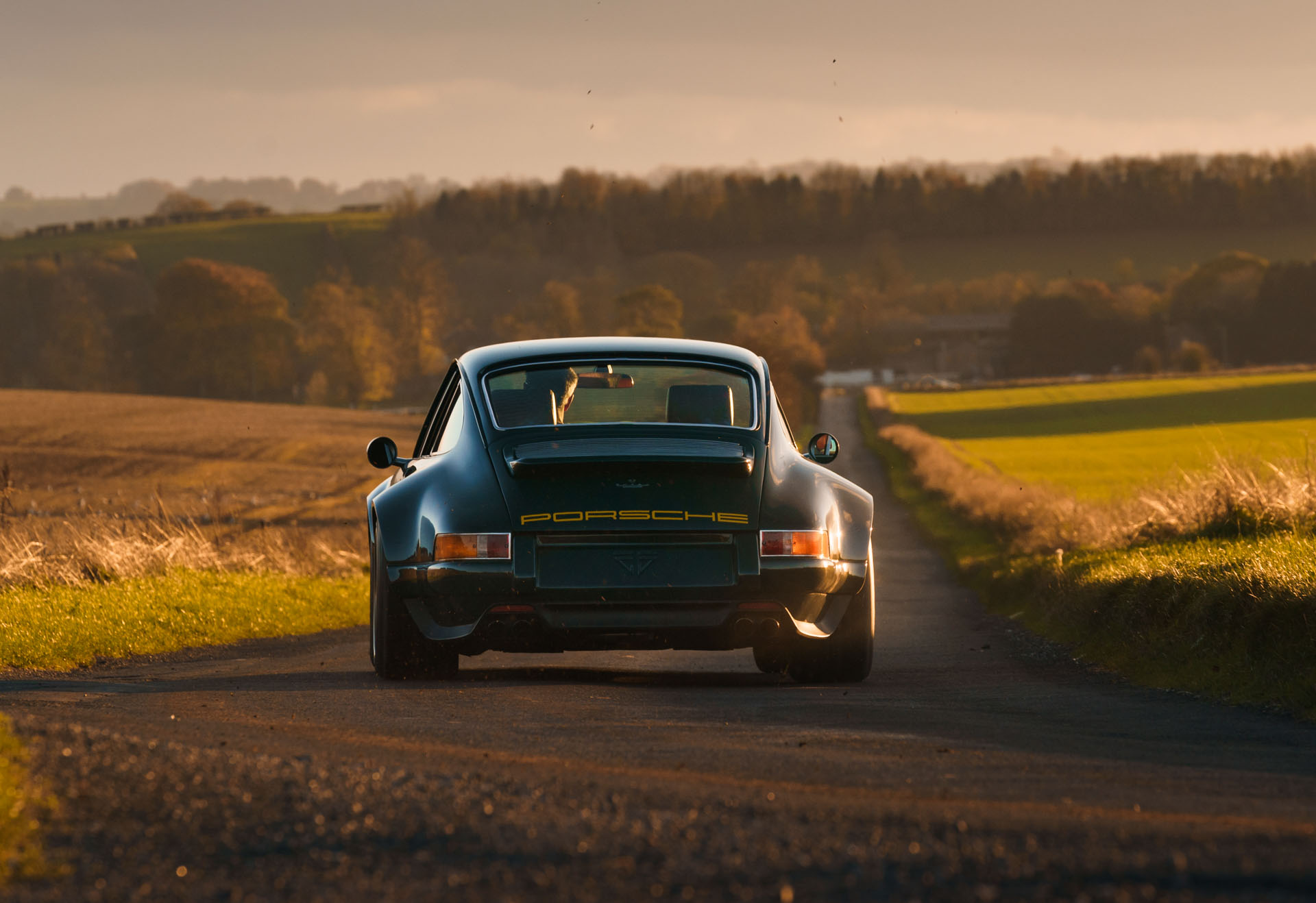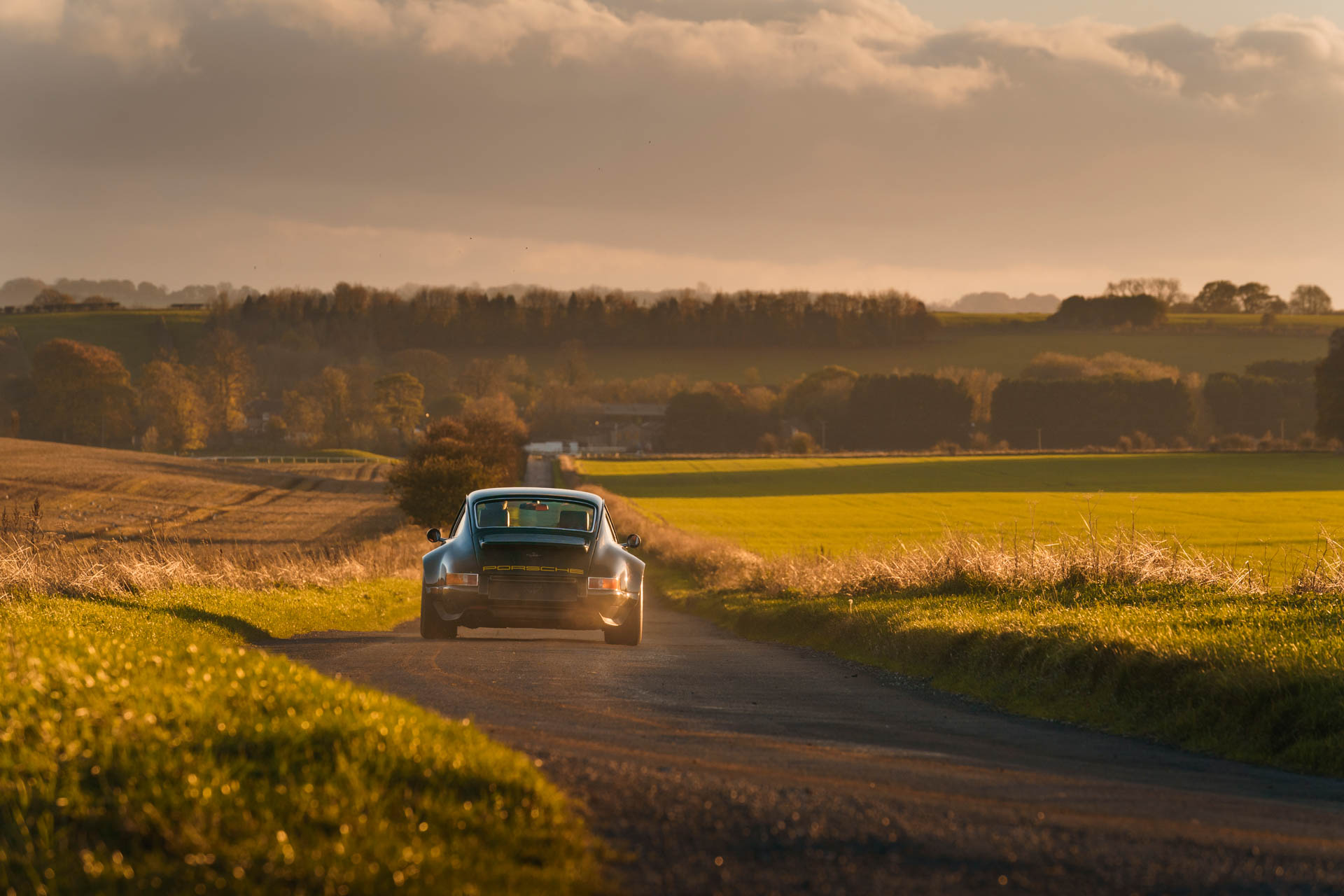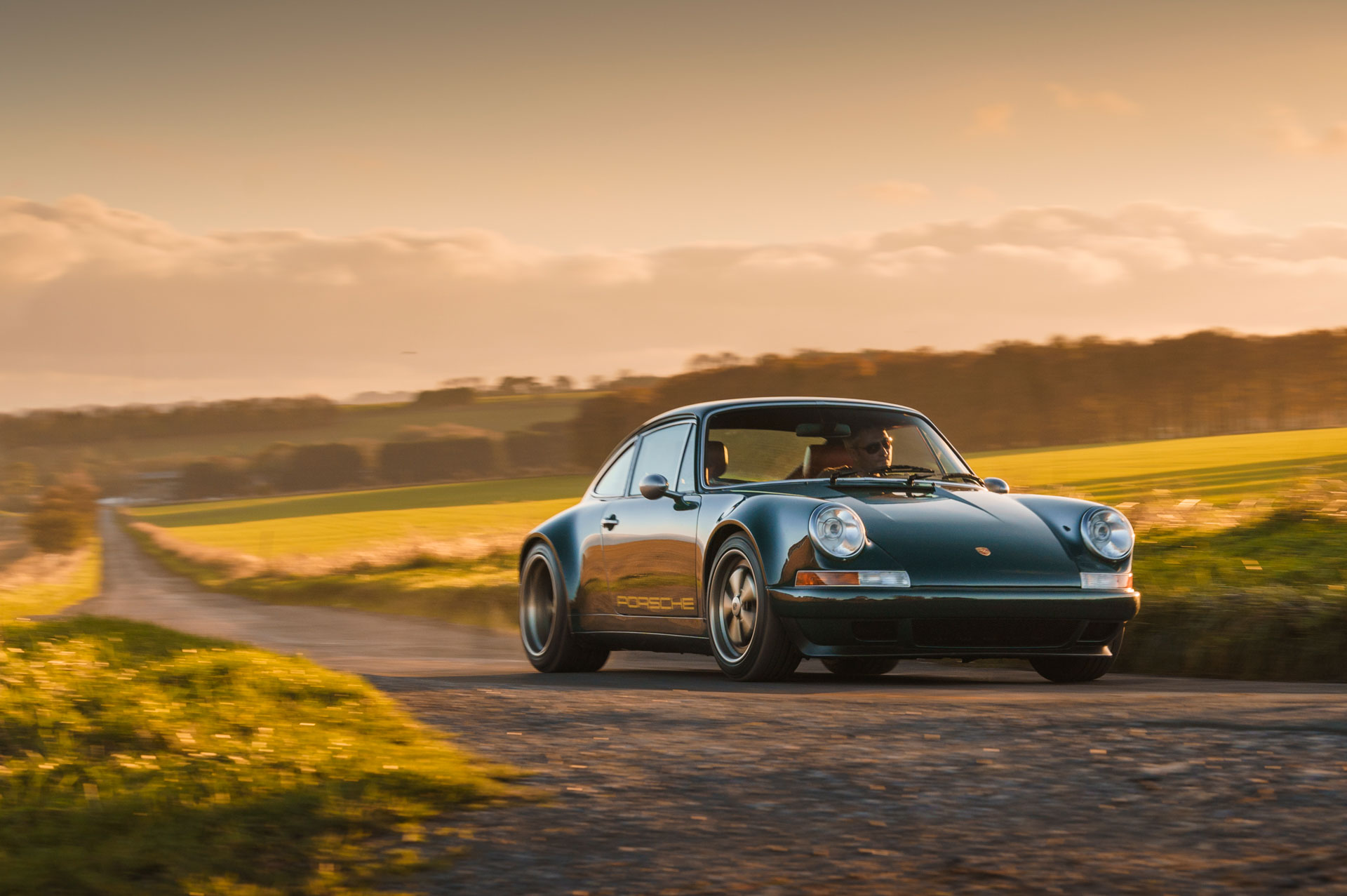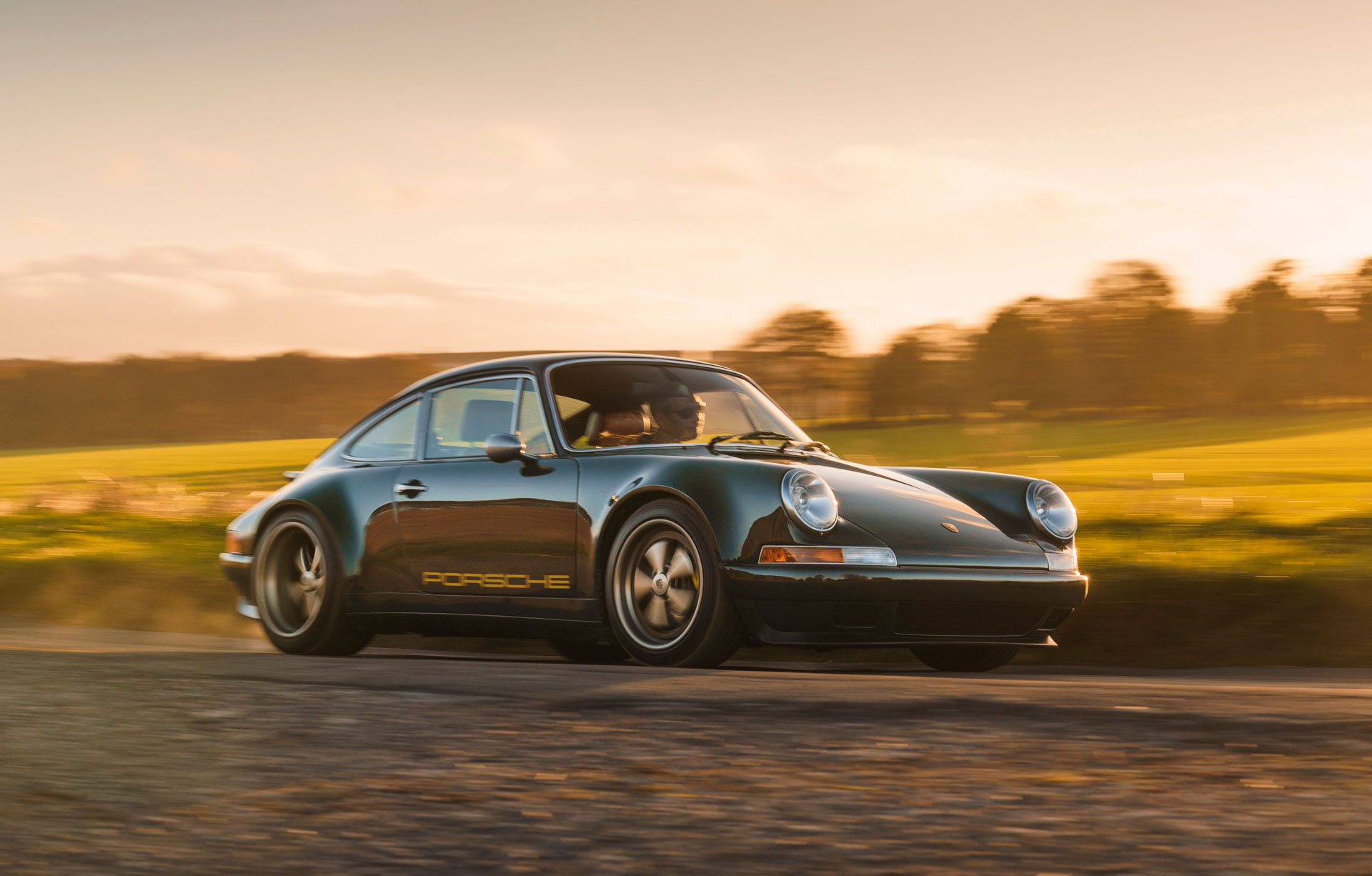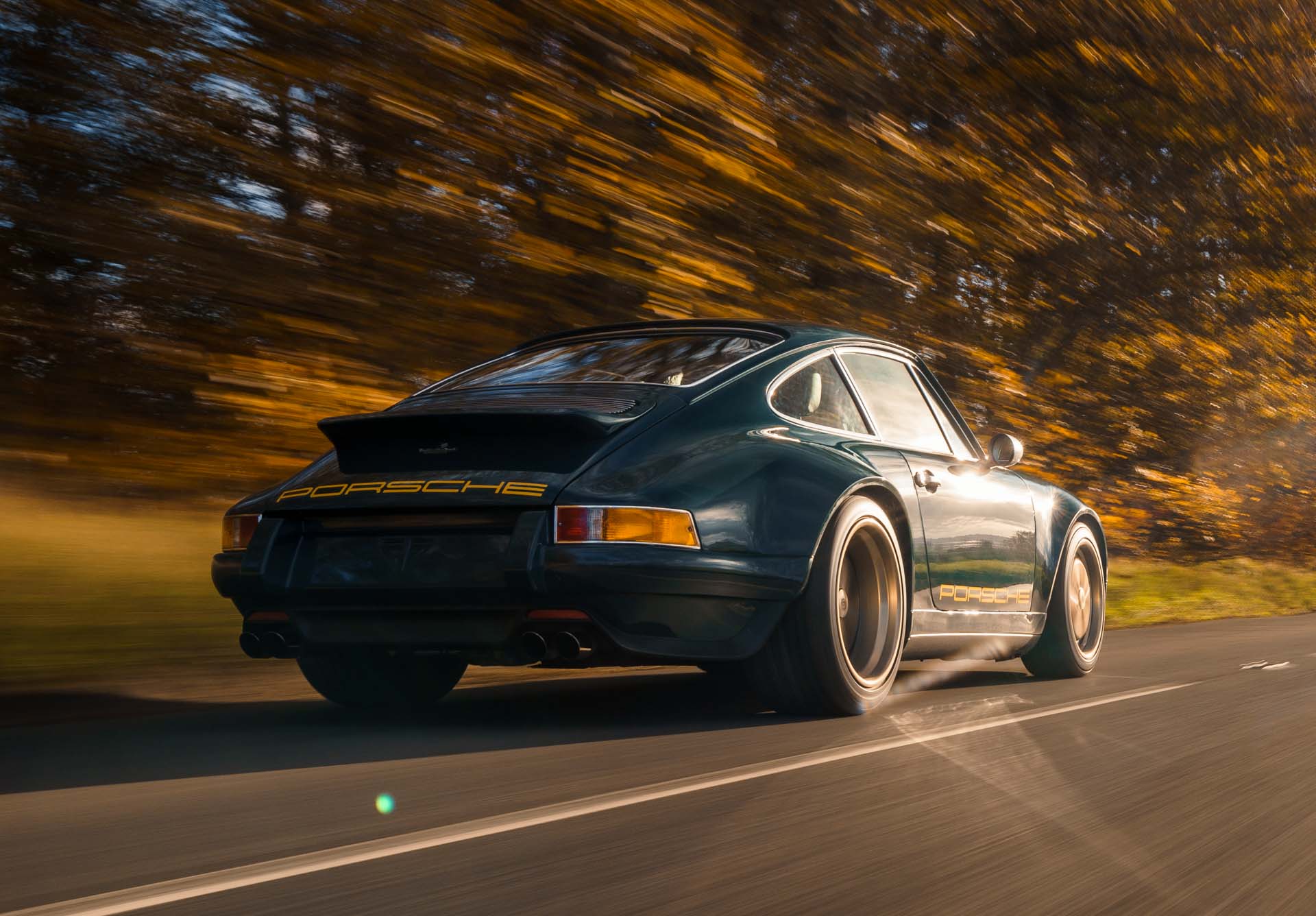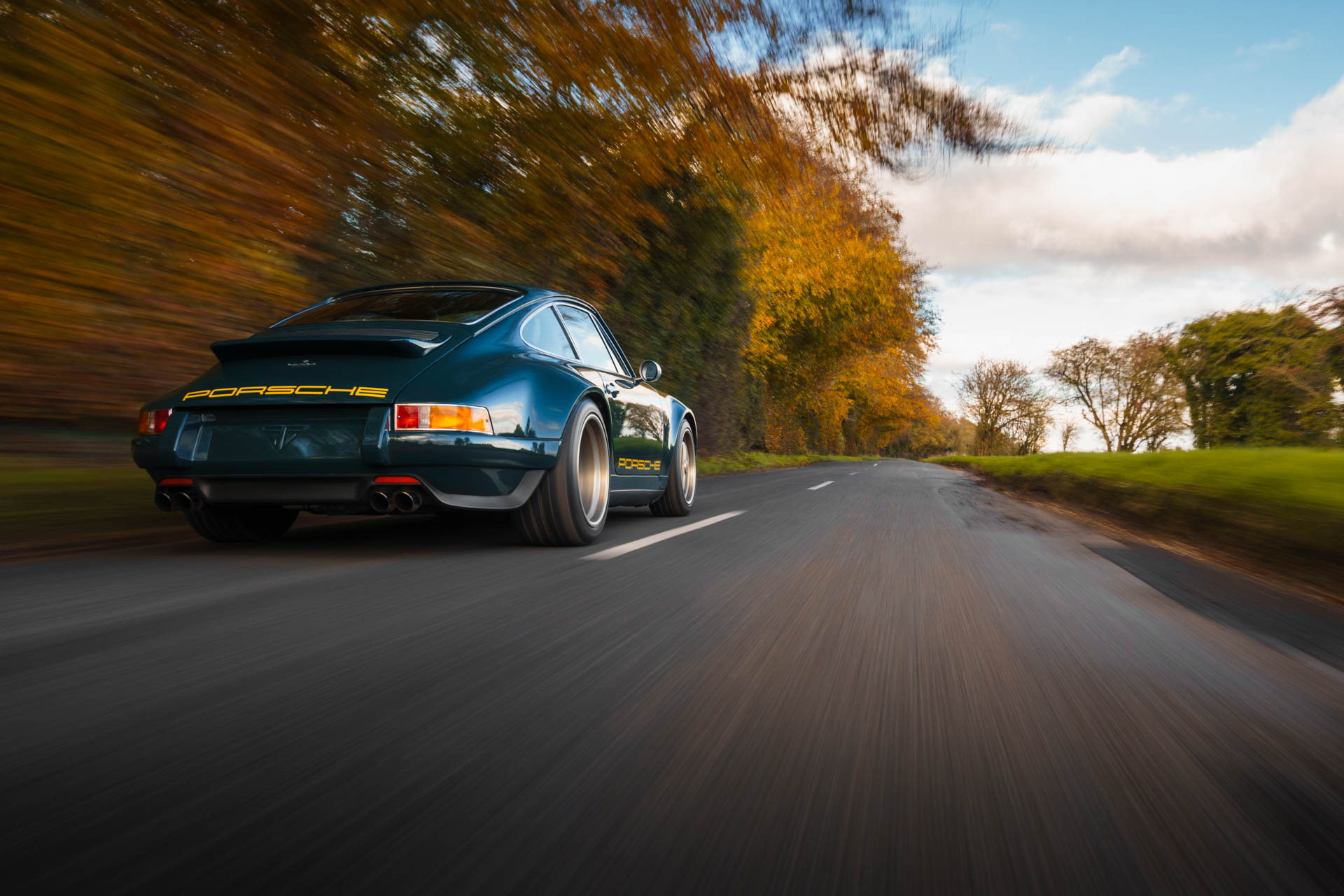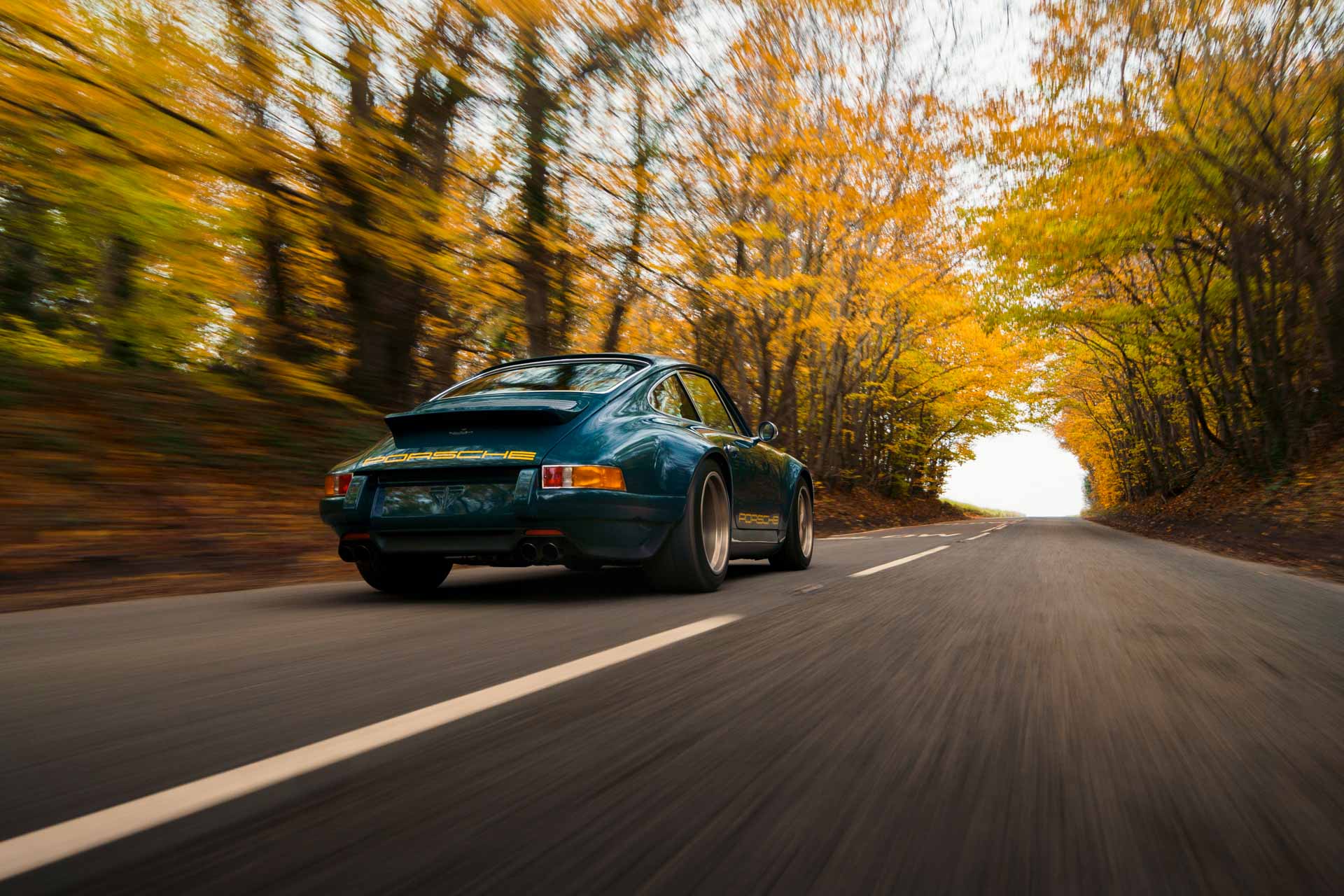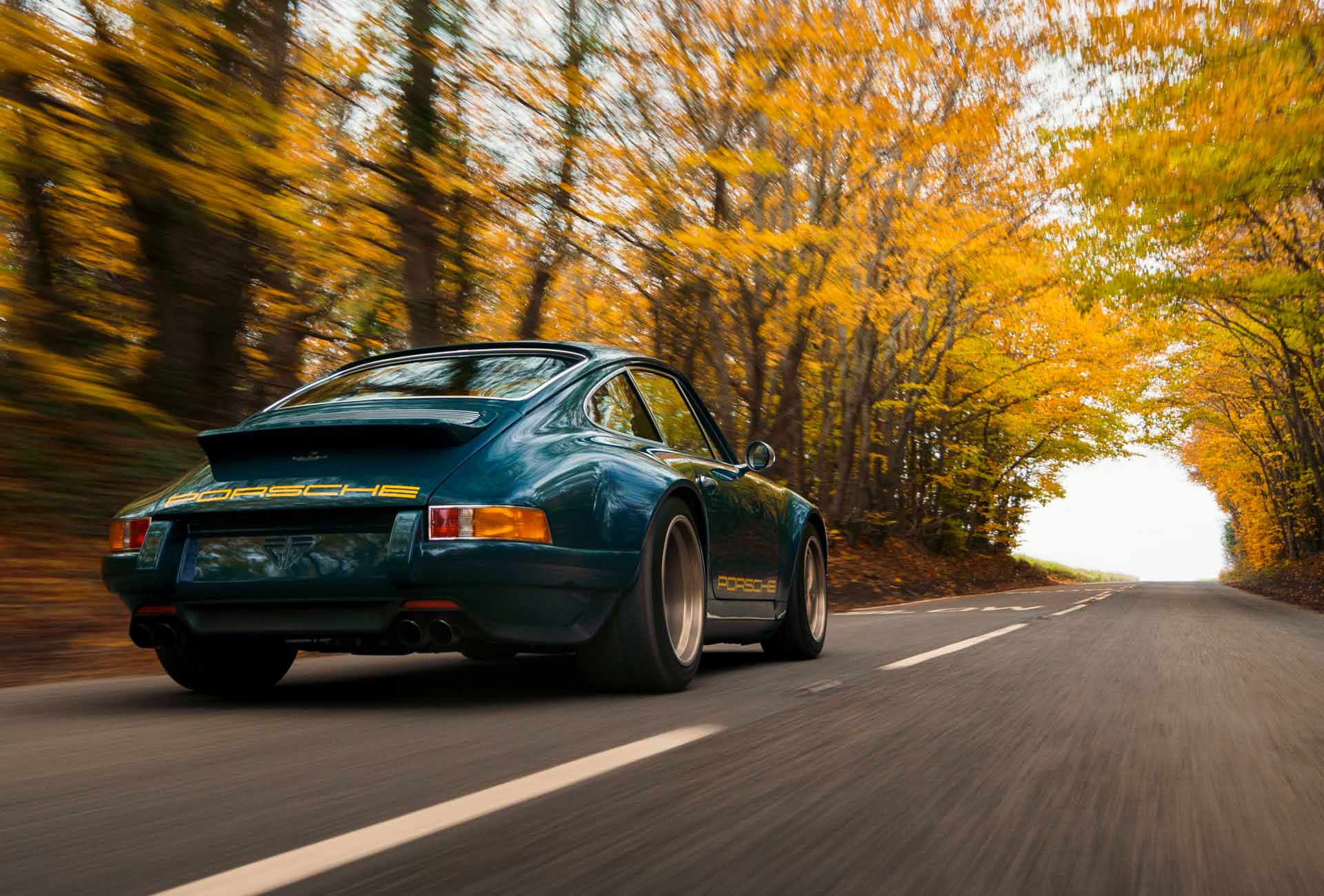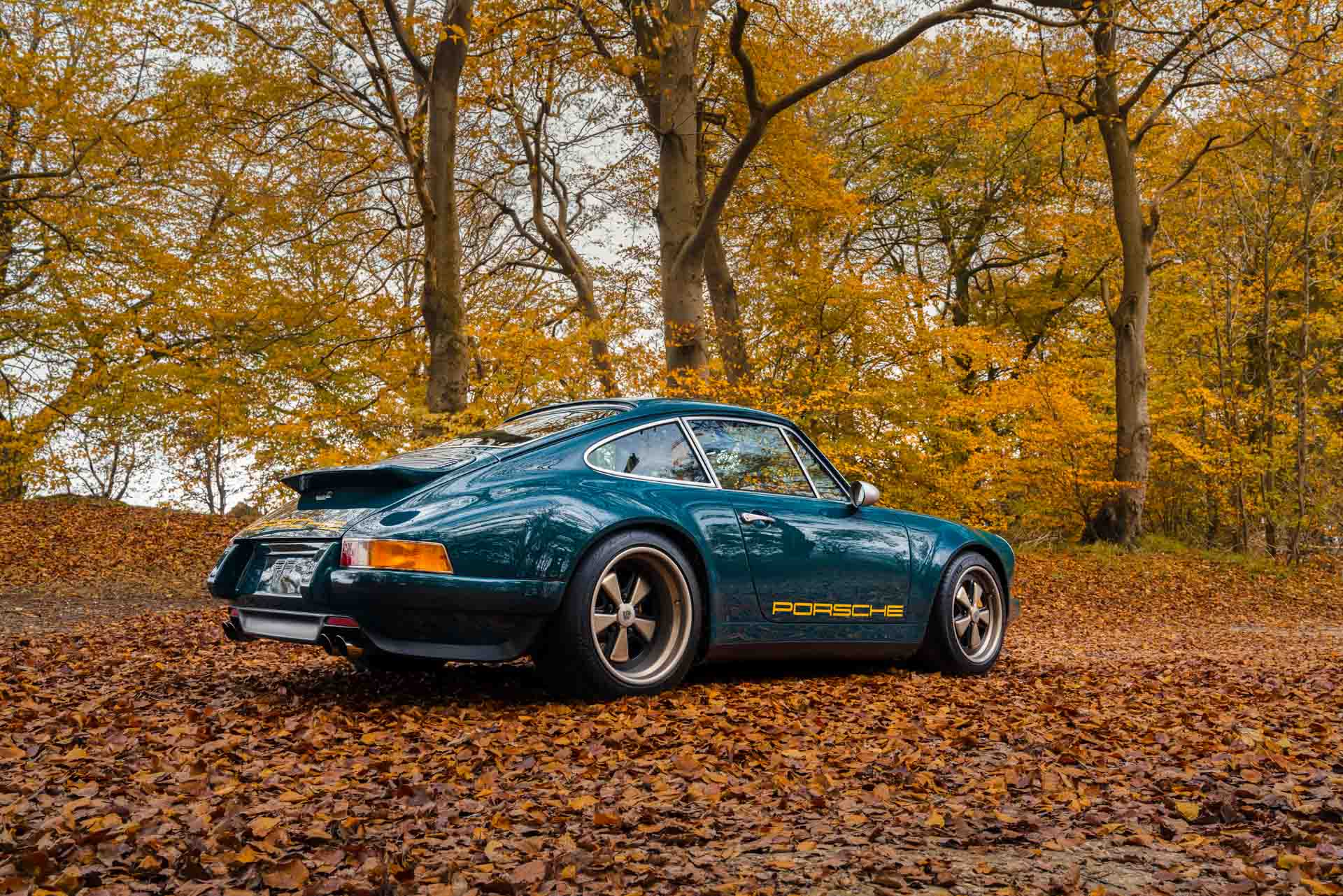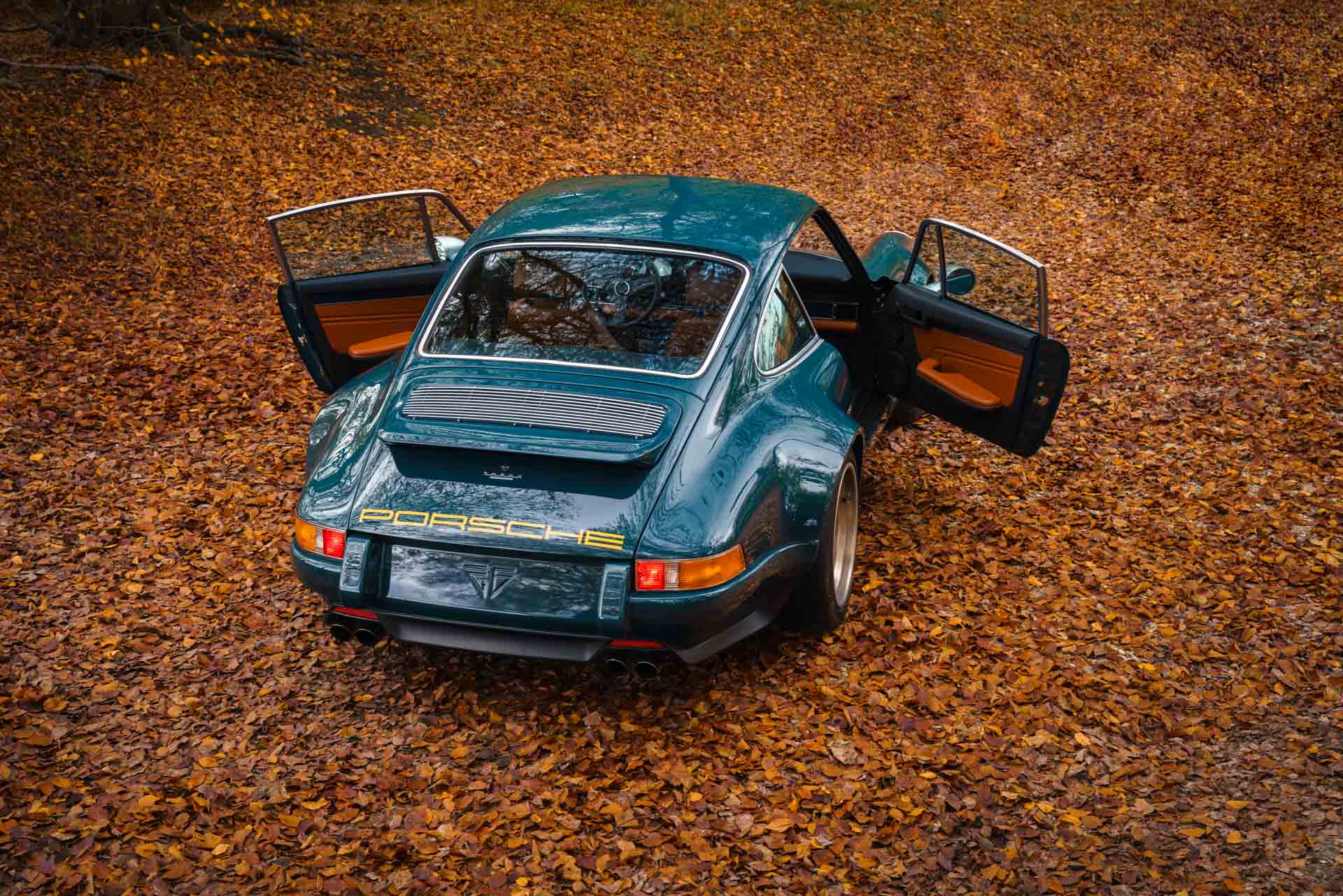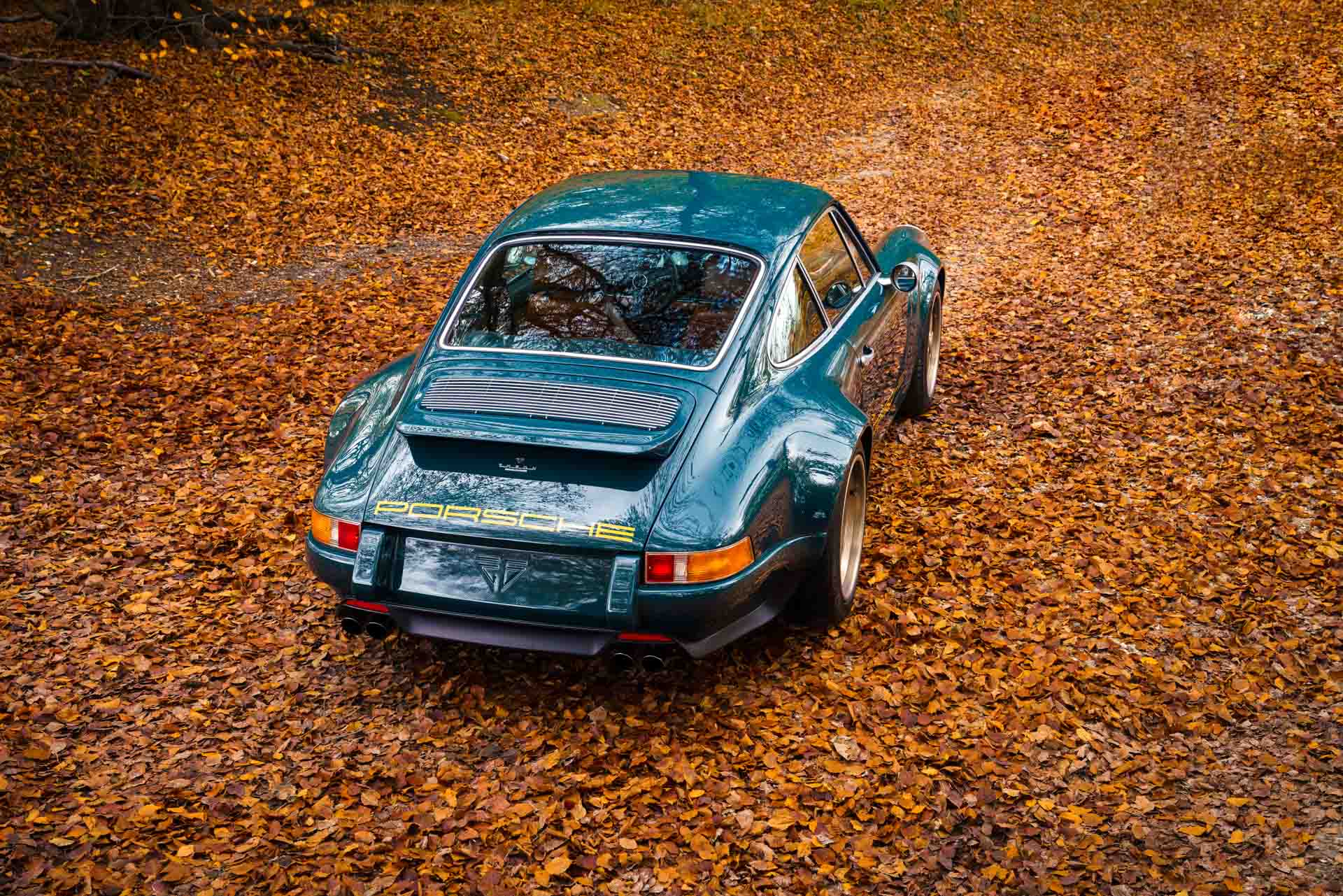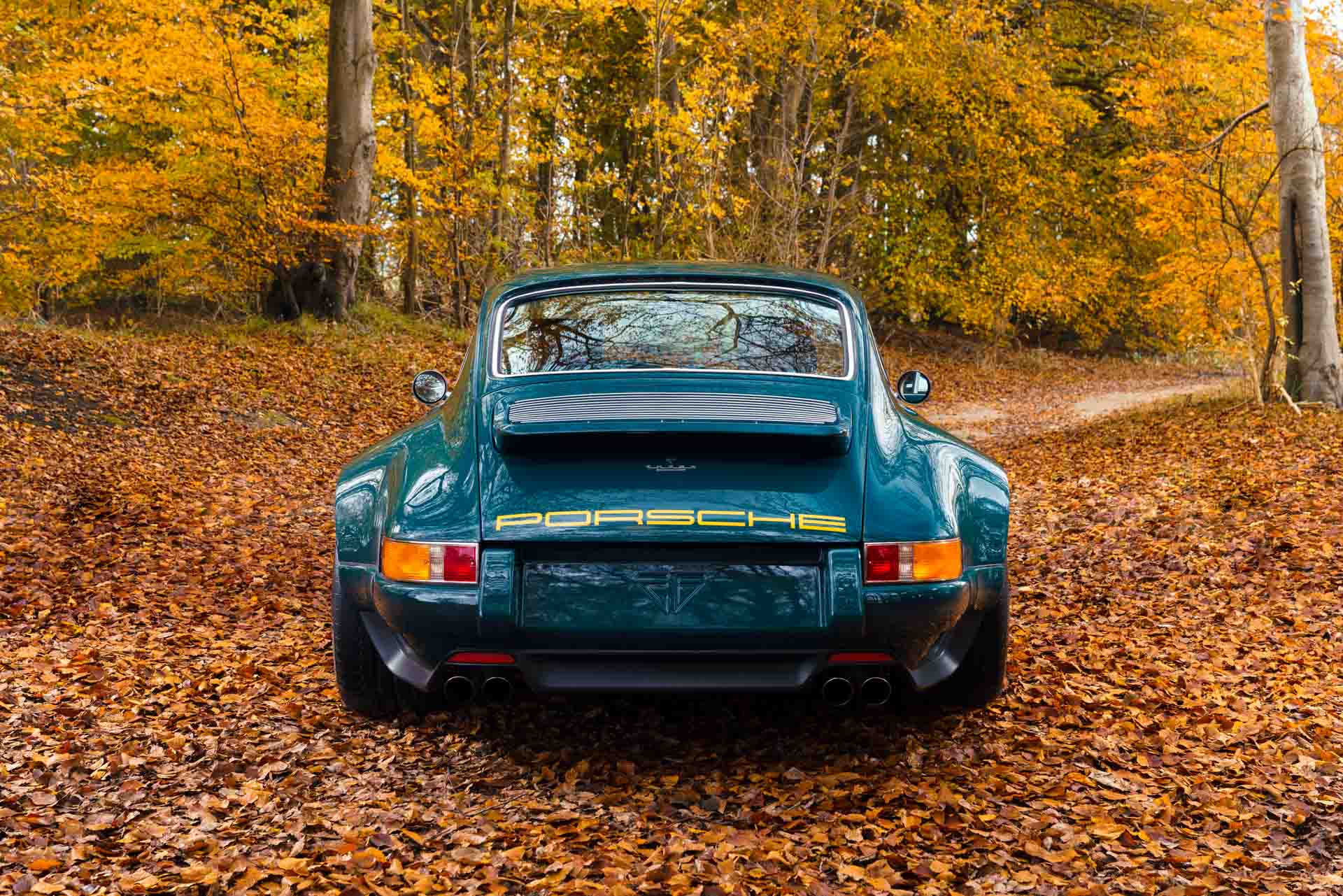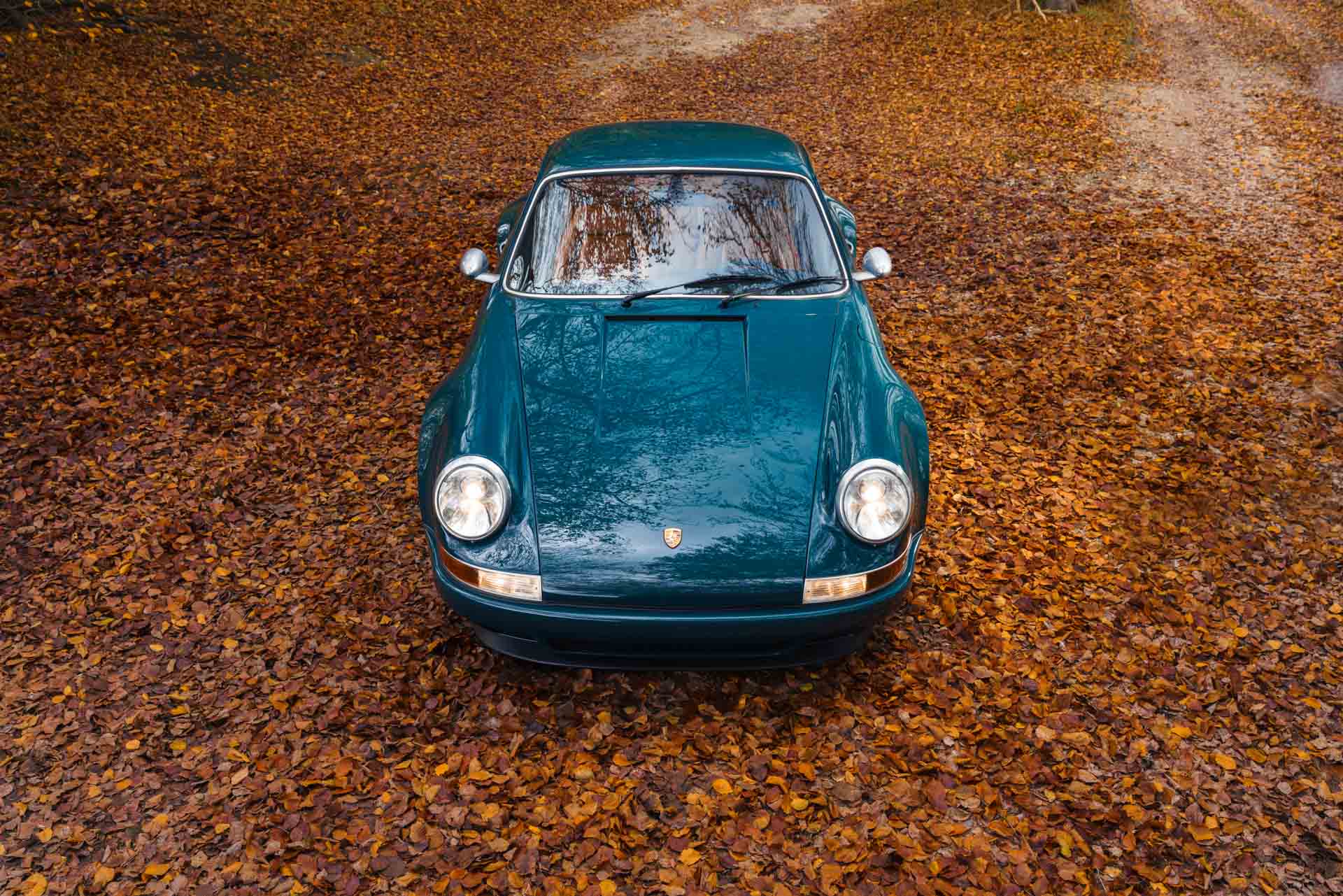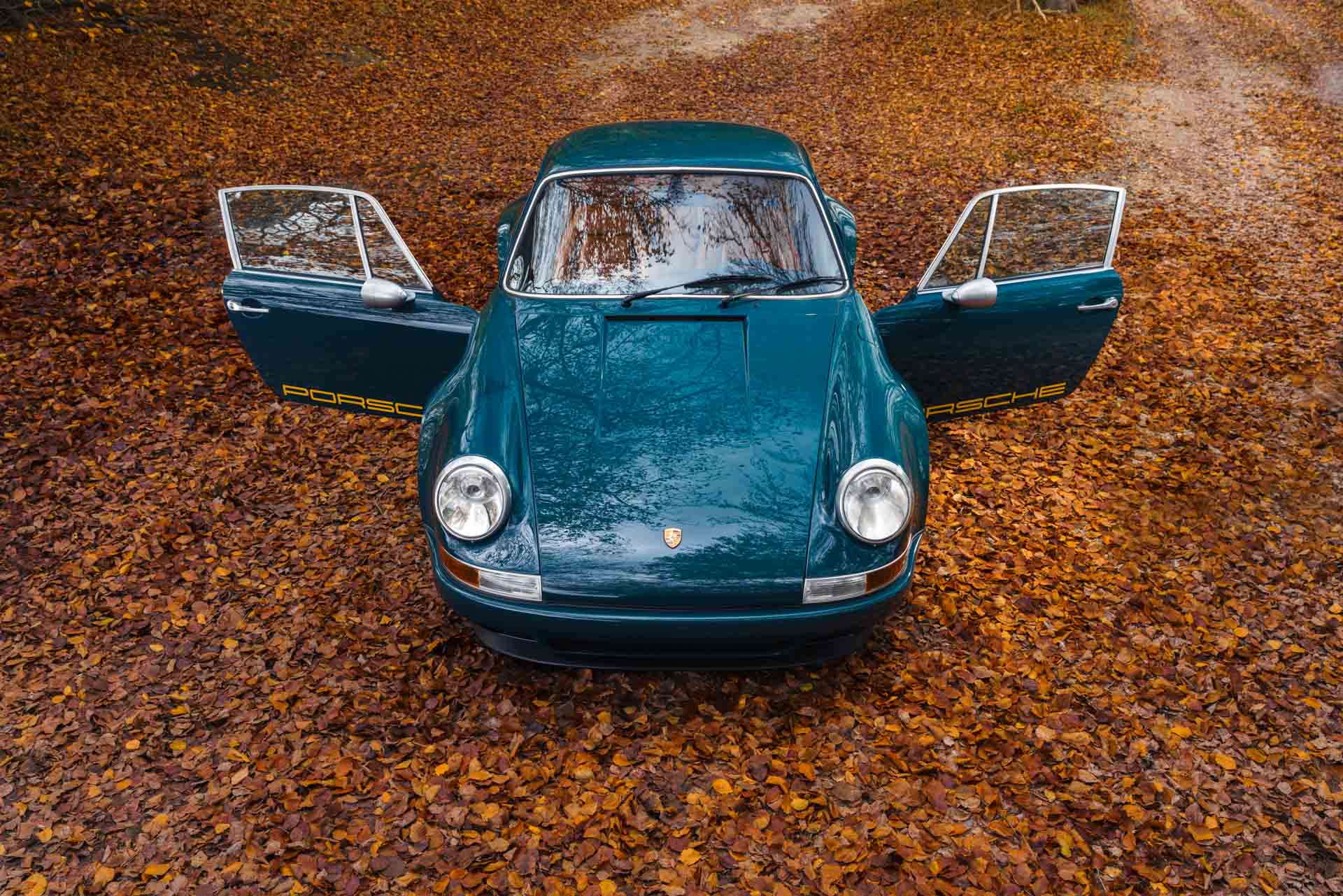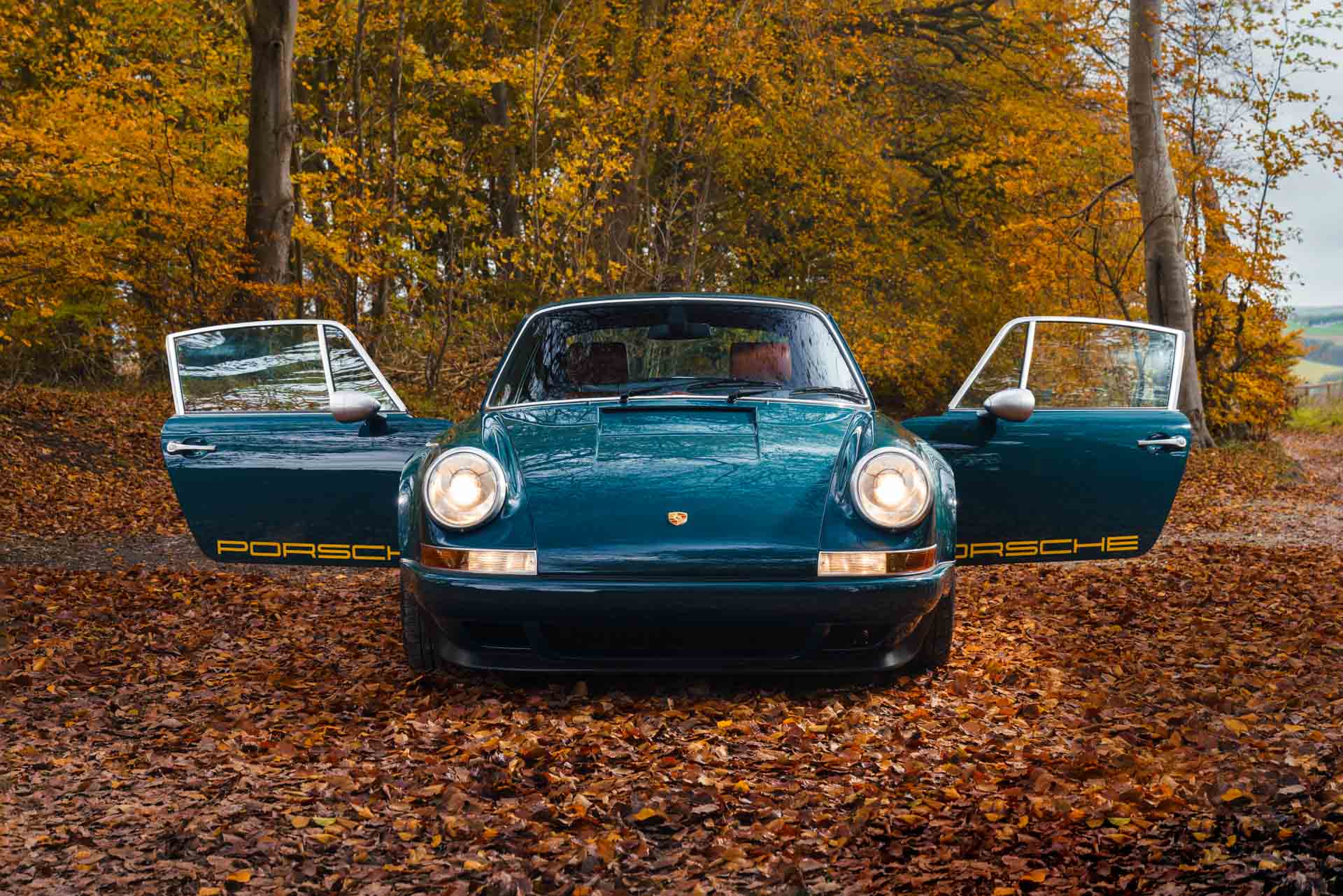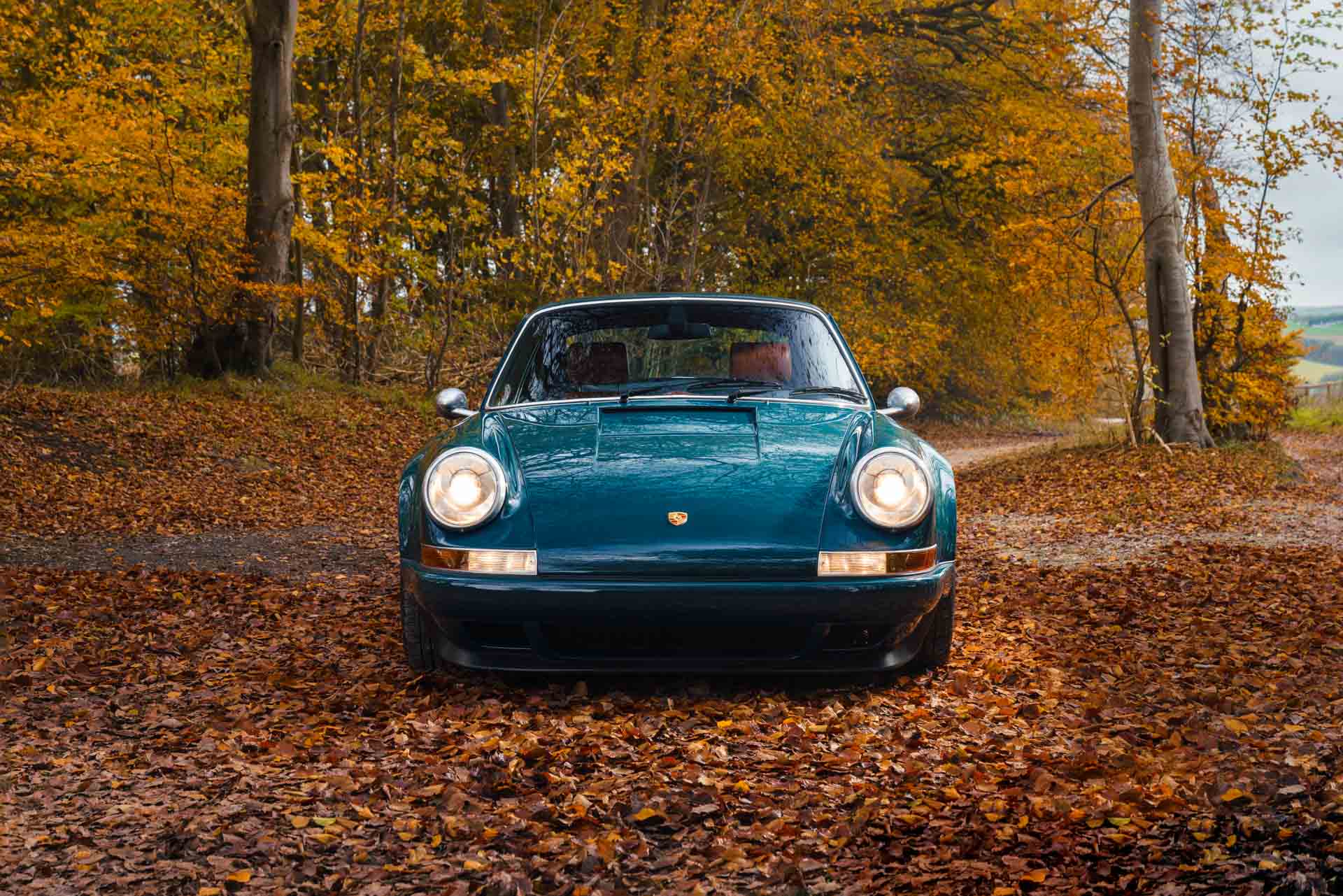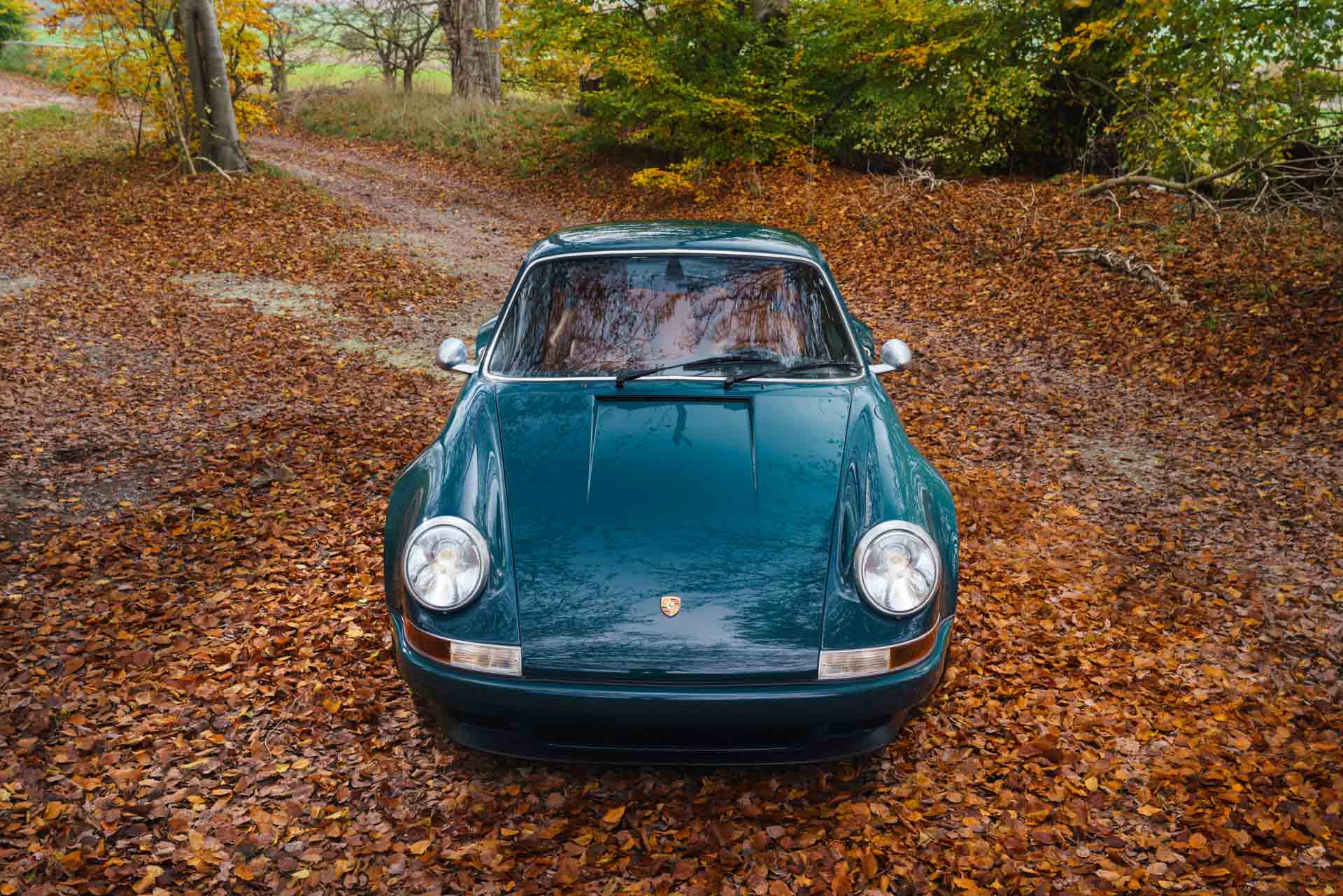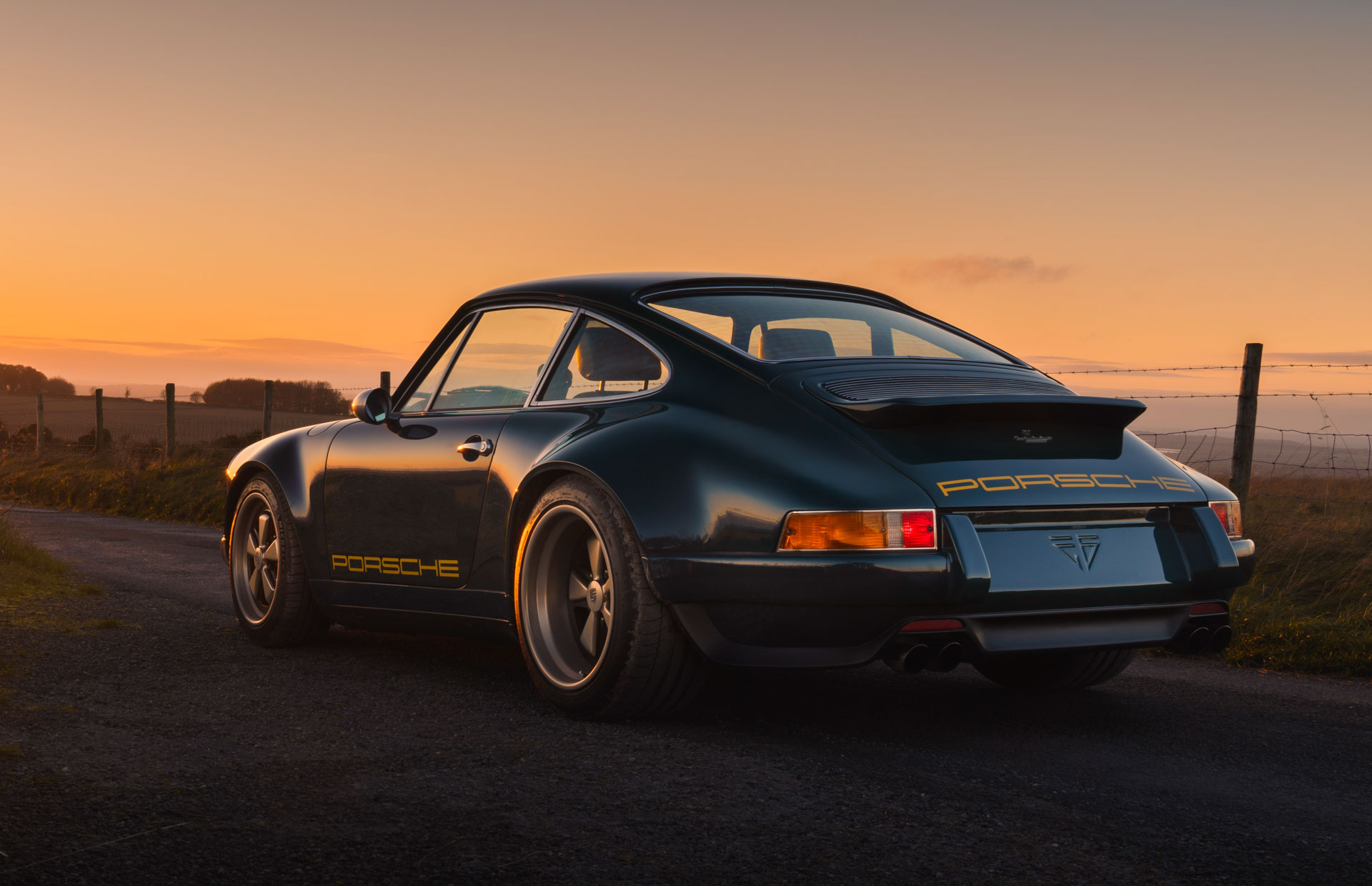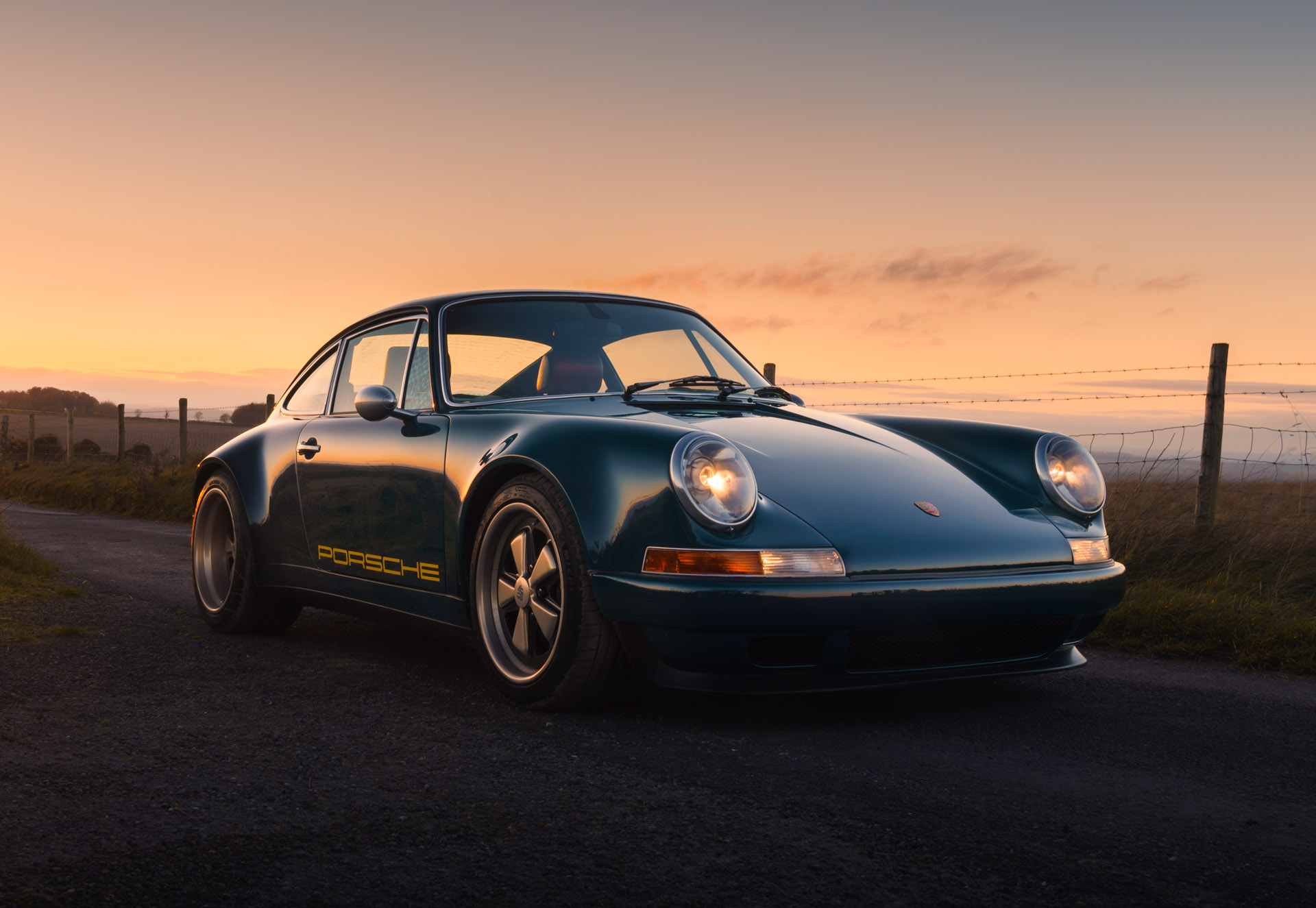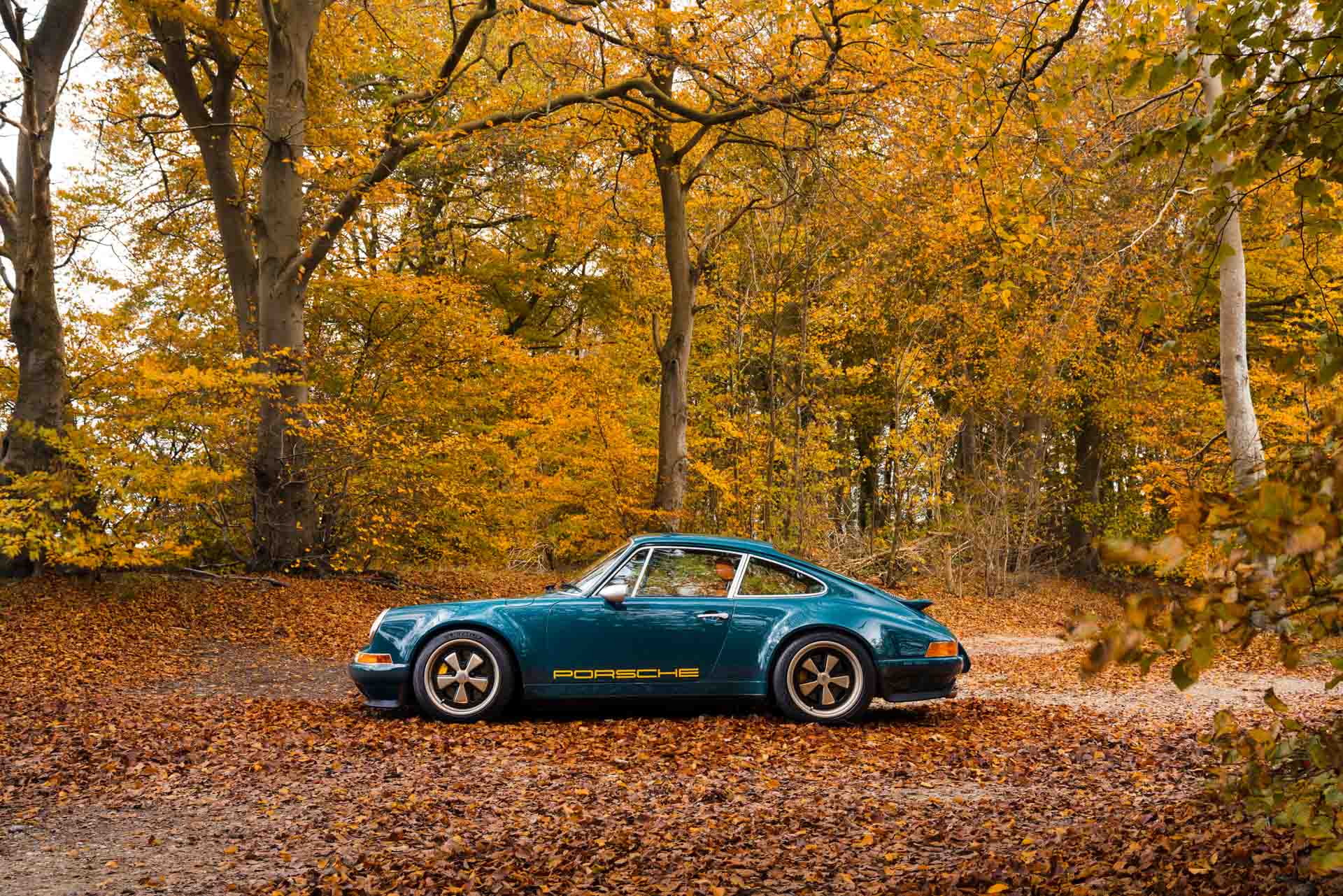Want to really understand Theon Design and what makes its restomod Porsche 911s stand out in a sea of restomod 911s? Open the frunk.
I know, the cargo bay seems a weird place to start when discussing a $600k (£500k) Porsche whose unusual supercharged flat-six is clearly its most obvious talking point. But to see inside the beautifully finished frunk with its embossed leather panels and leather-wrapped RS strut-brace is to see and appreciate just how much effort and care goes into making one of these radically re-made 964-generation 911s.
Because if UK-based Theon takes this much trouble over making the luggage bay look good, and doing a bunch of other stuff that you’ll never even get to see unless you’re the guy who put it together in Theon’s workshop, like welding up holes that Porsche was happy to fill with rubber grommets, just think how much effort has gone in to making the important bits work.
Like the fit and finish of the reshaped fenders that come in either steel (as on this car) or carbon, depending on taste and funds, and the carbon bumpers and spoiler fitted to every example that help cut the weight to 1,265 kg (2,789 lbs) in its lightest configuration, down from the 1,350 kg (2,976 lbs) of the stock 964 Carrera 2 donor. Or the setup of the suspension, whose five-mode dampers give the driver the kind of flexibility to tweak the ride / handling balance that 911s didn’t get until 25 years after the 964 was first introduced in 1989.
Related: Theon Design’s Latest Porsche 964 Restomod Has A 3.6-Liter Supercharged Flat-Six
Or the supercharged engine that probably hooked you into this article. Turbocharging has been part of the 911 story for almost 50 years, but the Belgian buyer who commissioned this car, codenamed BEL001, specifically wanted a supercharger. An unusual request, maybe, but one that fitted with his overall vision of a 911 that would be something with more of a GT vibe than the high-revving, naturally aspirated Porsches Theon had built for previous clients.
More muscle than a 964 Turbo S
So in addition to independent throttle bodies, flowed and ported heads, tough Carillo rods, custom cams and motorsport-grade pistons, the fully rebuilt motor now features a compact Rotrex supercharger where the air conditioning unit used to live. Twin charge coolers and water methanol injection to boost fuel octane were chosen over intercoolers to avoid cutting air intakes into the body, and the finished motor sends its 400 hp (406 PS) and 367 lb-ft (498 Nm) to the rear wheels through the stock five-speed manual transmission.
Adam Hawley, the visionary behind Theon and former designer for big names like BMW, Jaguar and Lexus, tells me a six-speed transmission is possible and the shorter, closer ratios amplify the kick in the back. But with such a torquey engine, it’s kind of cool to have only five ratios and to let the car stretch out and wind its way through the rev range in the taller cogs. And since this supercharged motor has as much power as Theon’s top-spec 4.0 naturally aspirated engine (milder 3.6 and 3.8s can also be ordered) but an extra 52 lb-ft (71 Nm) of torque, much of it available from way down the rev range, it certainly got the muscle to let you do that.
There’s no obvious whine or step-change in performance to signpost the artificial aspiration when you’re storming up through second and third gear, or cracking the right pedal wide open in fourth to let all that torque hurl the car forward. It just feels like a really lusty unblown motor, effortlessly rapid with bags of power everywhere and a great snarl to the exhaust that never gets too intrusive, even with the active exhaust in its shoutiest mode. This is a GT, not a trackday weapon remember. But back out of the throttle though, and the supercharger makes it presence felt with some vocal chirrups that the owner loves, but I’d happily lose. I reckon they’d get annoying once the novelty had worn off, but you might disagree.
Built for real roads
Chassis-wise though, I wouldn’t change a thing. Super-stiff cars configured for track use rarely work well on the road, at least not the UK’s nasty roads that are full of lumps and holes and have a pronounced crown in the center. But because BEL001 was conceived for the road, it works brilliantly, and that’s down to the owner’s honesty about how, where and when he would use it, and Theon’s interpretation of that remit.
This thing rides better than many modern cars and crossovers, delivers the kind of satisfying steering feel you don’t get on most of today’s supercars, and even with the optional TracTive dampers in a soft configuration, body movements are still kept in check. It’s one of those cars you just click with before you’ve even got out of first gear and discovered how sweet the shift is.
Related: Theon Design’s Latest Porsche 911 Has Carbon Body And Screaming 4.0-Liter Flat-Six
Keeping the chassis supple means the tires spend more time in contact with lumpy tarmac, and that means you can bury the throttle even in soaking wet conditions knowing you’re not going to suddenly end up staring out of the side window to see where you’re heading. That’s the kind of reassurance you want when you’re pinning the right pedal on a car someone has paid half a million quid for while the man who built it and owns the company is sitting in the next seat.
The seats in BEL001 aren’t as overtly sporty as the ones on the earlier CHI001, which was created with less of a GT character in mind, but they’re both comfortable and deliver plenty of support for road use and the odd trackday. In fact the interior of this car overall perhaps lacks the wow of one of Singer’s Classic cabins (you didn’t think I’d get through this review without mentioning the S word, did you?) at a very superficial level, but that’s partly to do with the owner’s subtle choice of GT-style trim with plain leather facings, and Theon being almost too clever for its own good with the finish.
Interior looks factory, but is far better
You see, like the trunk, the interior is crafted so beautifully, you’d easily assume all the clever bits, the door panels, the lower console, the switchgear and the rear tunnel trim, were OEM unless you’re a bit a 964 geek and understand that they’re on a different level for quality. All of which fits with Hawley’s claim that he’s not trying to reinvent the 911, just enhance what’s already there. One particularly tidy touch is the magnetic phone holder on the dashboard, that lets you place your smartphone where a radio would be and use it in the same way.
Most of the few negatives points we found, like the offset driving position, are inherent design faults with the donor car, while others, like a steering column that could do with some extra reach, and an electric seat adjustment procedure that’s like trying to get your front door key in the lock at 3AM after a dozen beers, could be easily fixed.
In fact, that really is the beauty of these kind of conversions. They’re made in such small quantities that the company has the flexibility to adapt and improve with each new car, and actively seems to relish meeting the challenges (like this car’s supercharger) laid down by the commissioning customers.
It’ll End Up Costing You Over Half A Million
Which is just as you’d hope given that Theon’s commissions start at £380,000 ($457,000) plus local taxes and the cost of a donor car, and the example we’re driving probably cost 30 percent more. We could argue all day about whether it makes sense to spend £500k / $600k modifying a basic 964 Carrera 2 when you could buy a genuine 964 RS for half the money, but what’s not in doubt is that Theon puts that amount of blood, sweat and creative tears into the 18-month-long builds.
And for what it’s worth, at half a mill the Theon still comes in way less than the $800,000 Singer was charging for its Classic builds before it stopped taking orders, while people with this kind of money to spend often aren’t choosing between cars, because many times they have enough cash to buy a machine like the Theon, and a 964 RS and half a dozen other cars we’d give our right arm to own.
Theon plans to build around 30 of its 964 conversions before moving onto its next program, another Porsche-based one you might be be able to guess with a little imagination. And sticking with the imagination theme, I doubt I’ll ever be in a position to commission my own Theon build, but it’s hard not to come away from this encounter wondering how I’d spec my own. What would yours look like?





